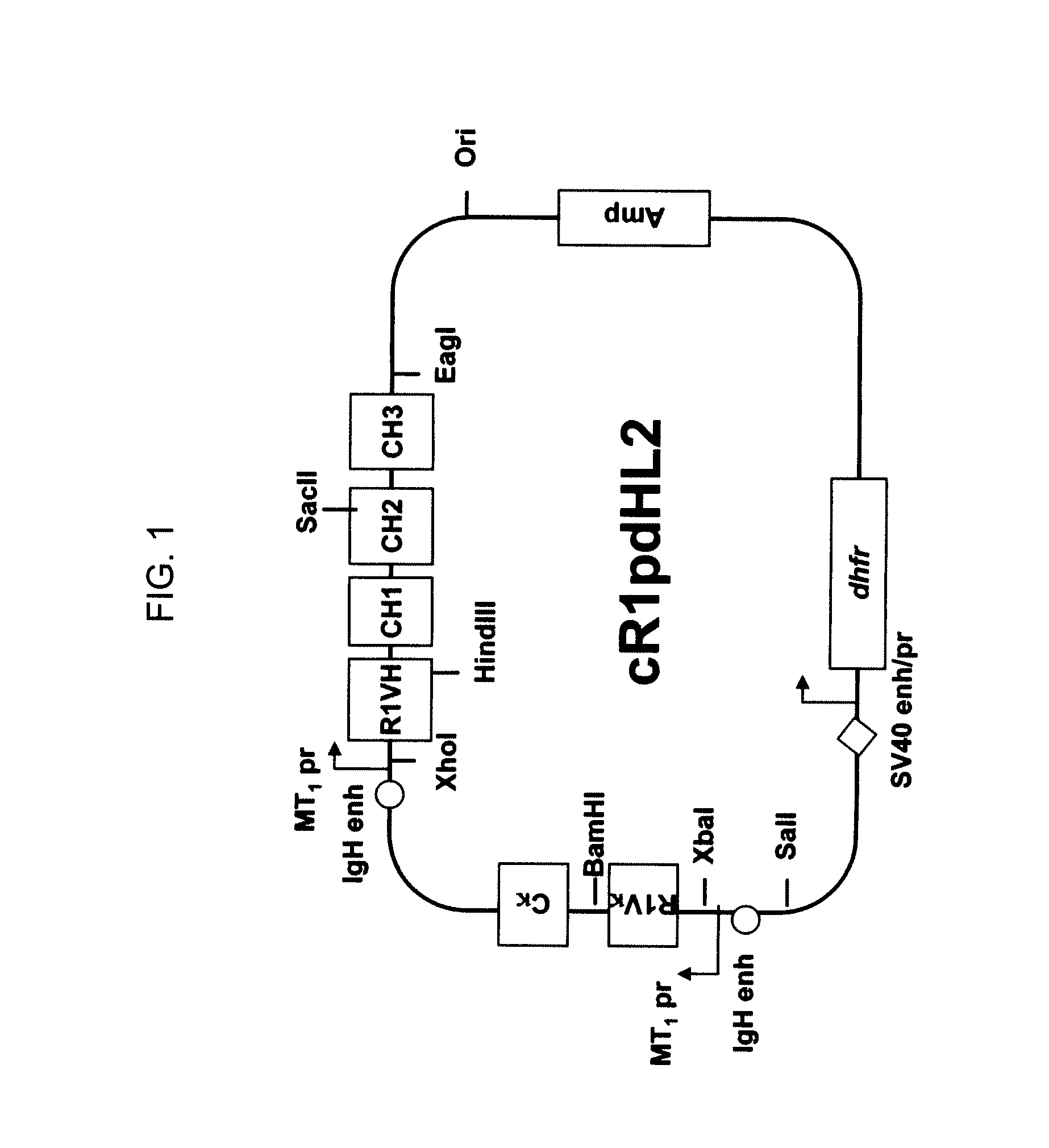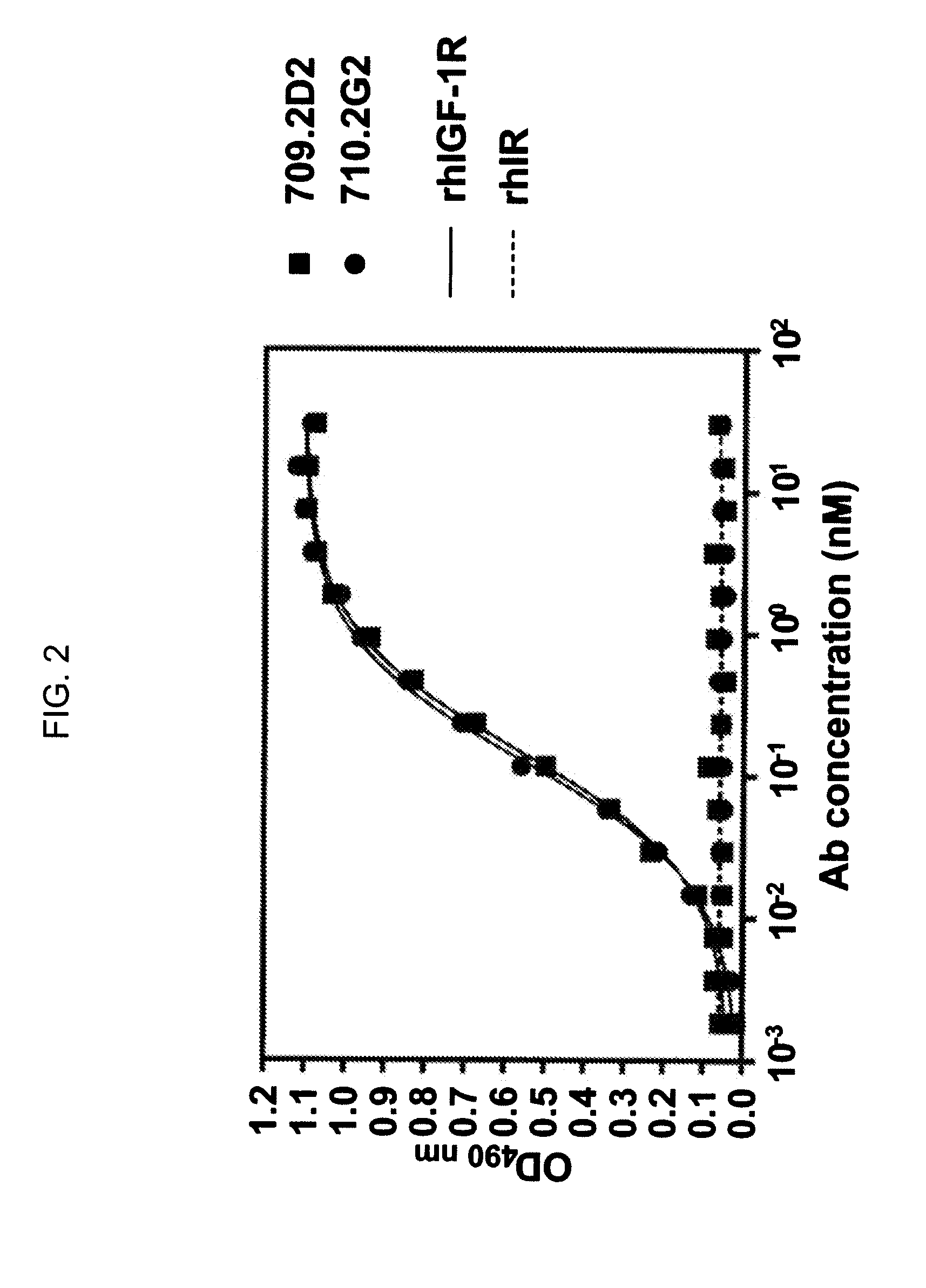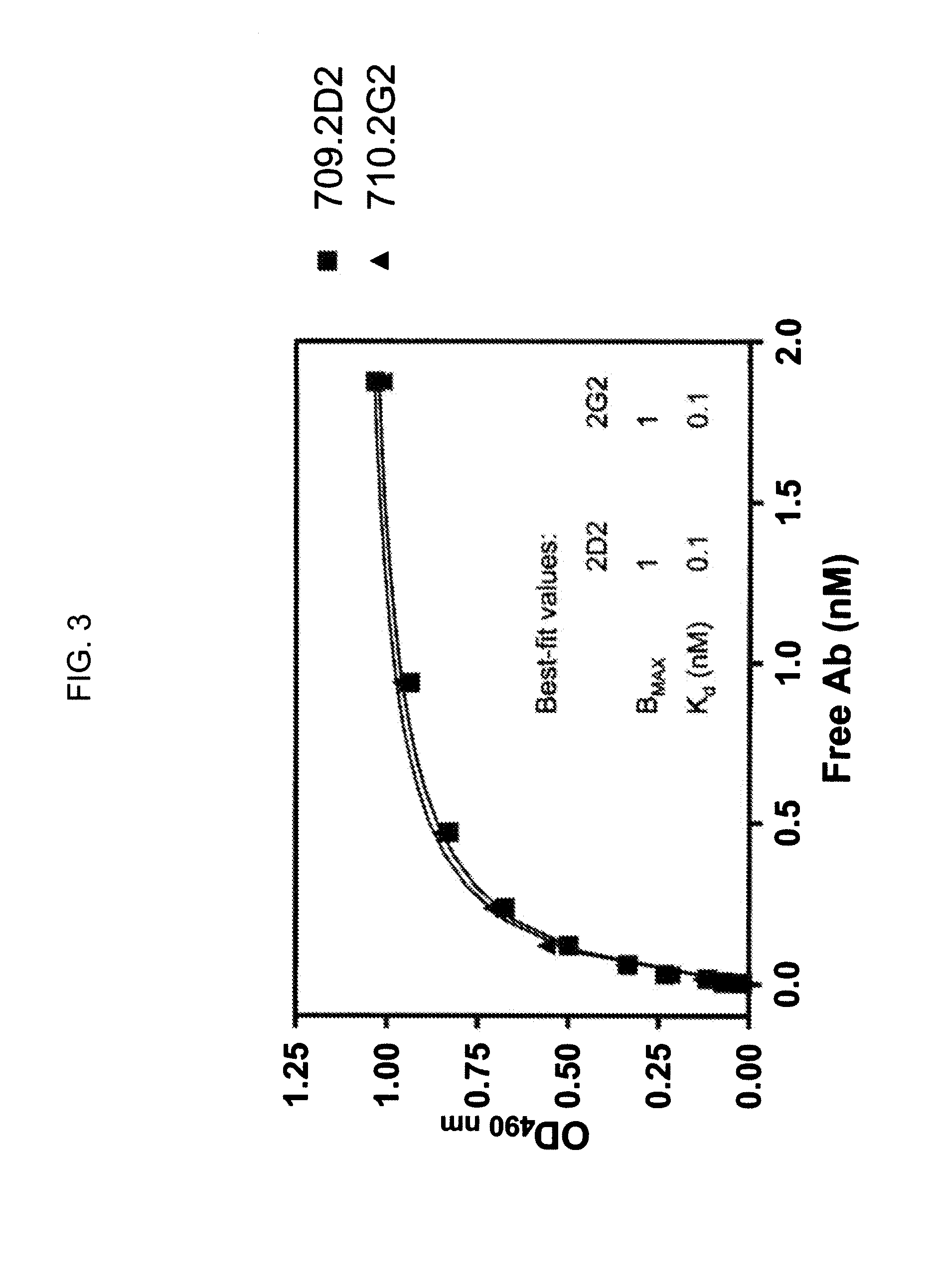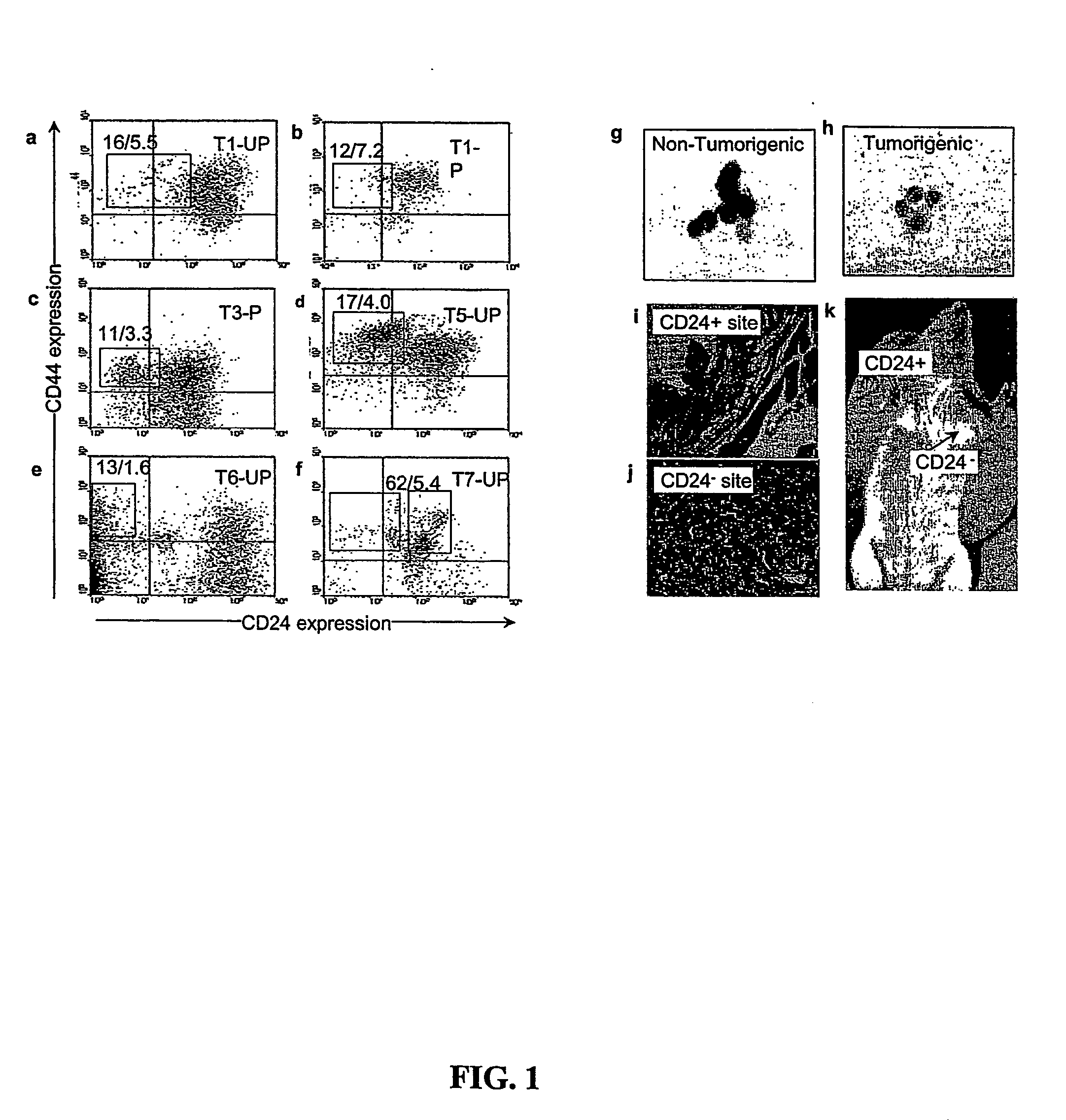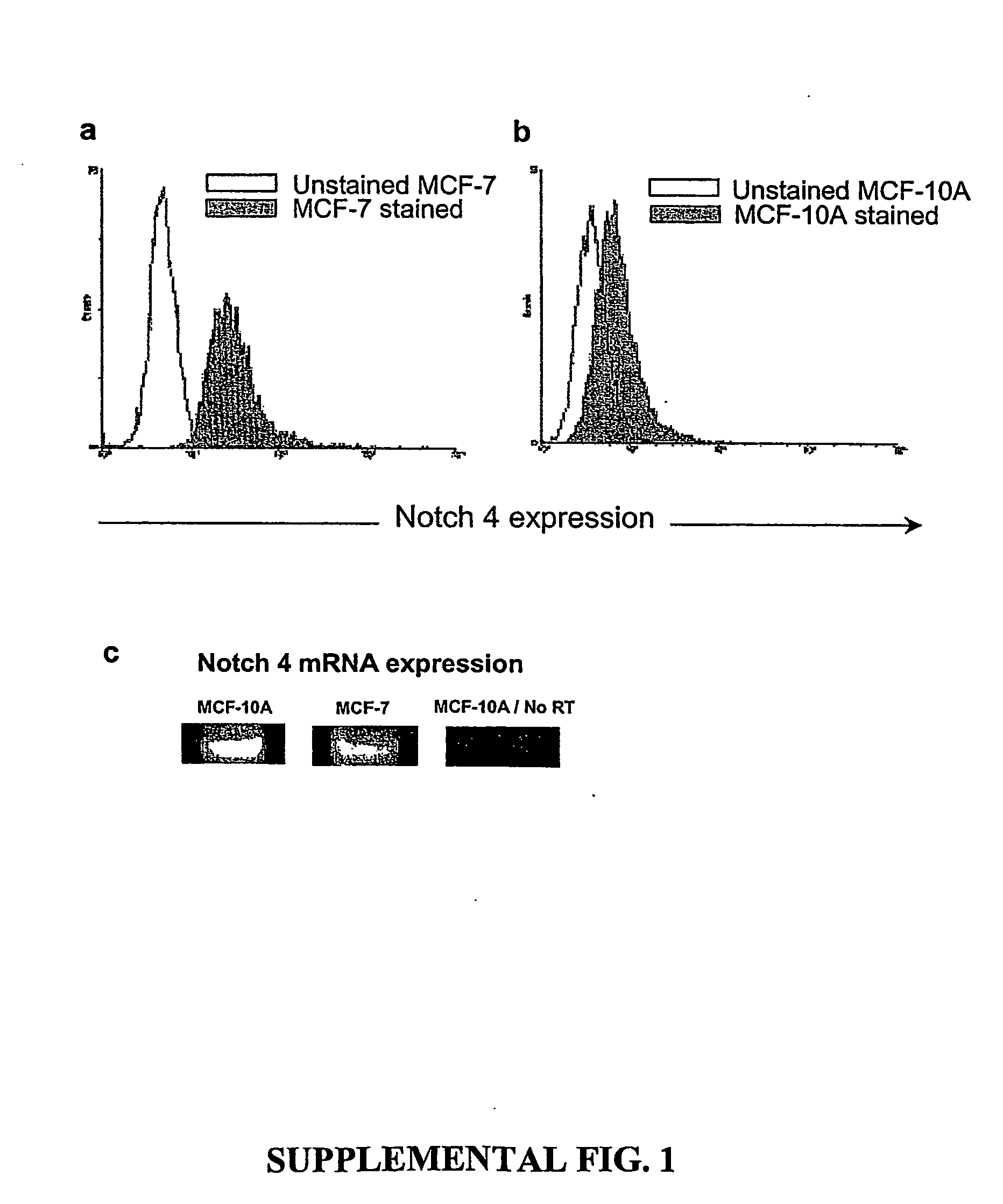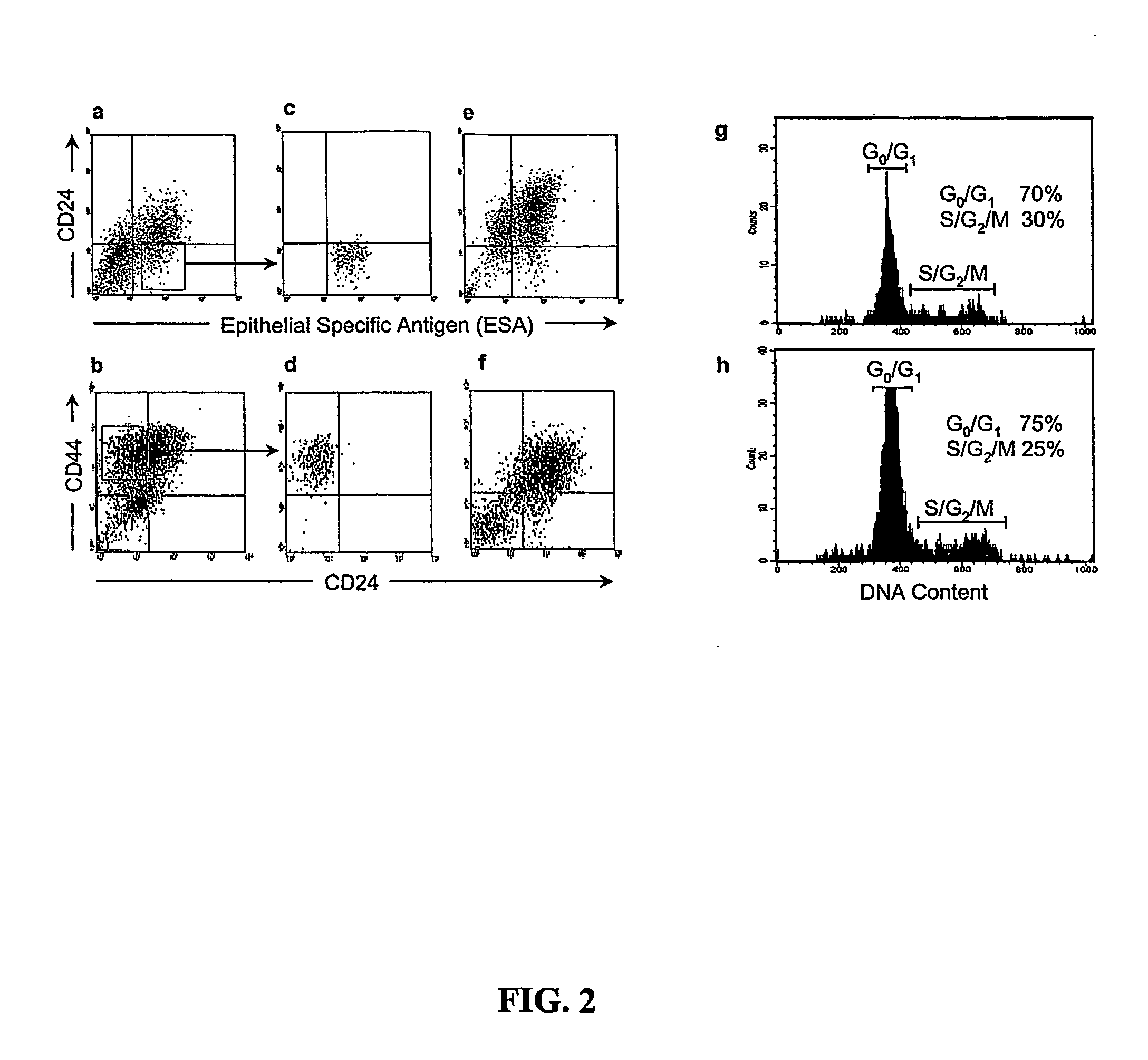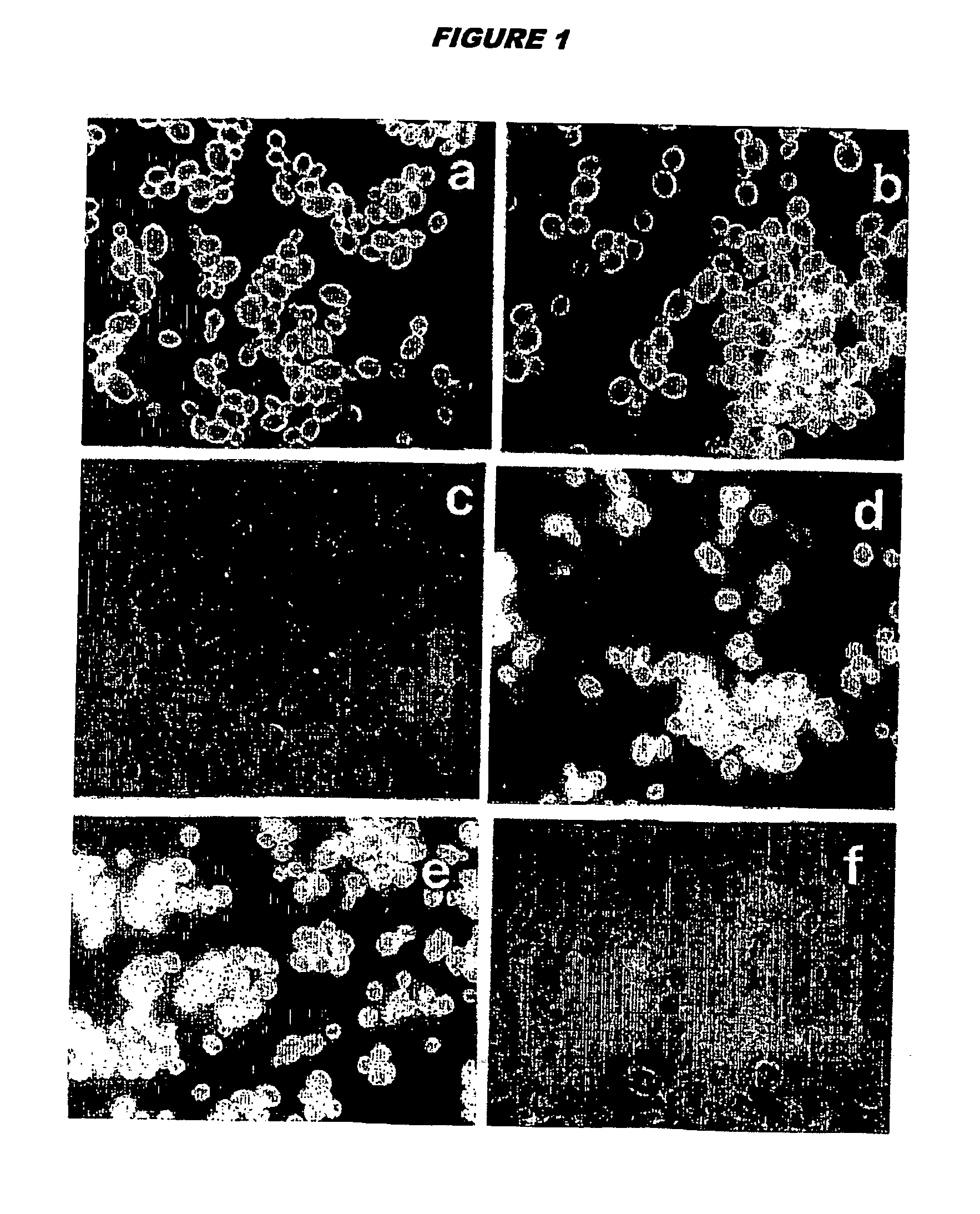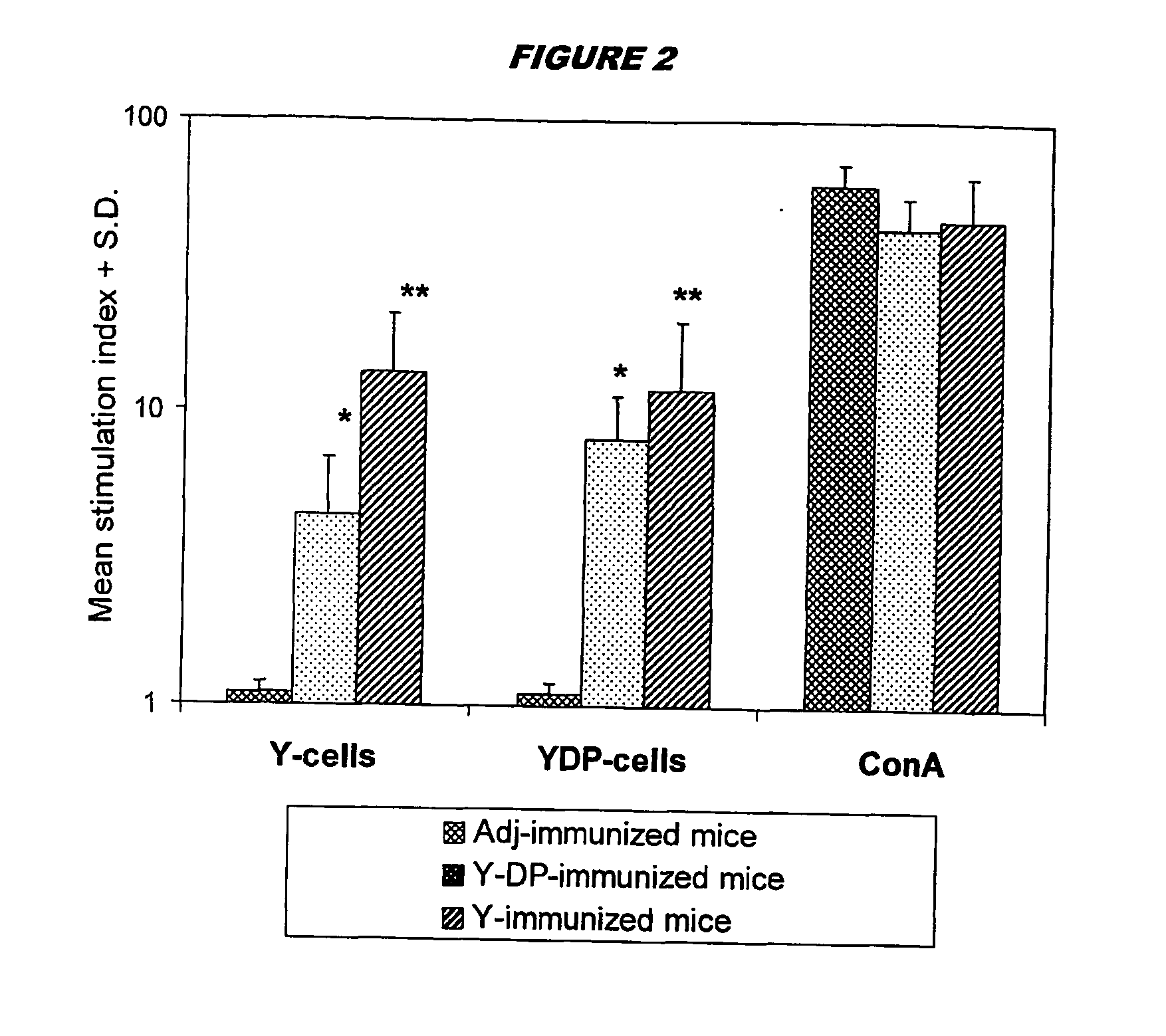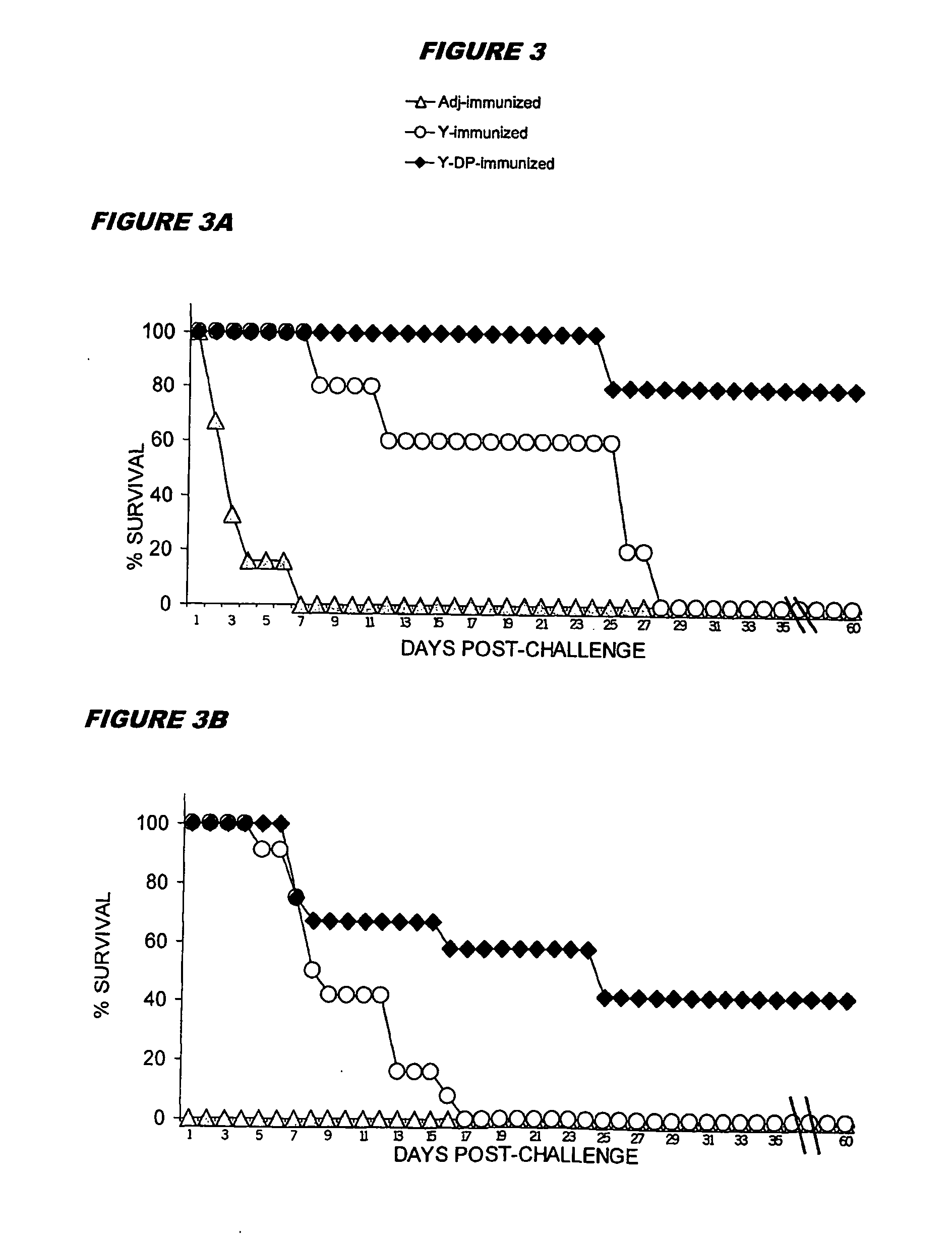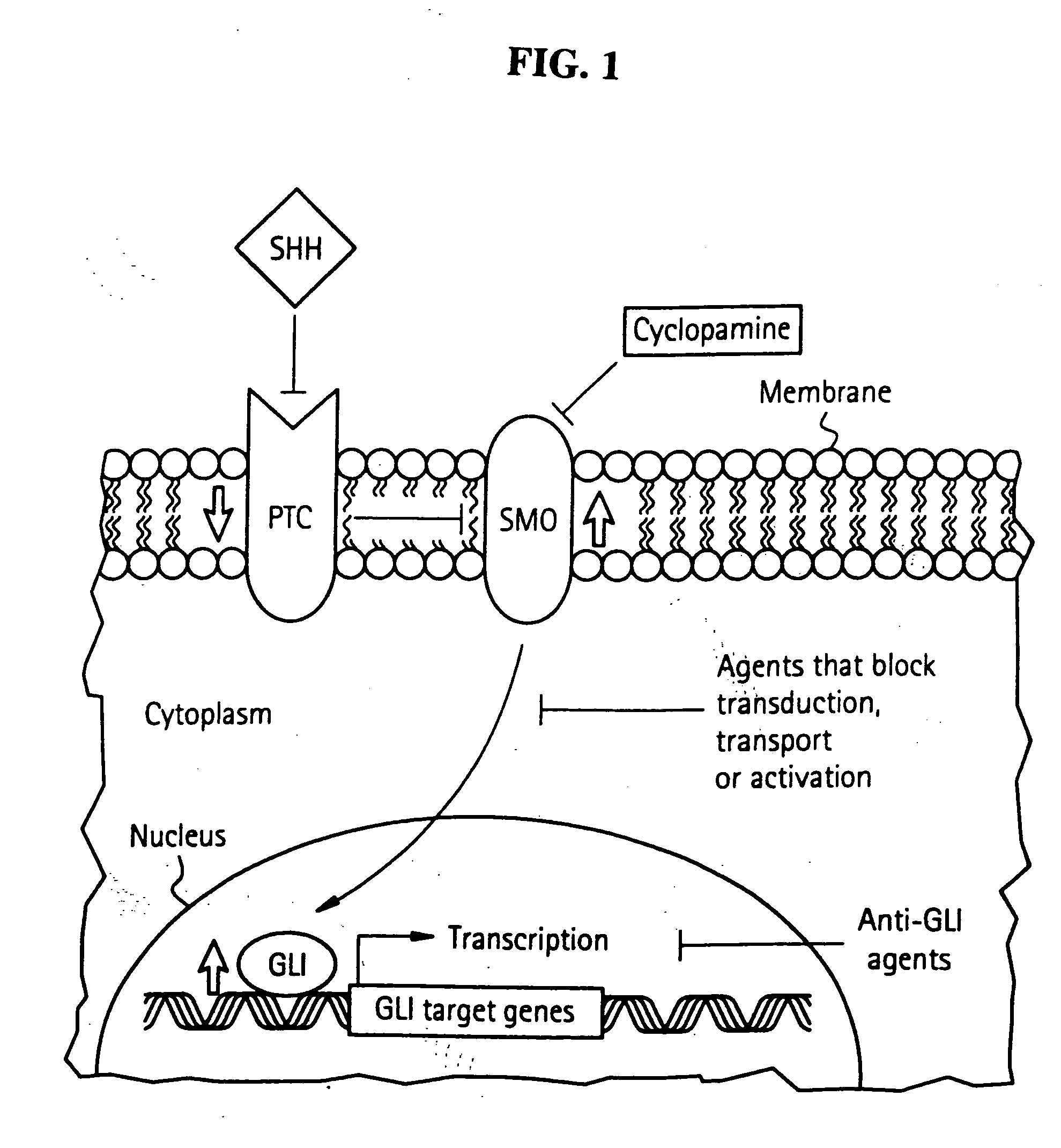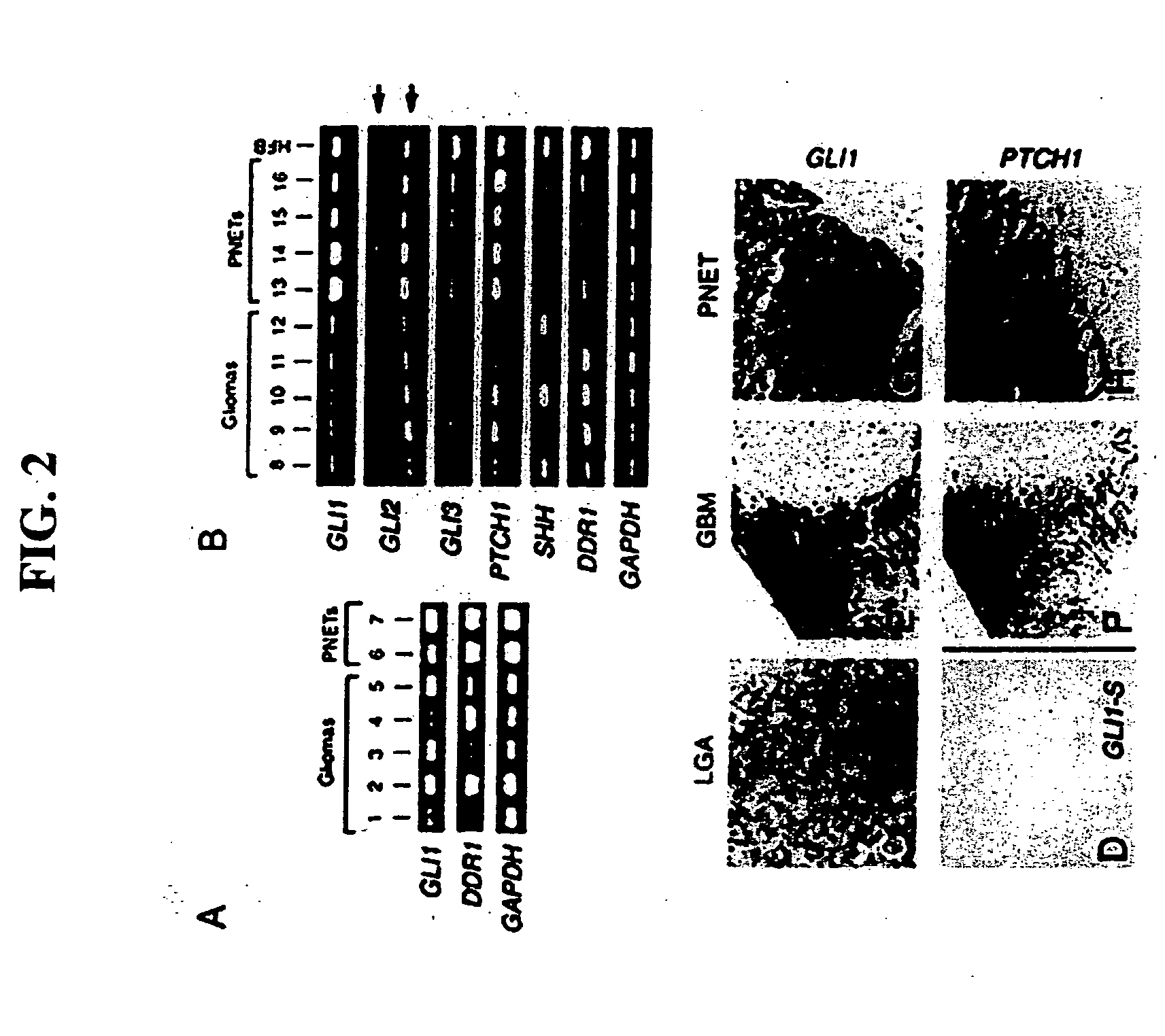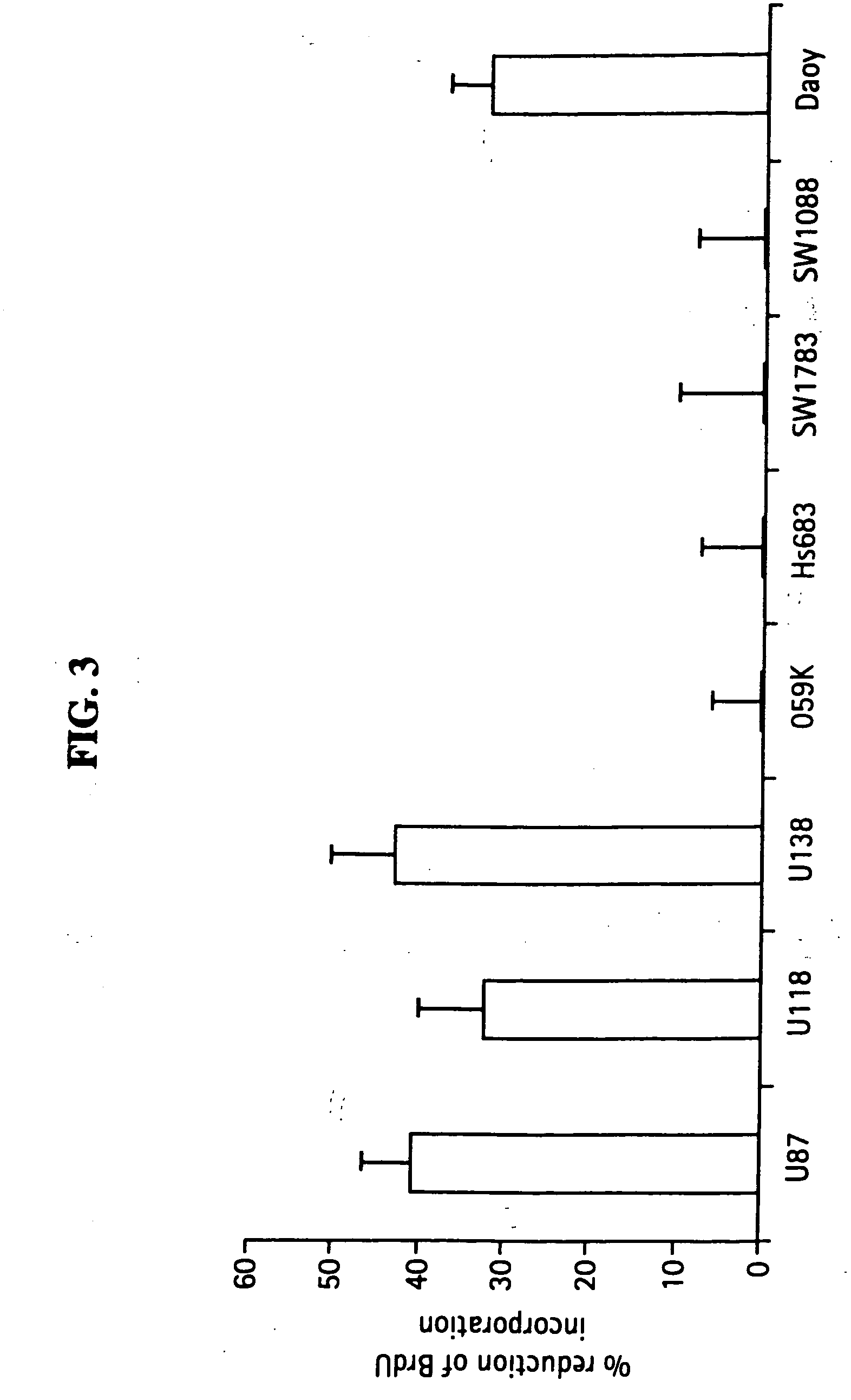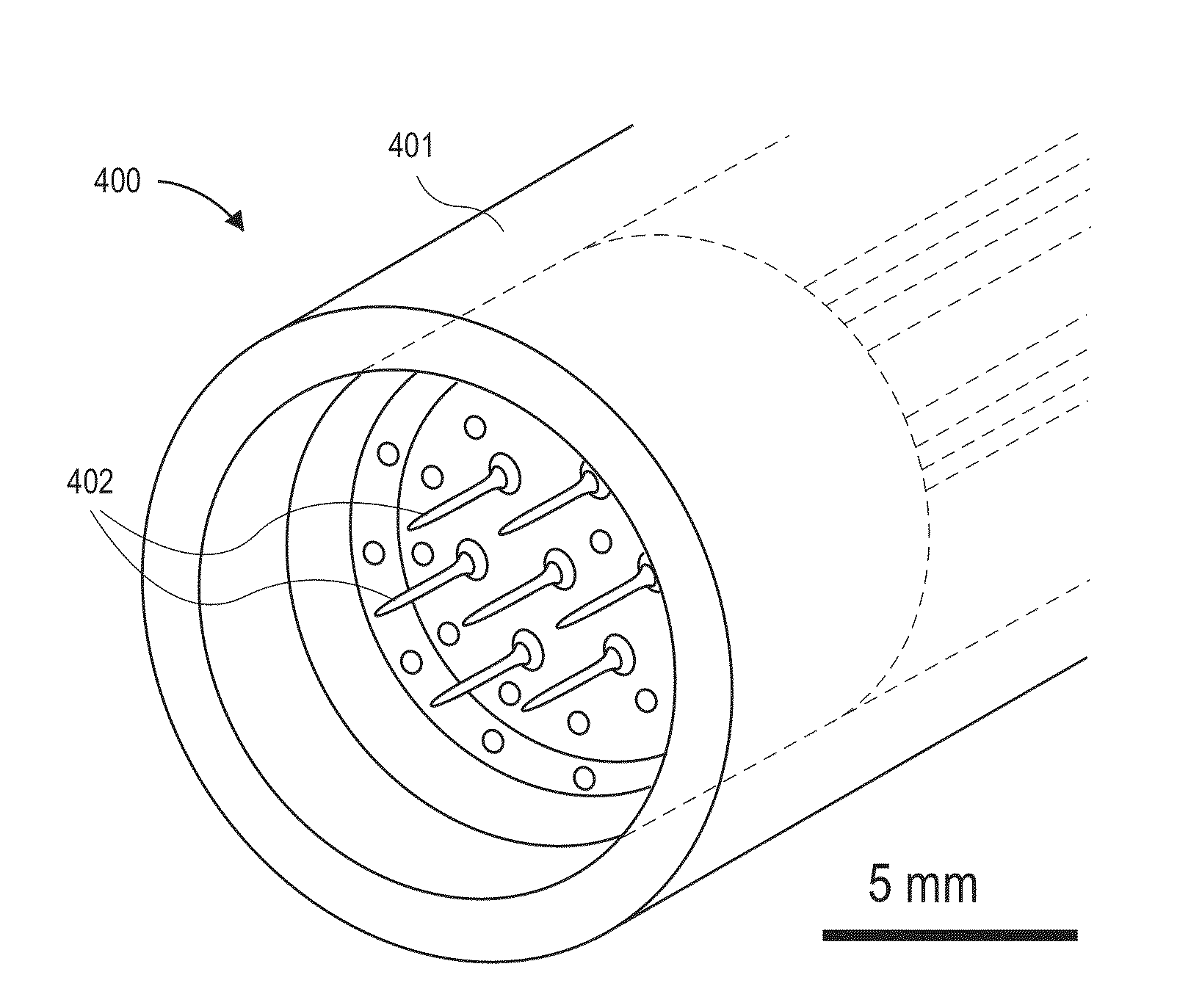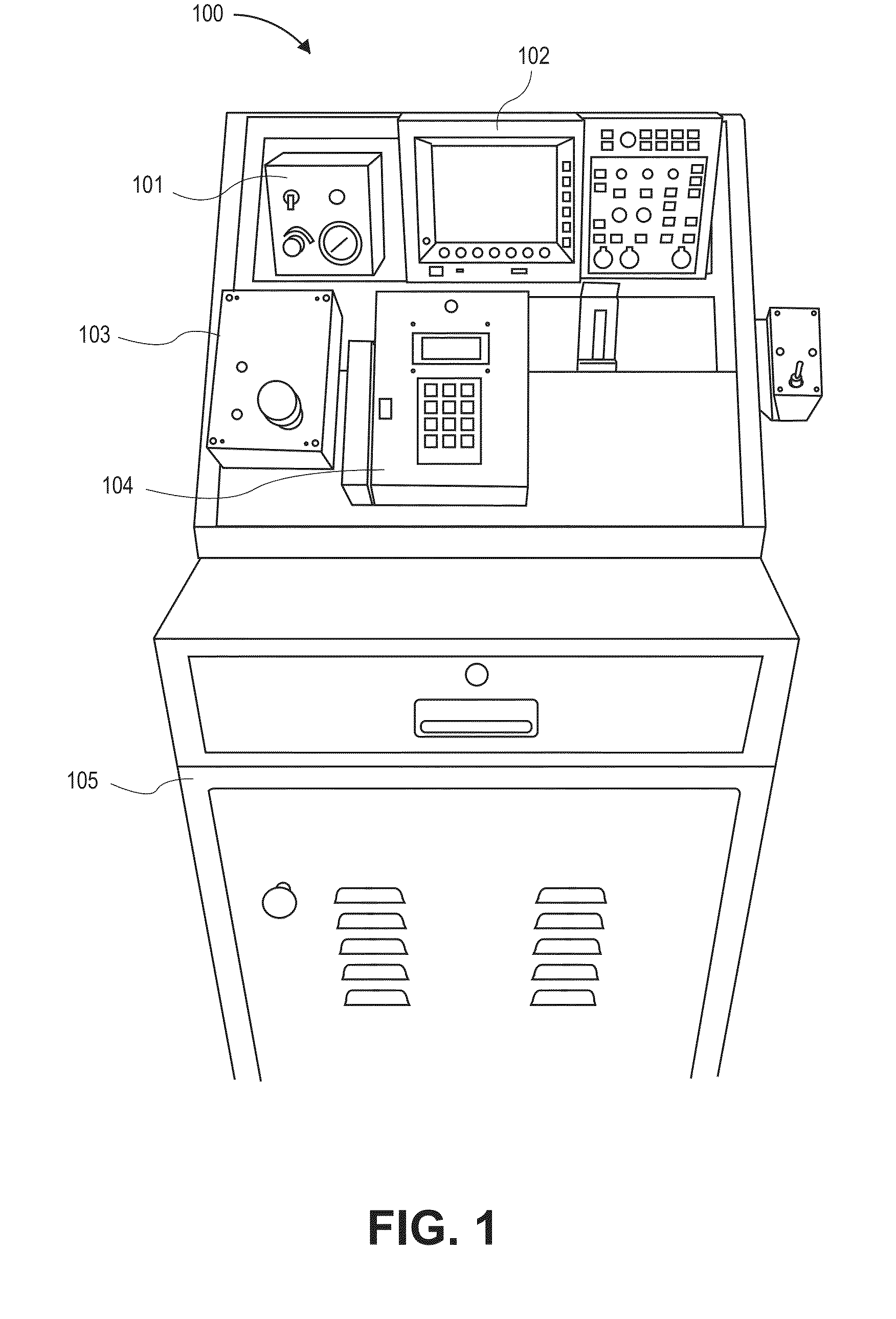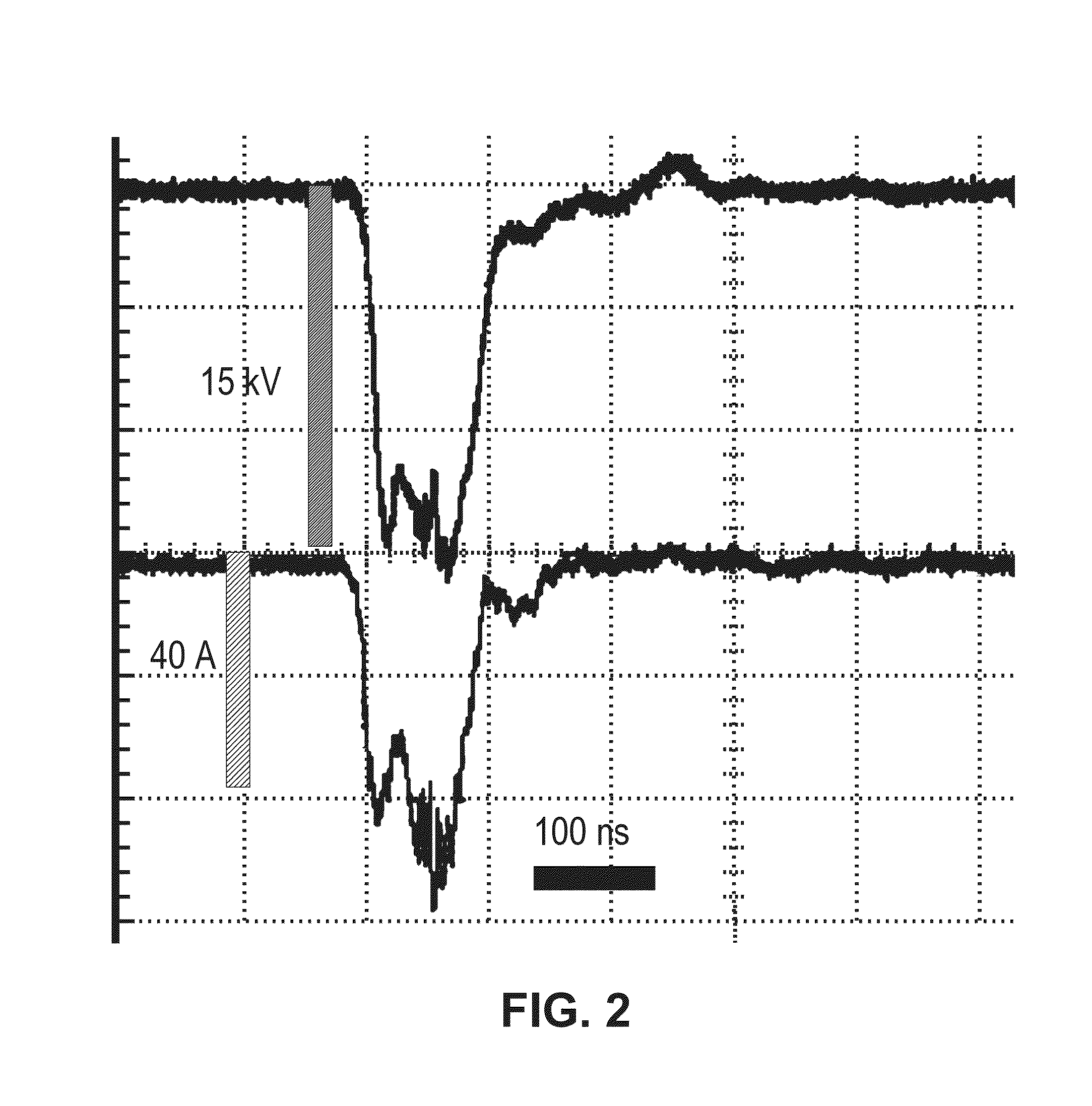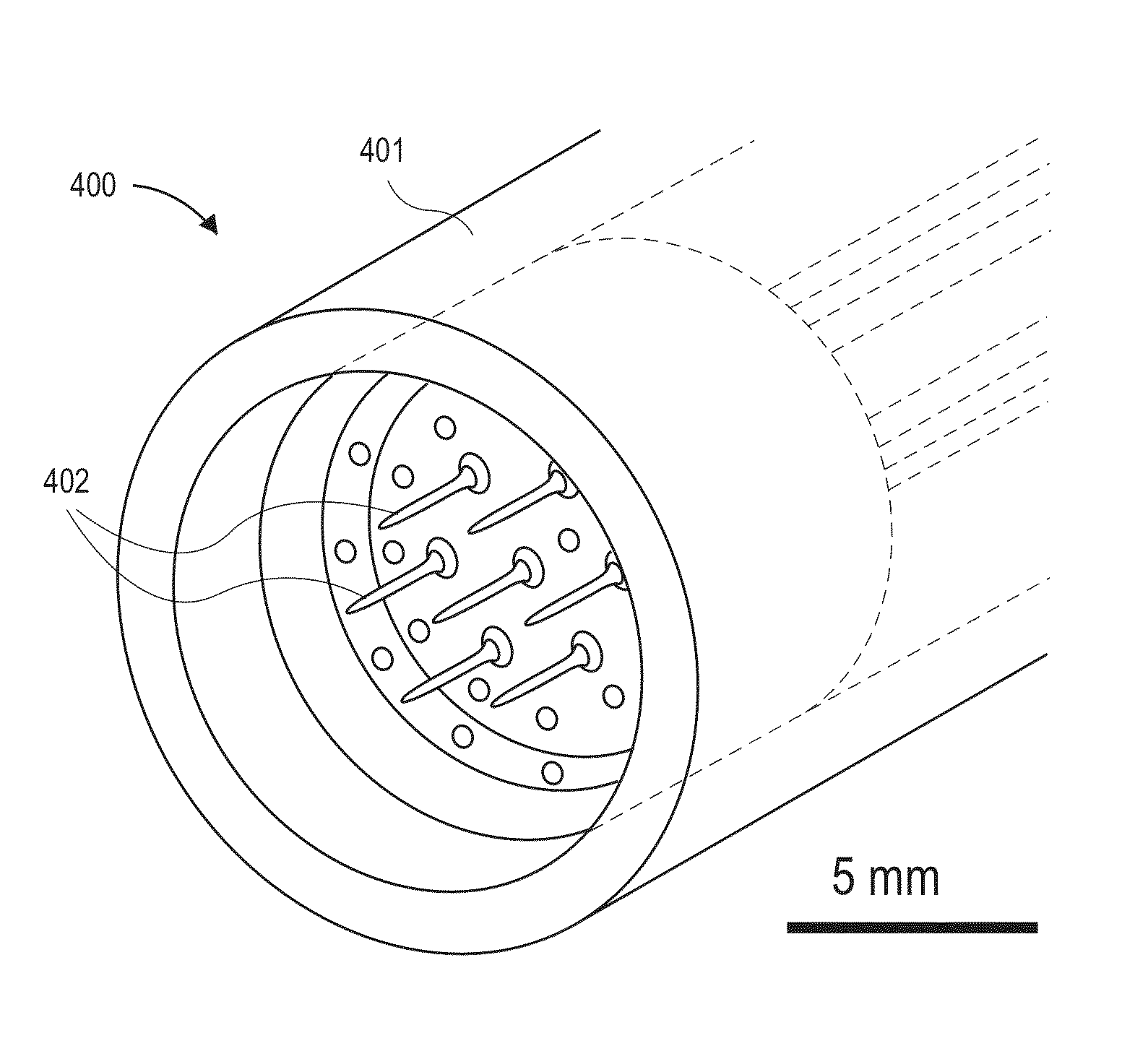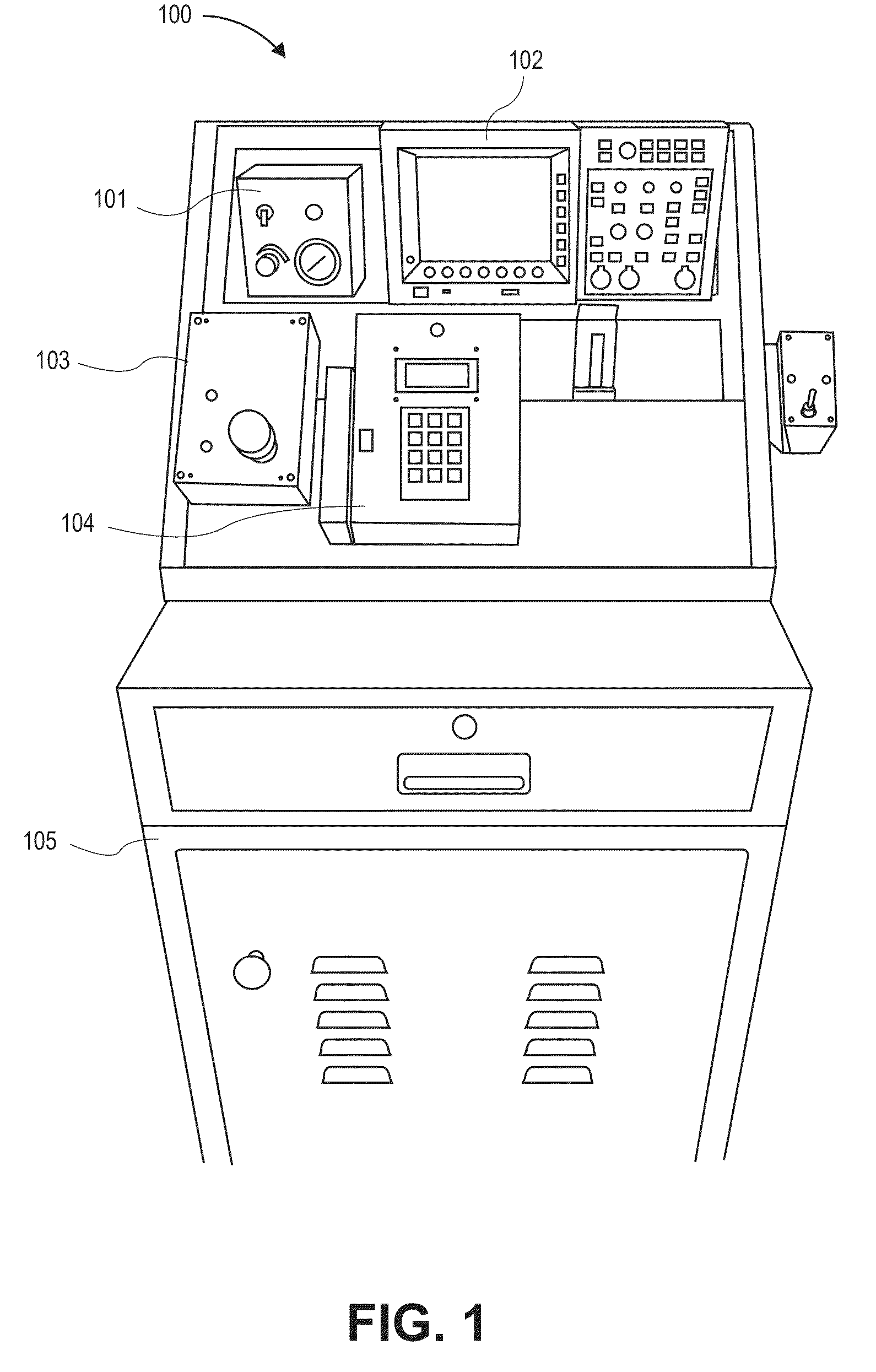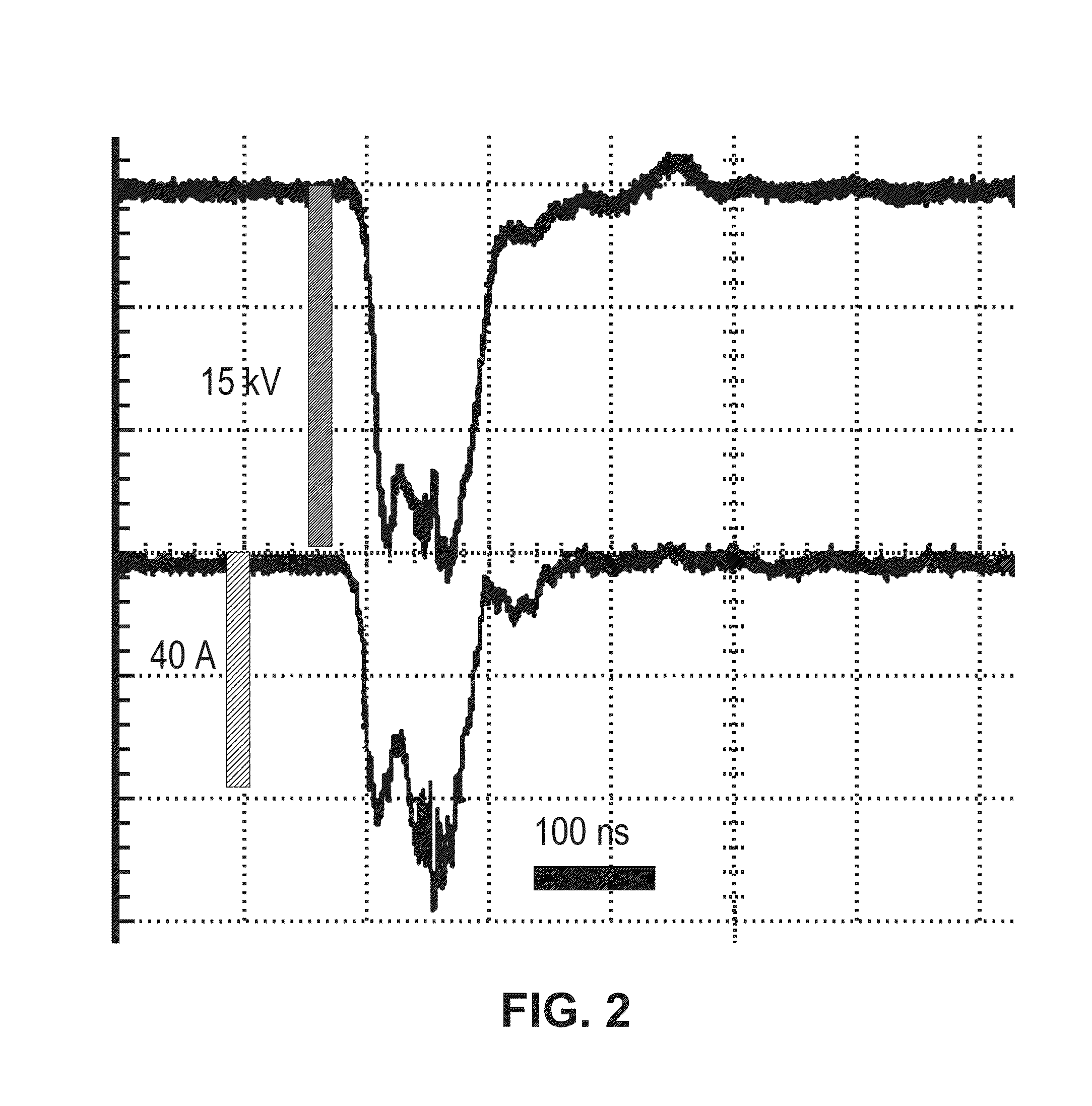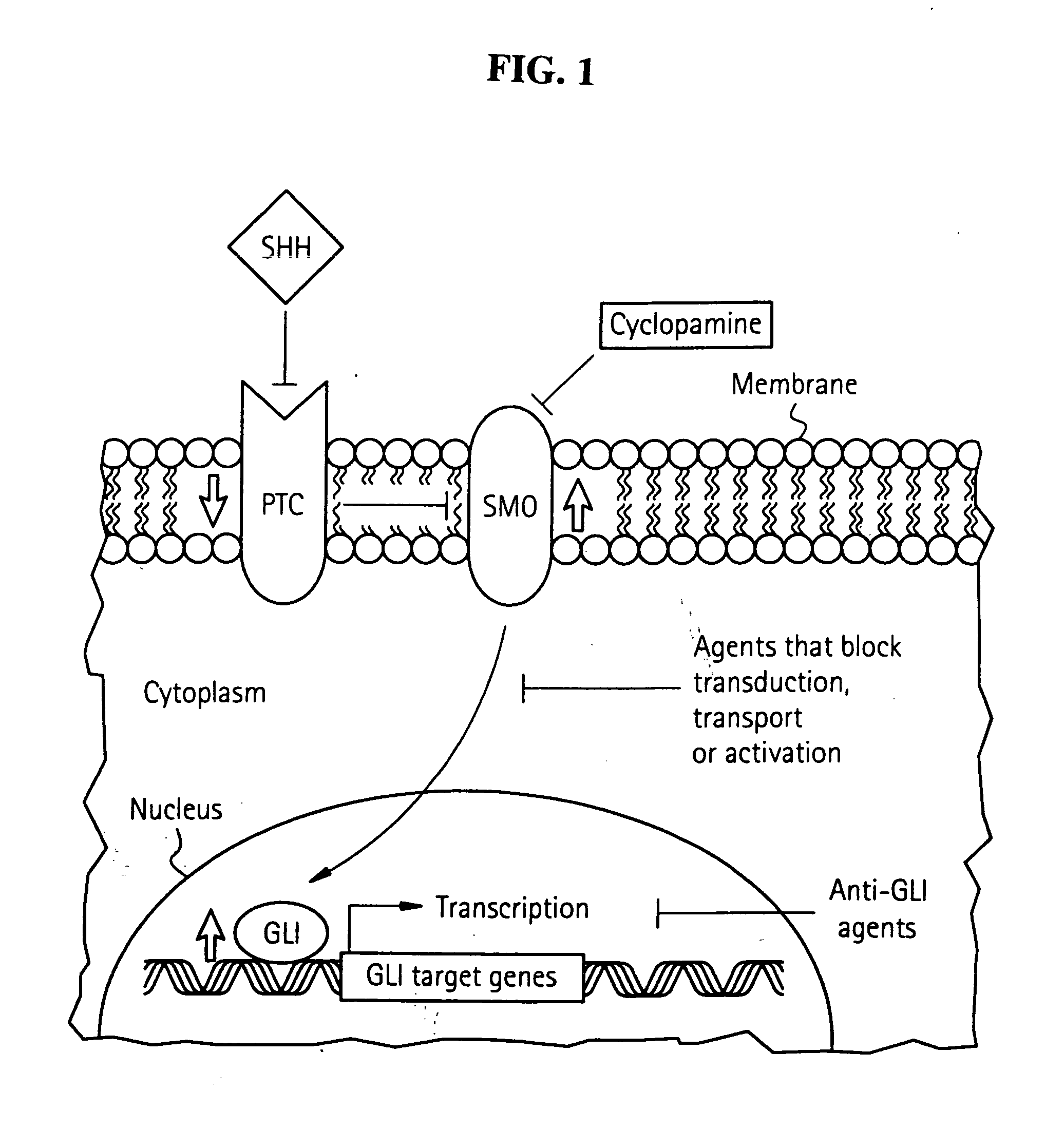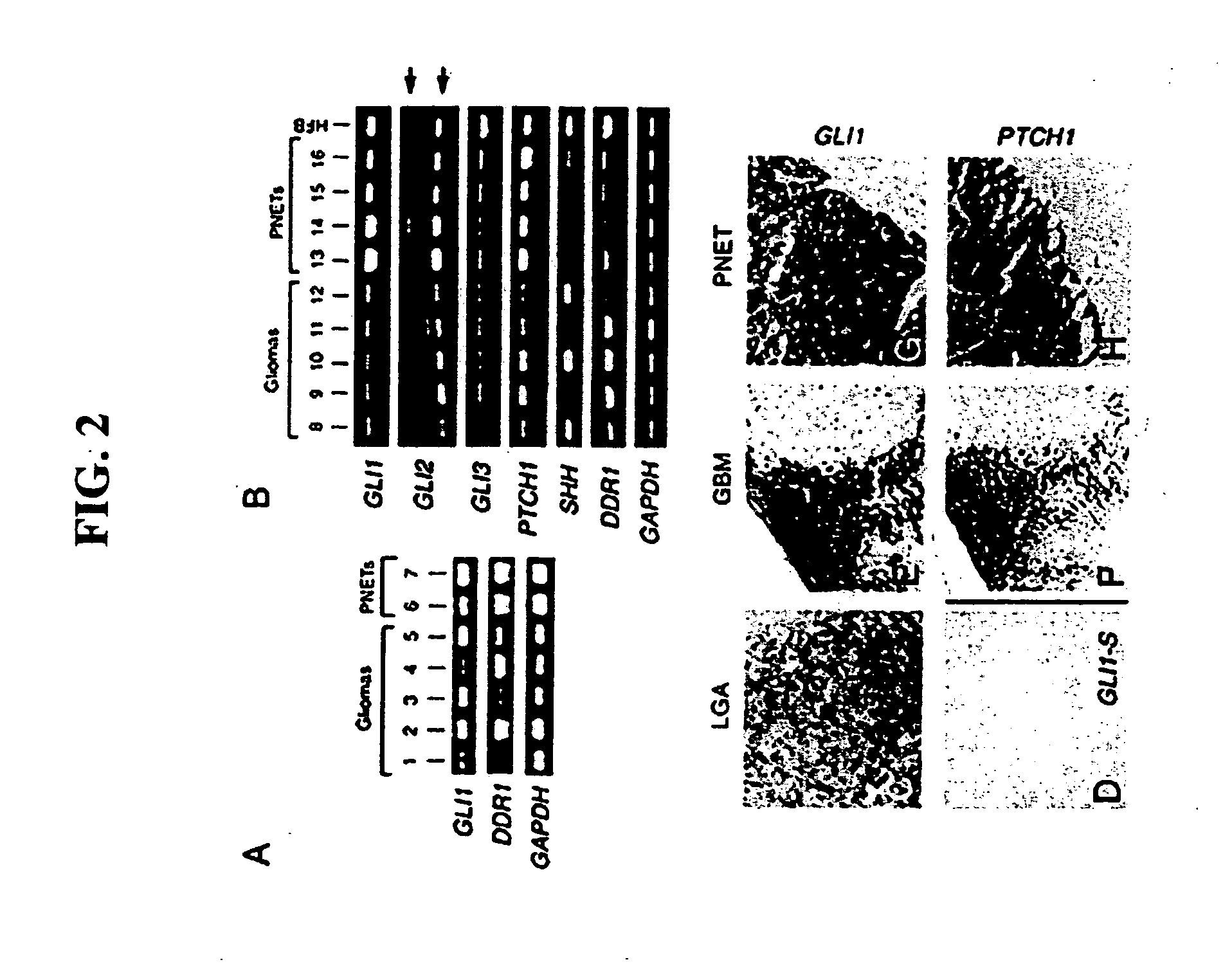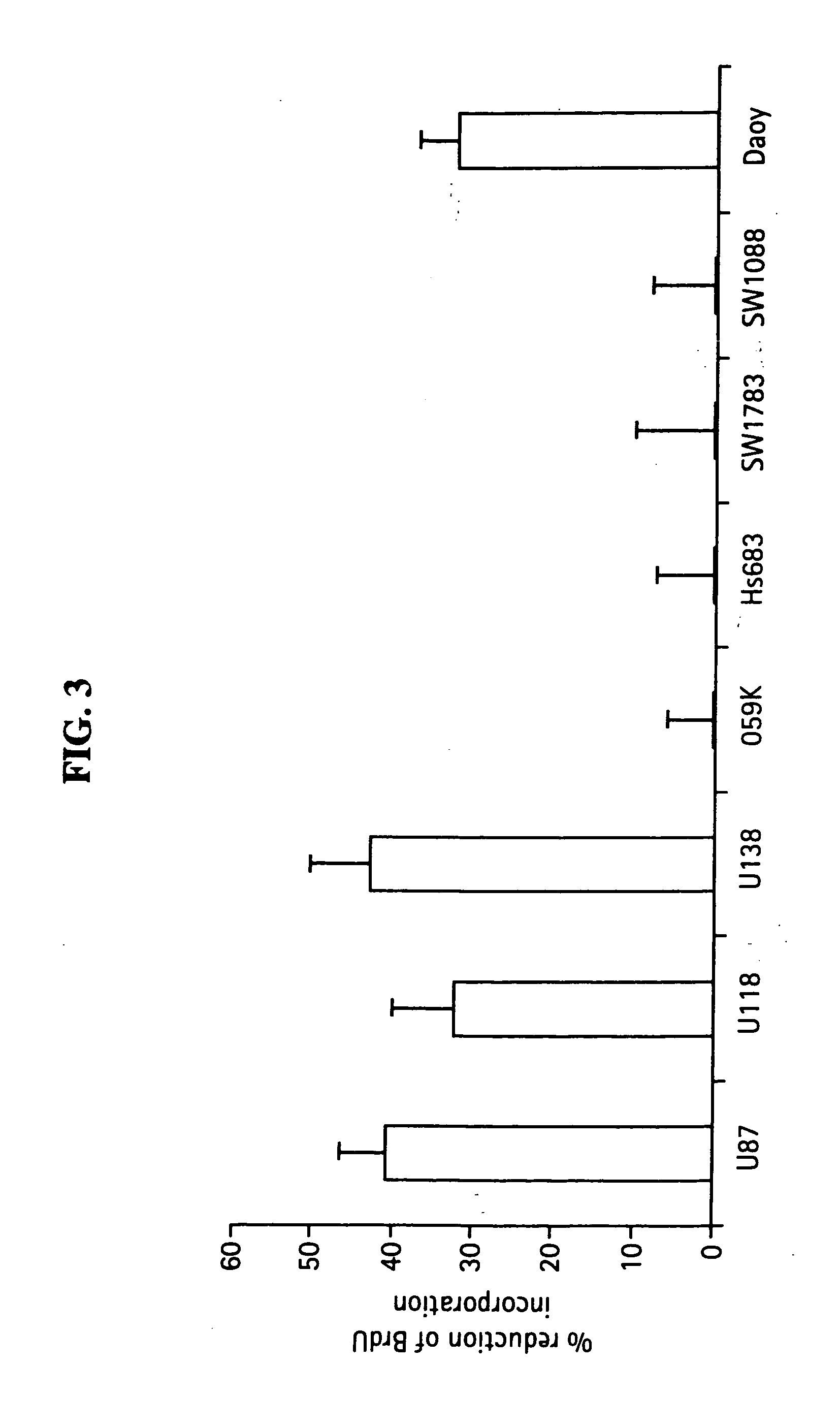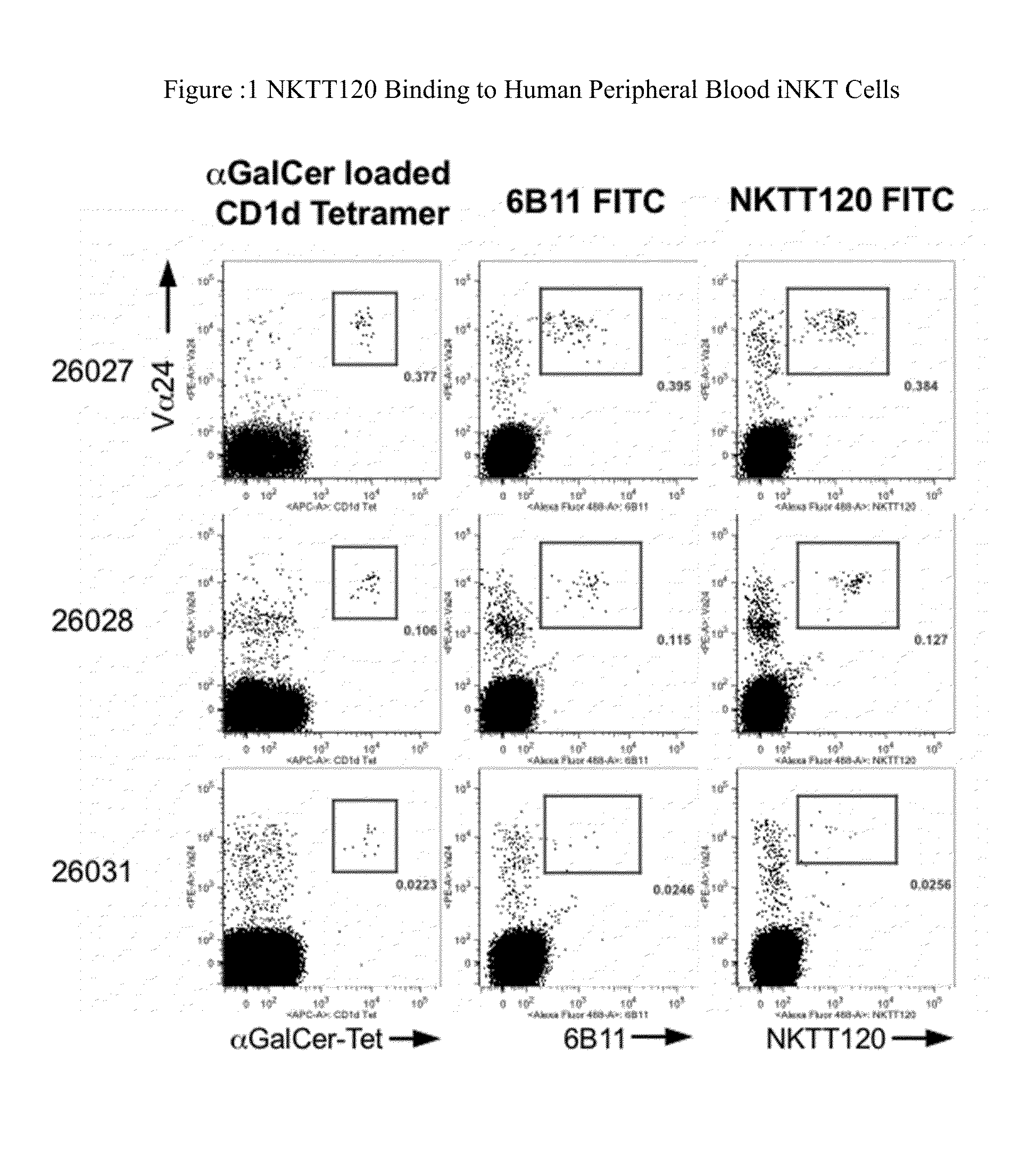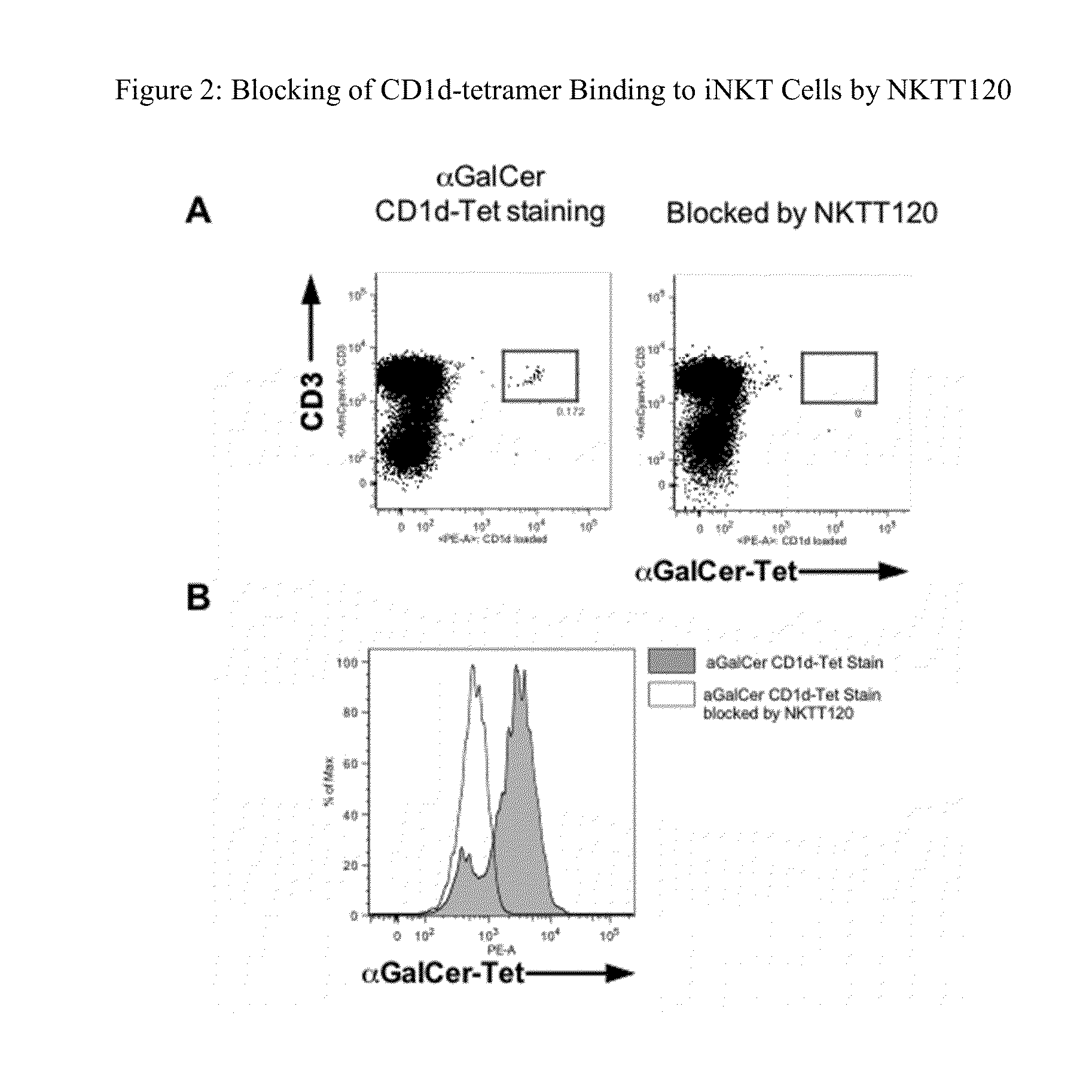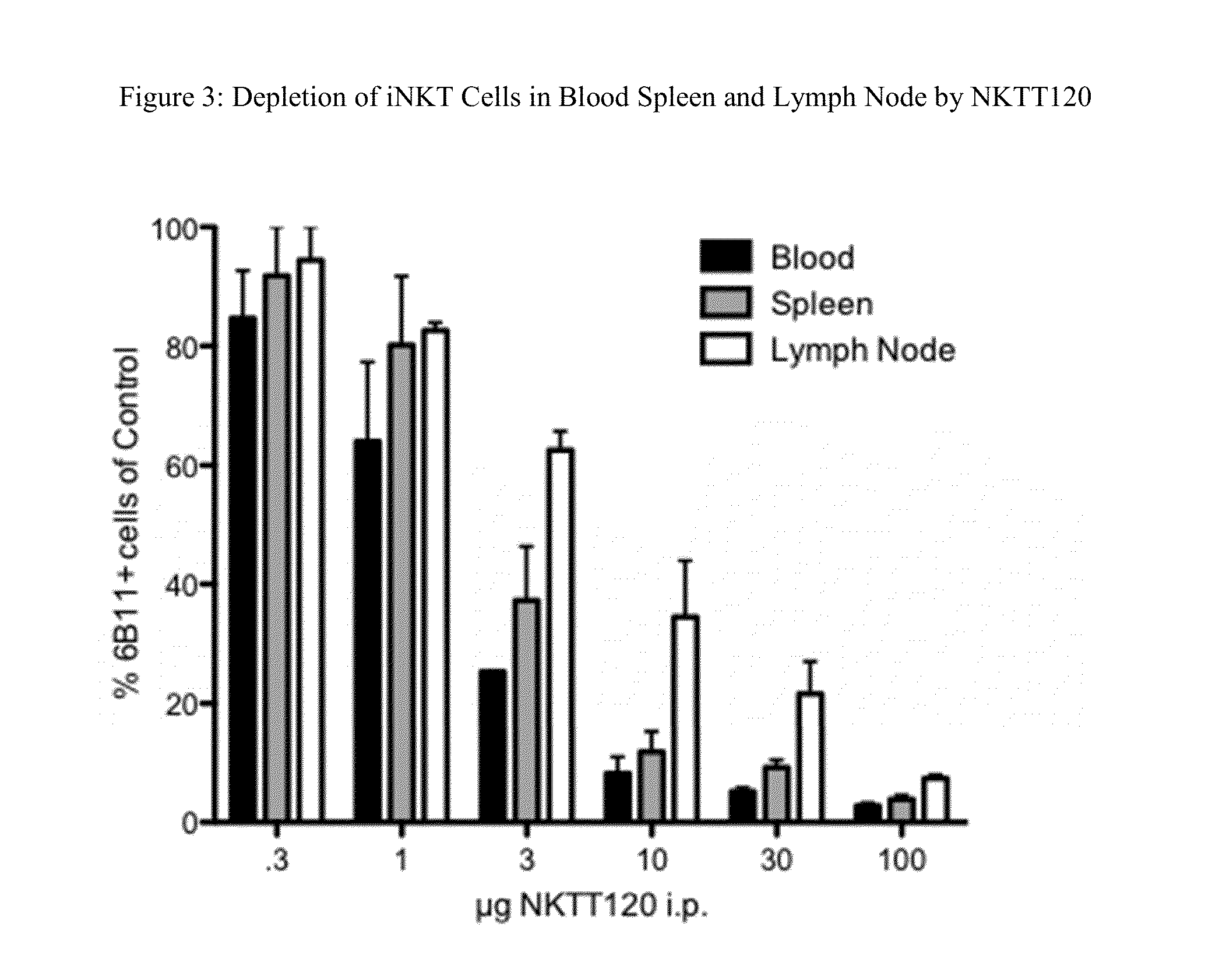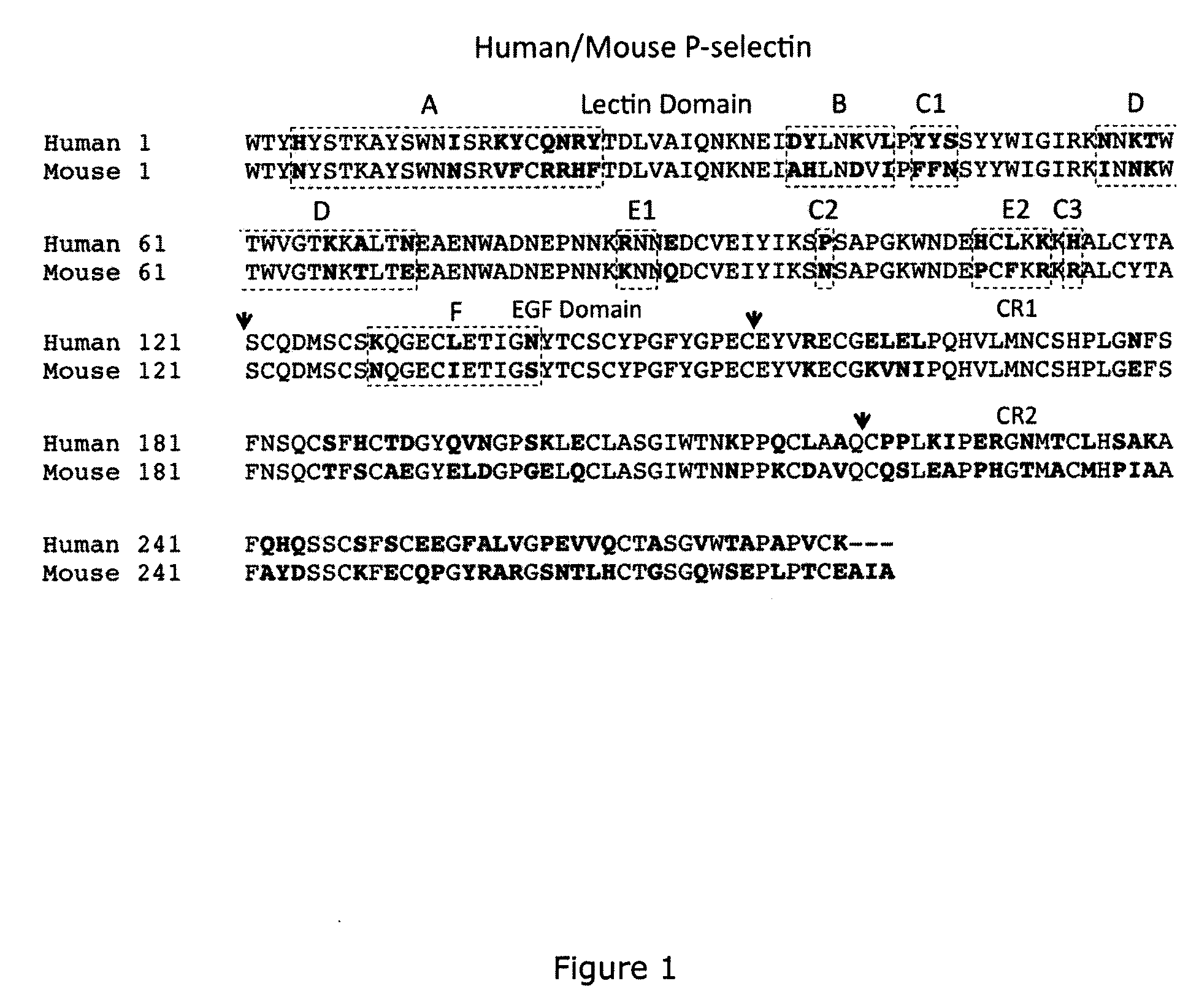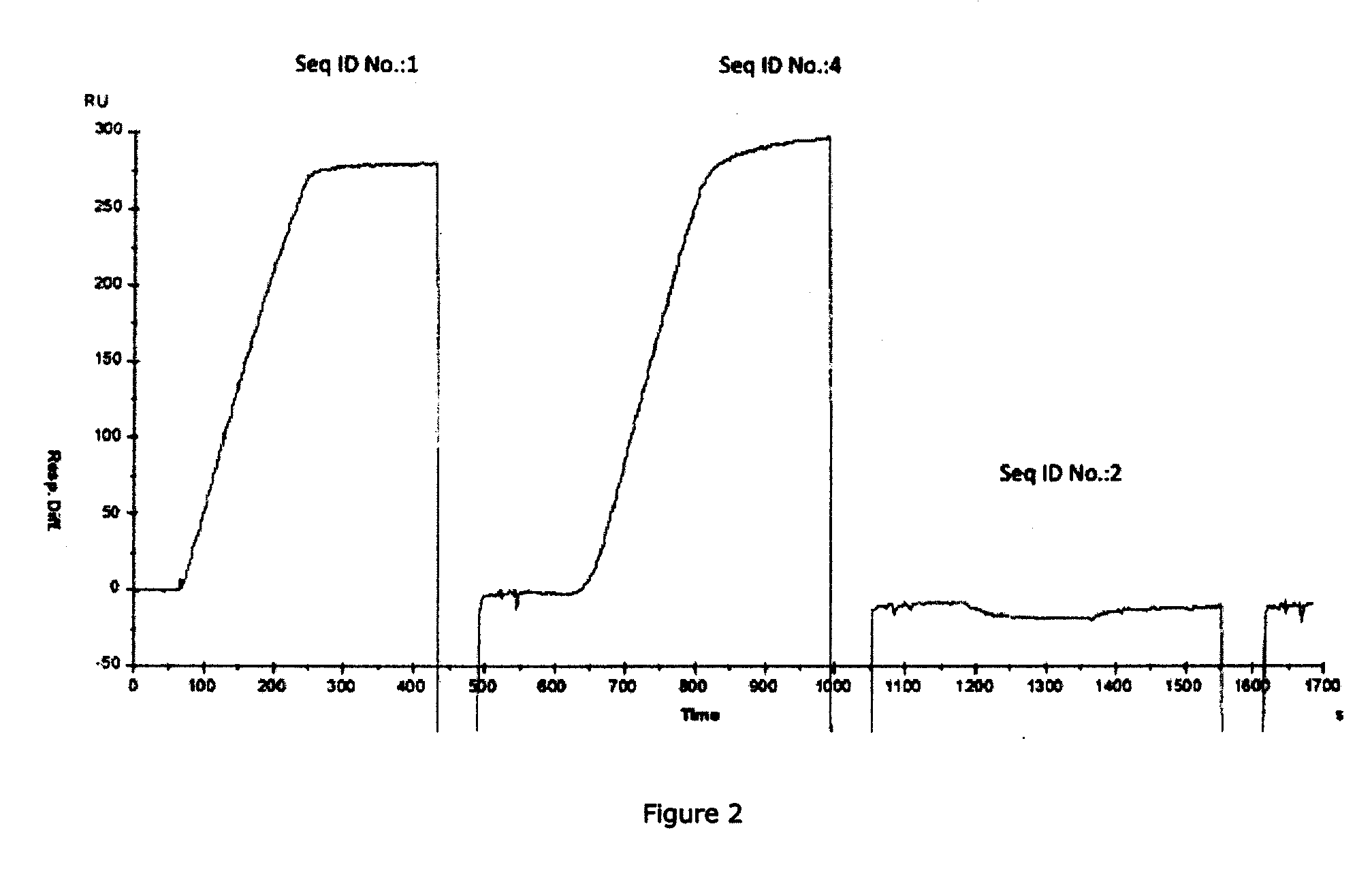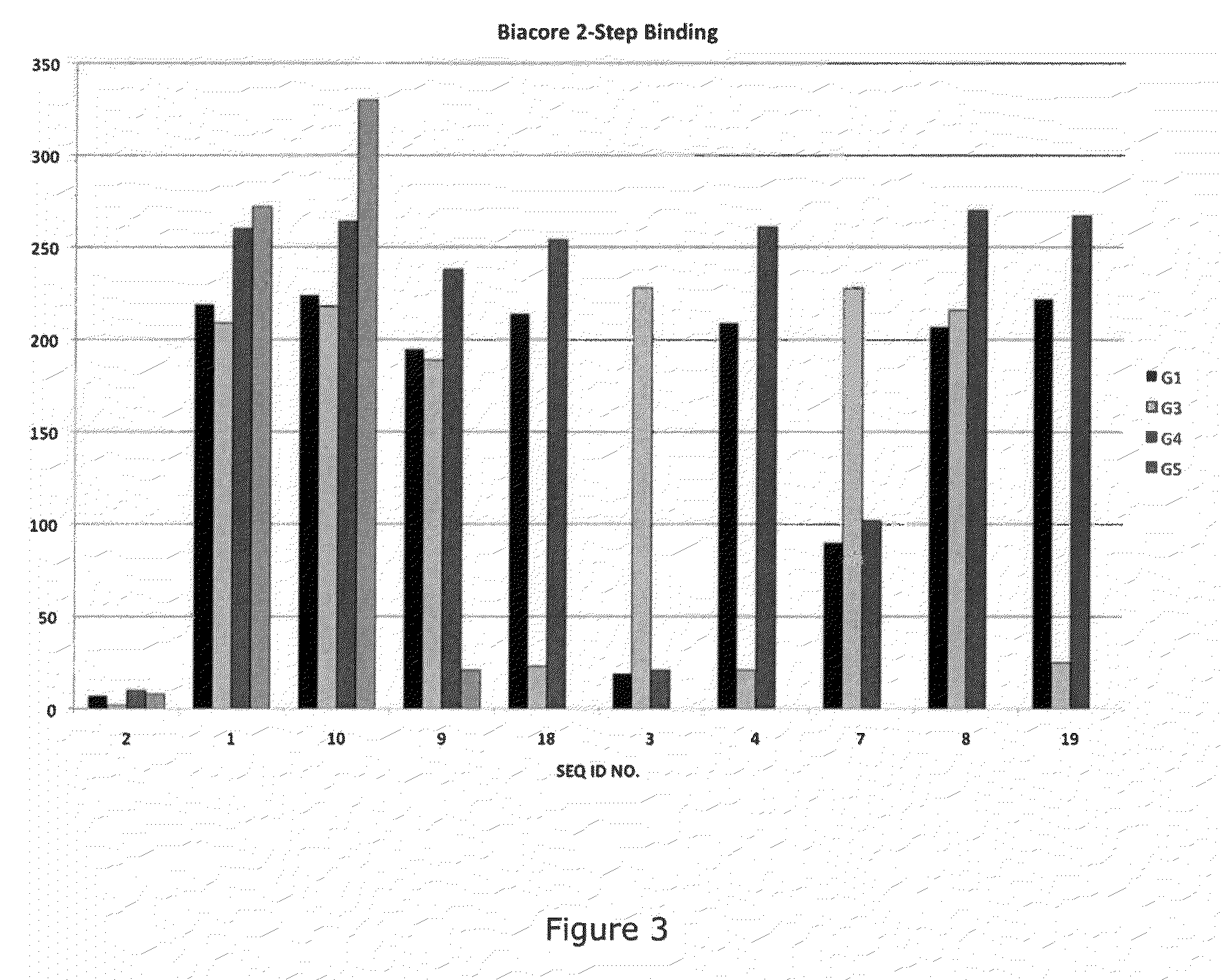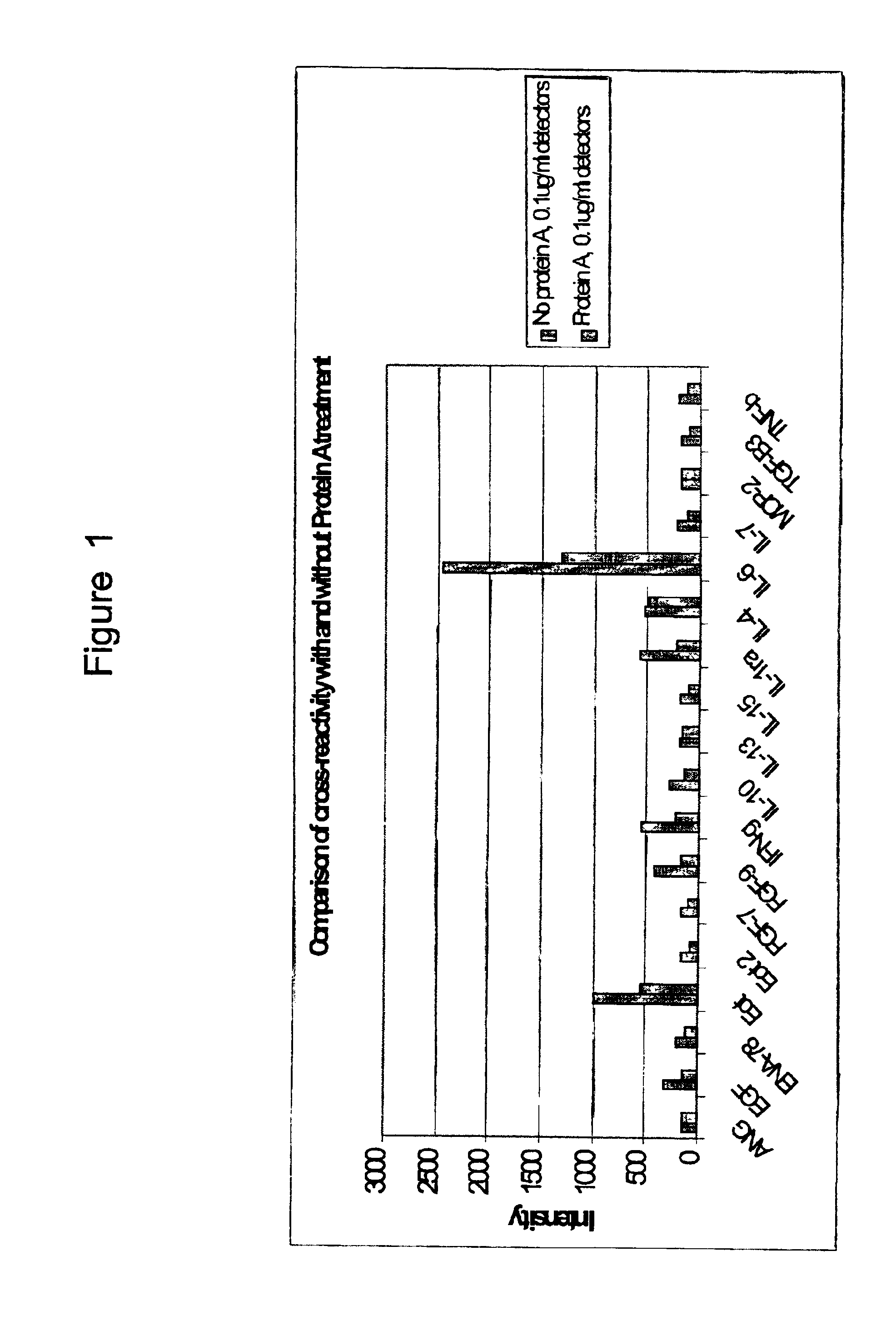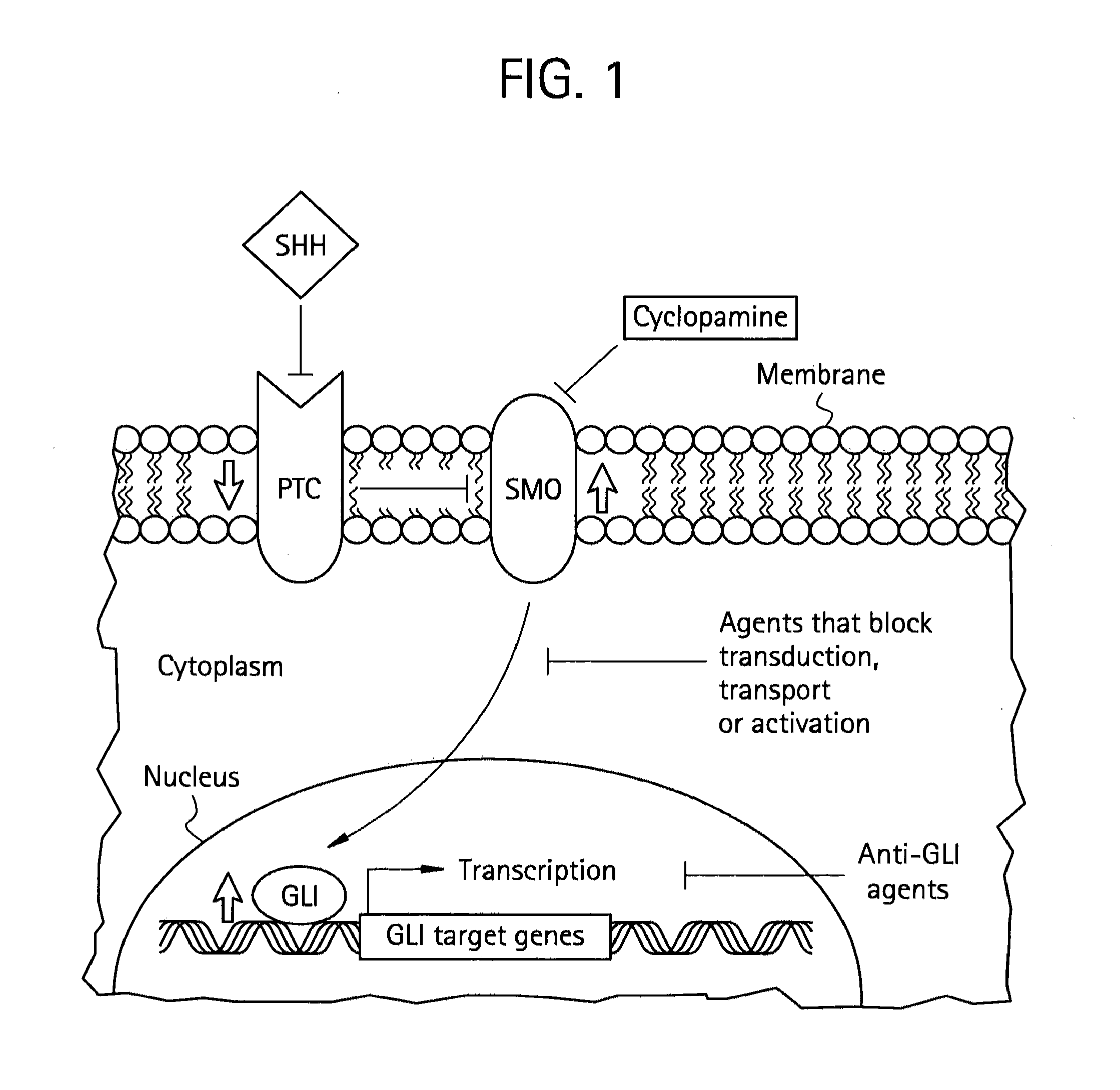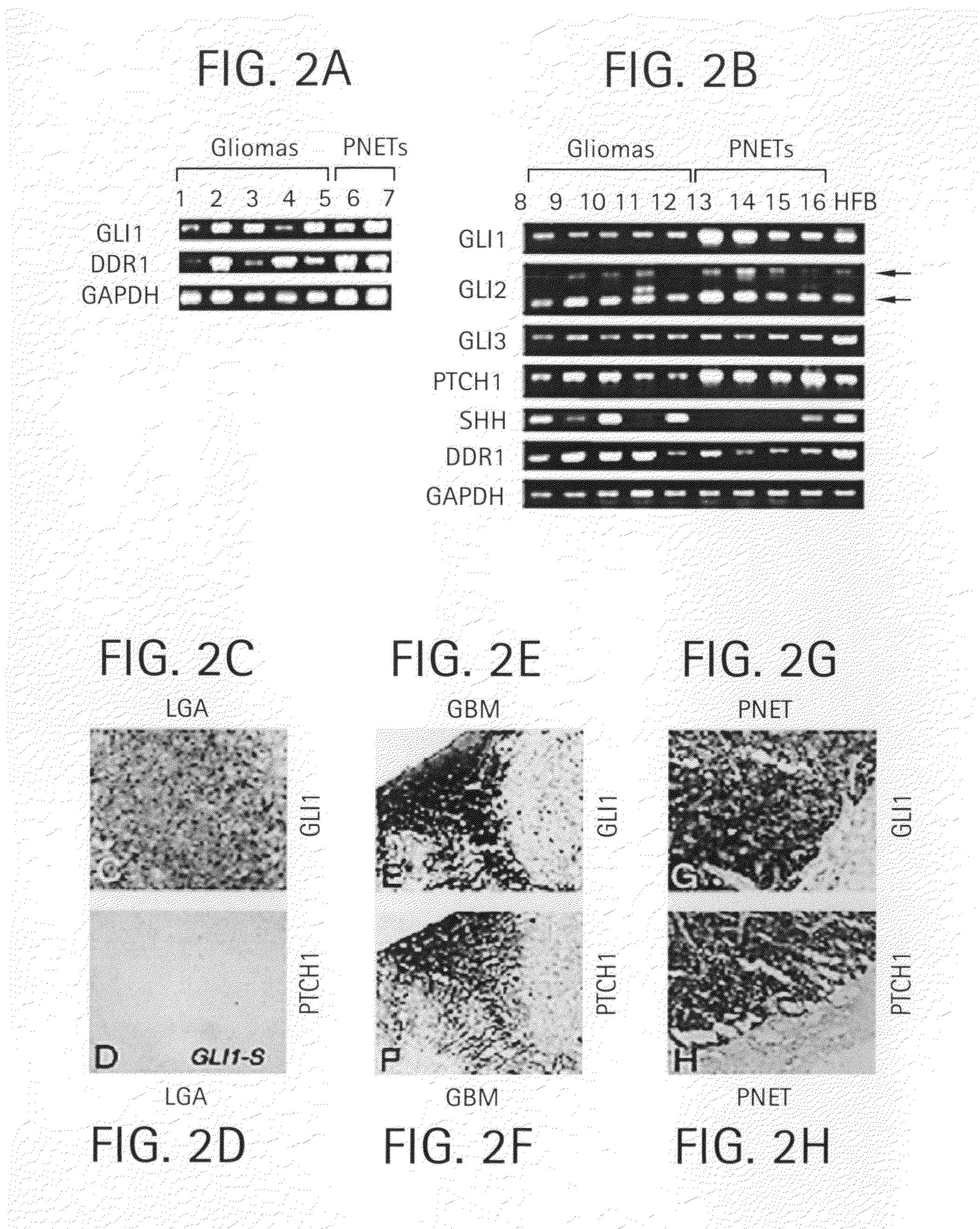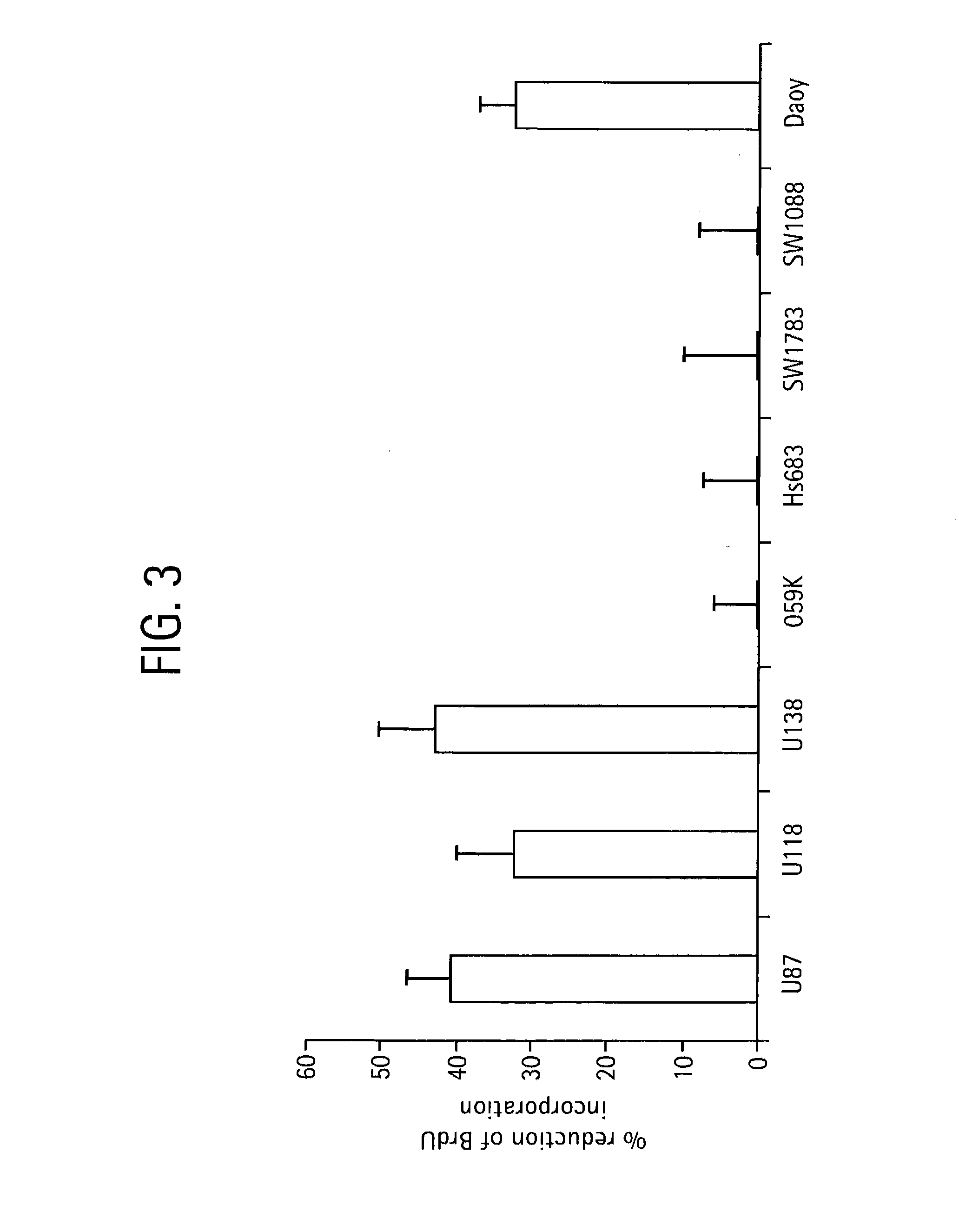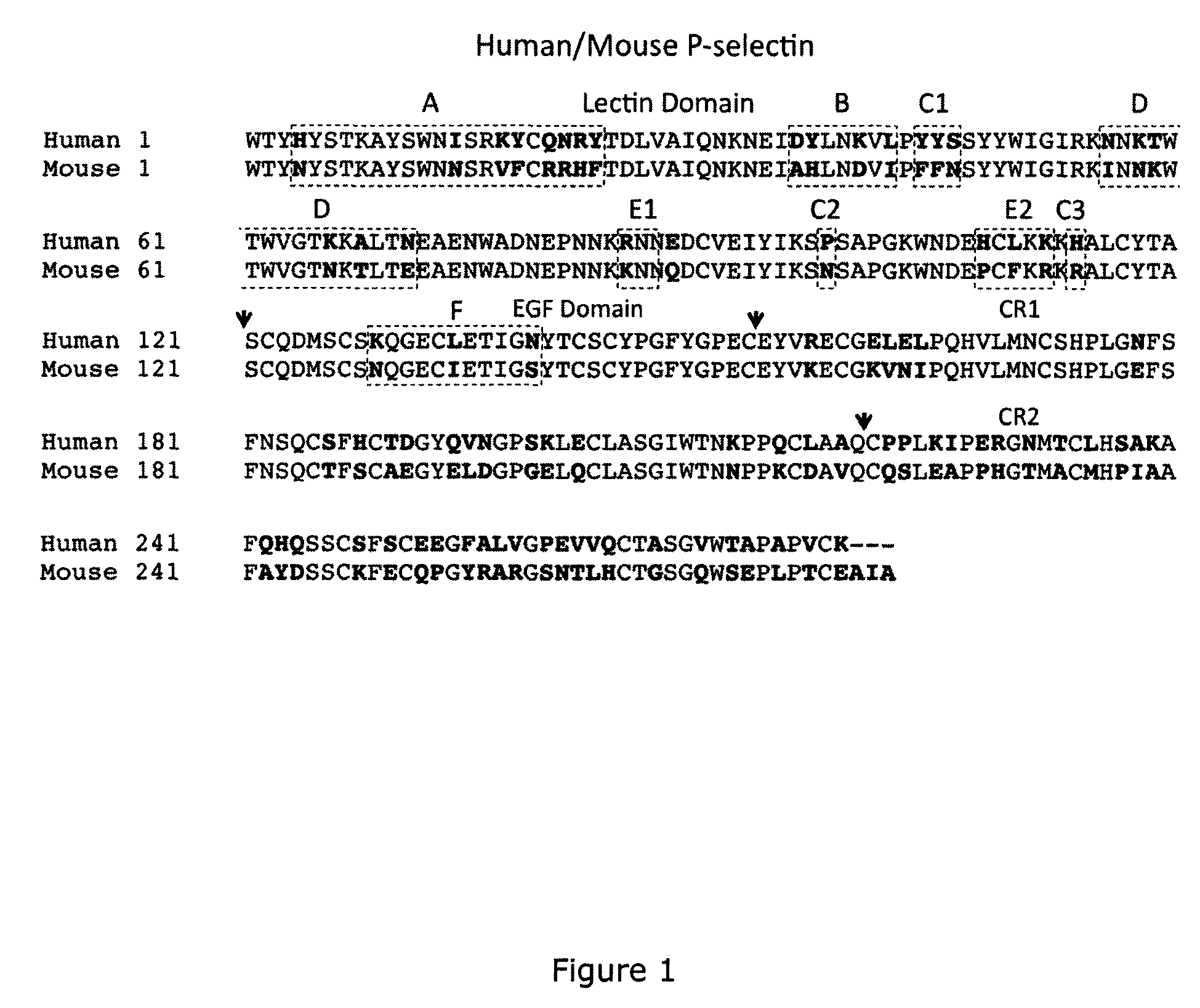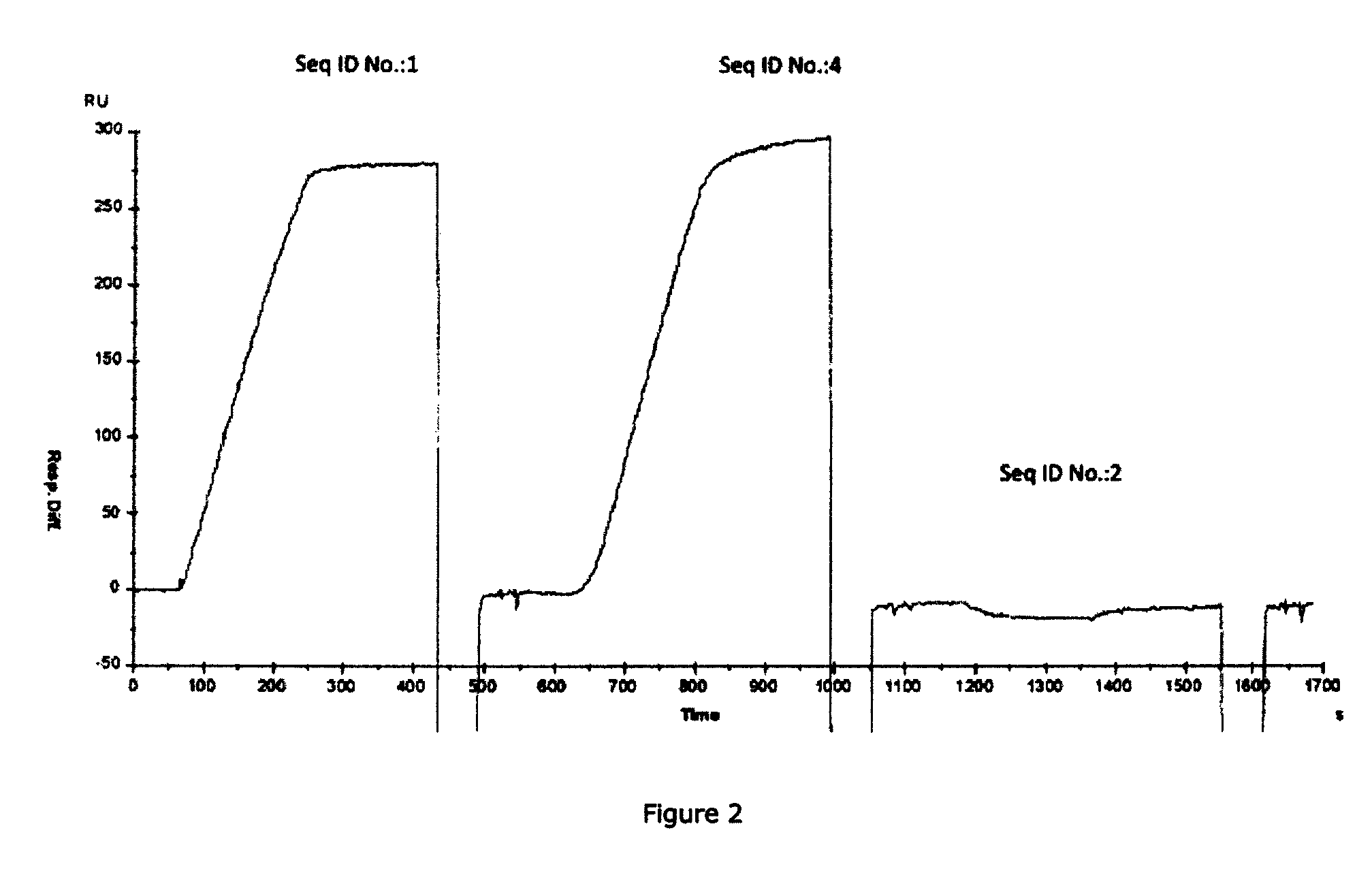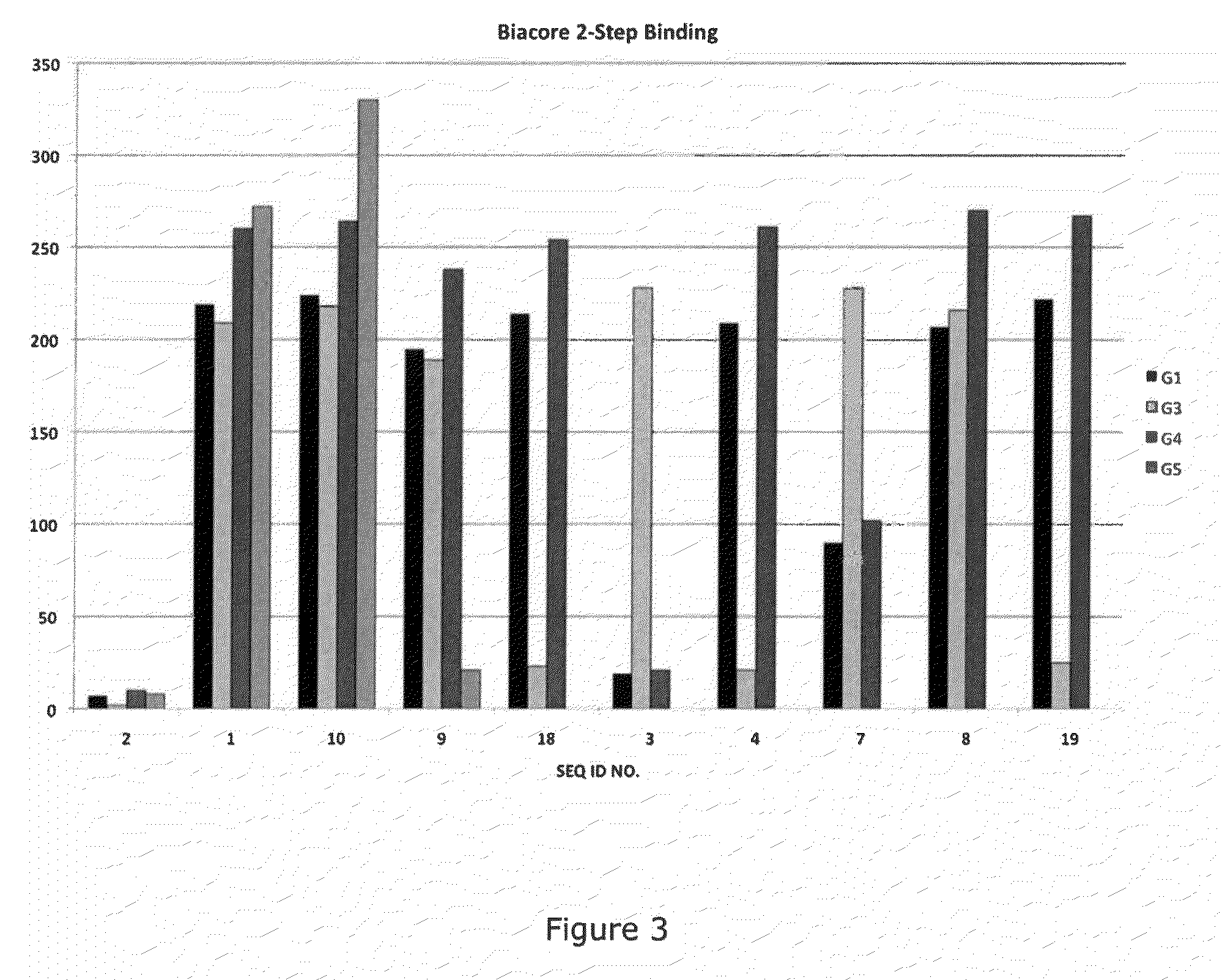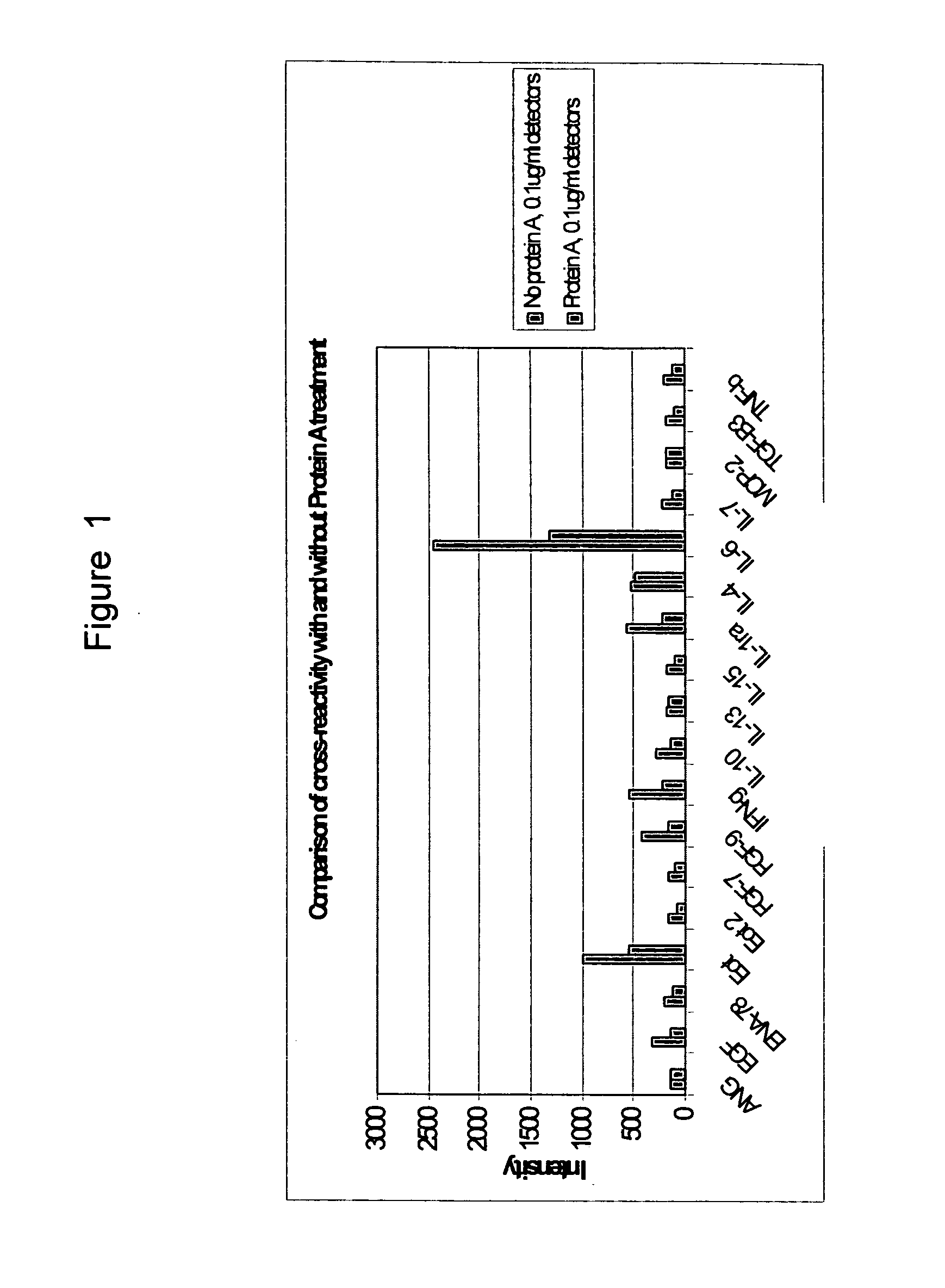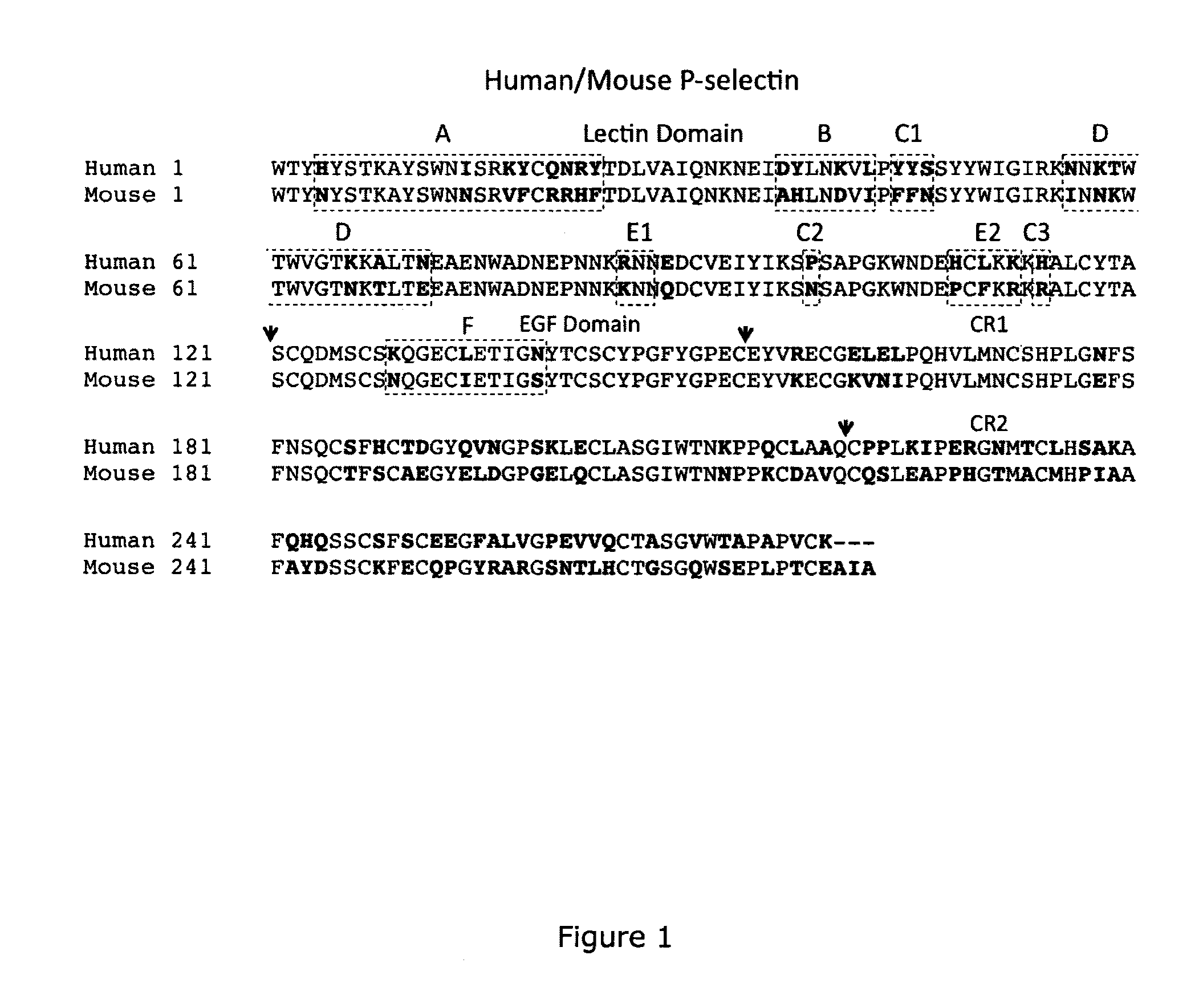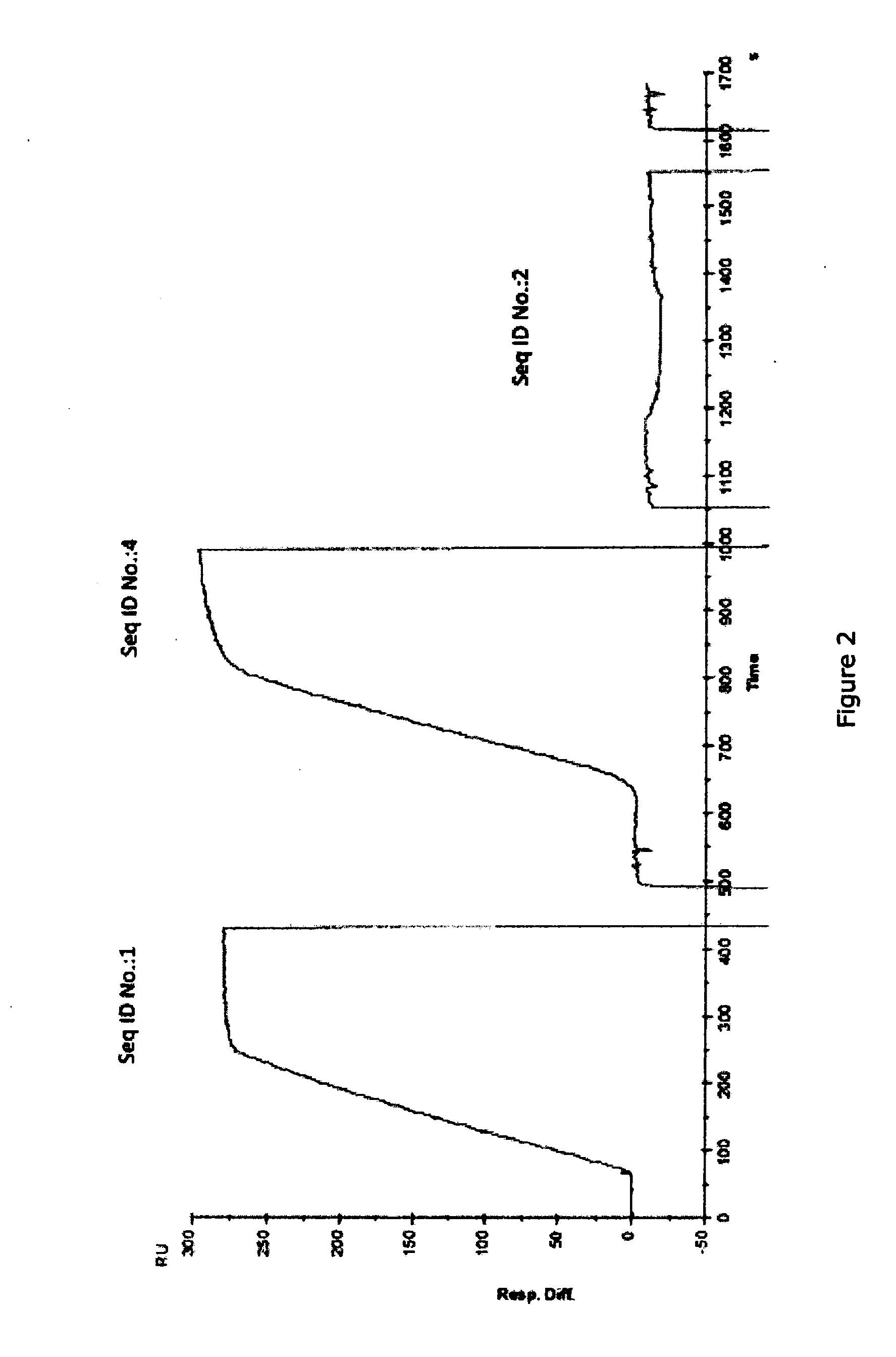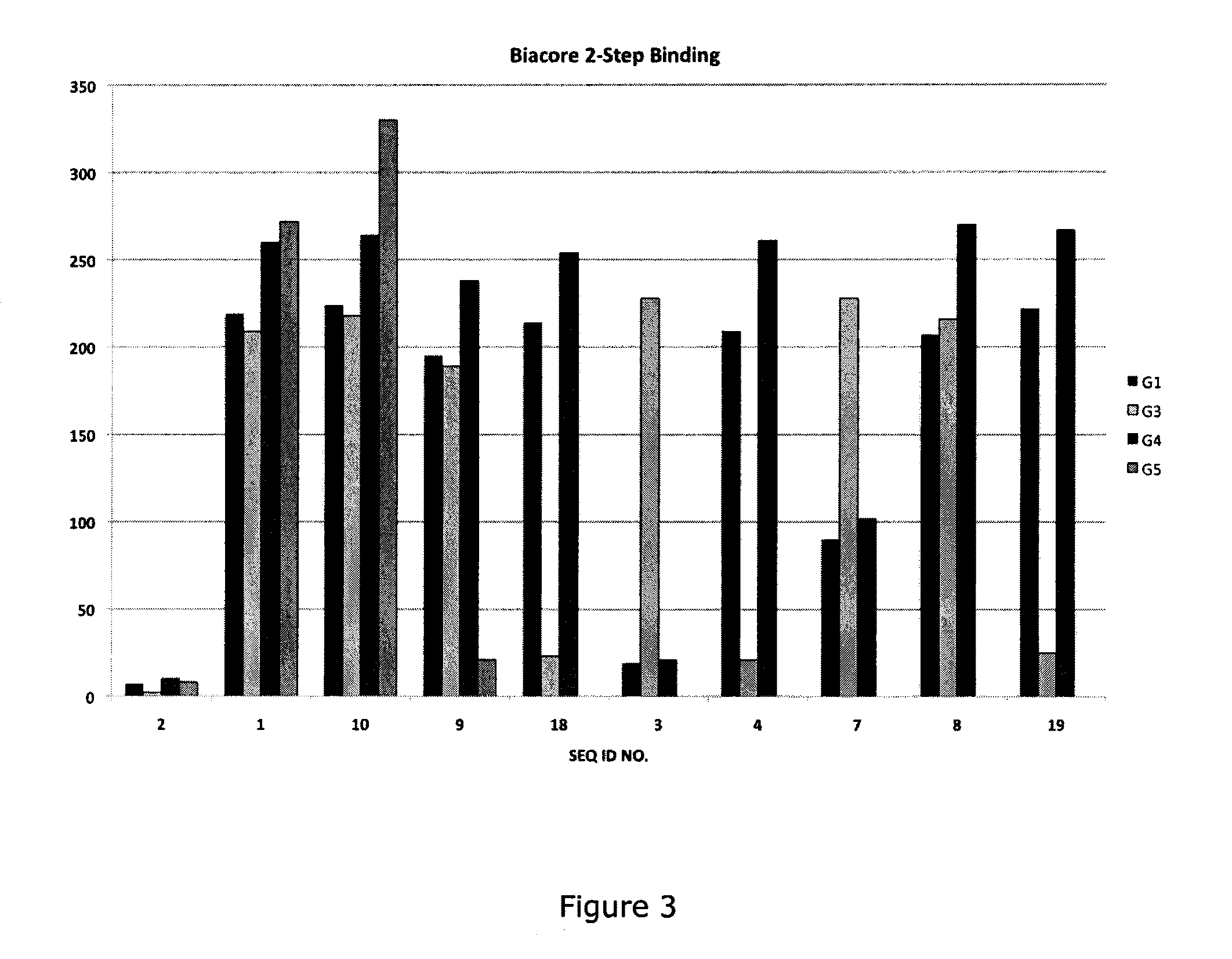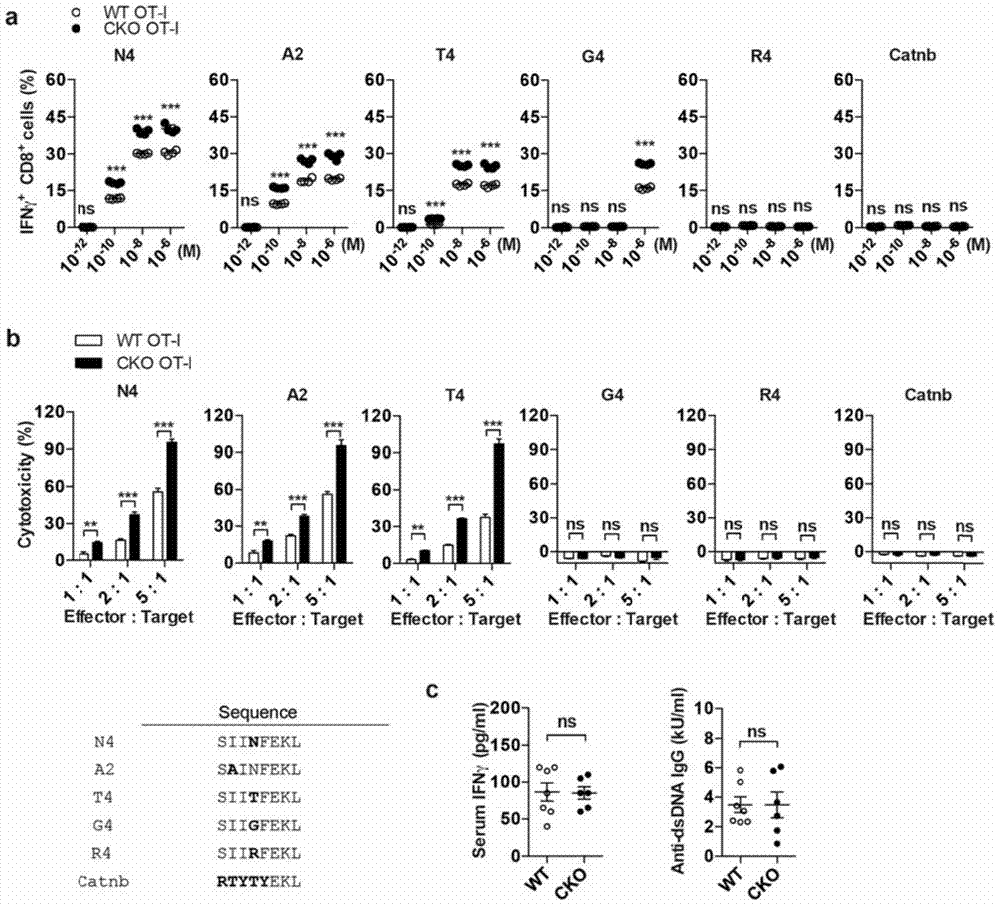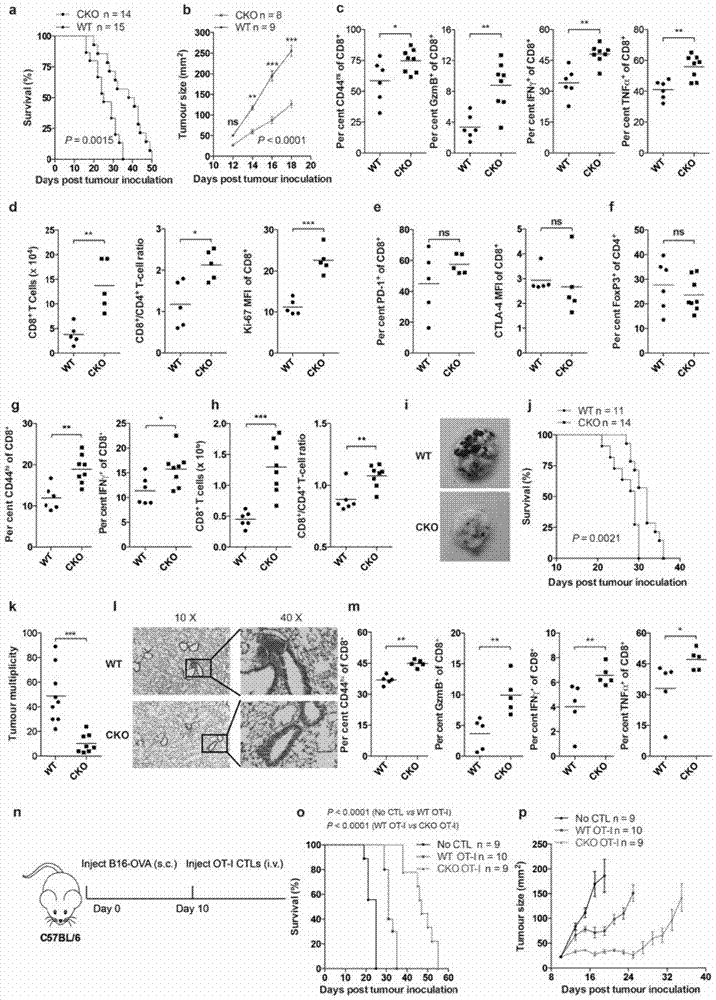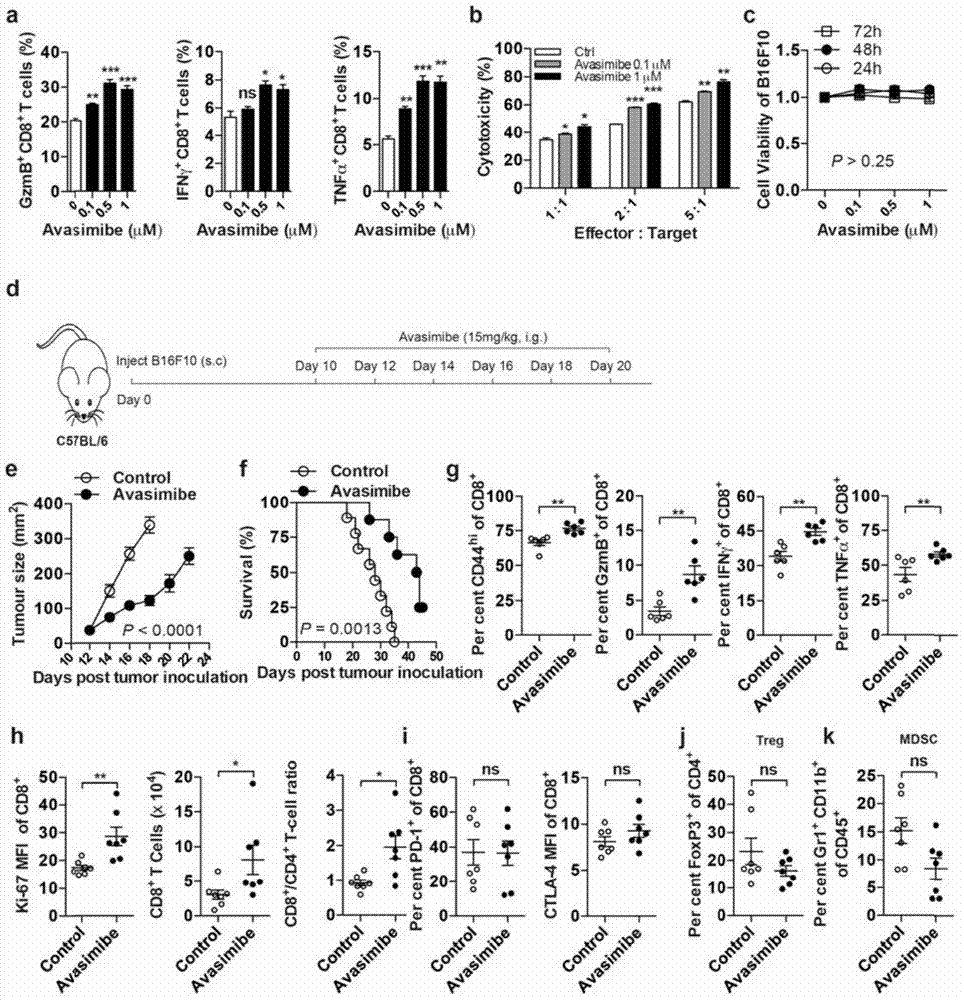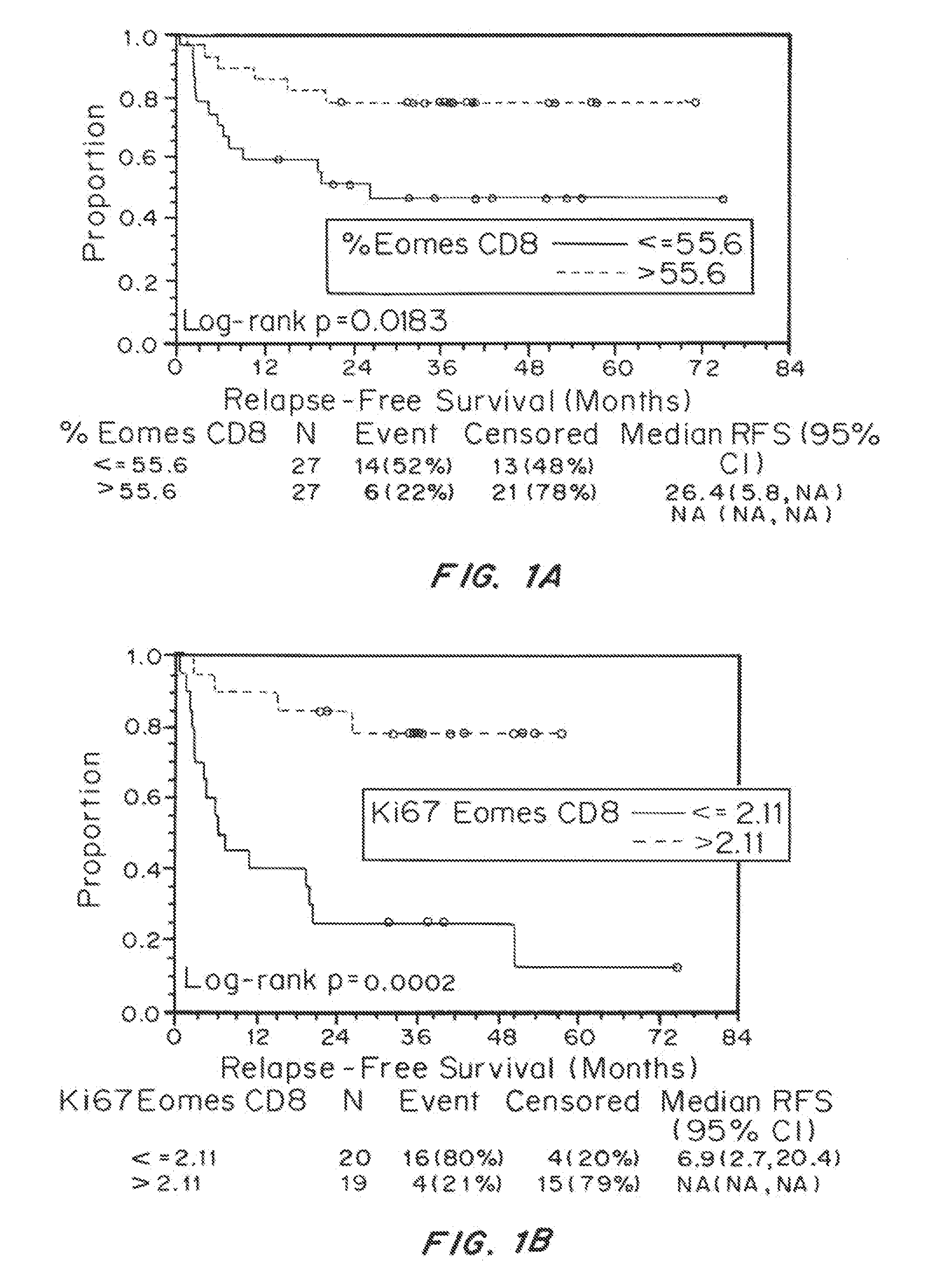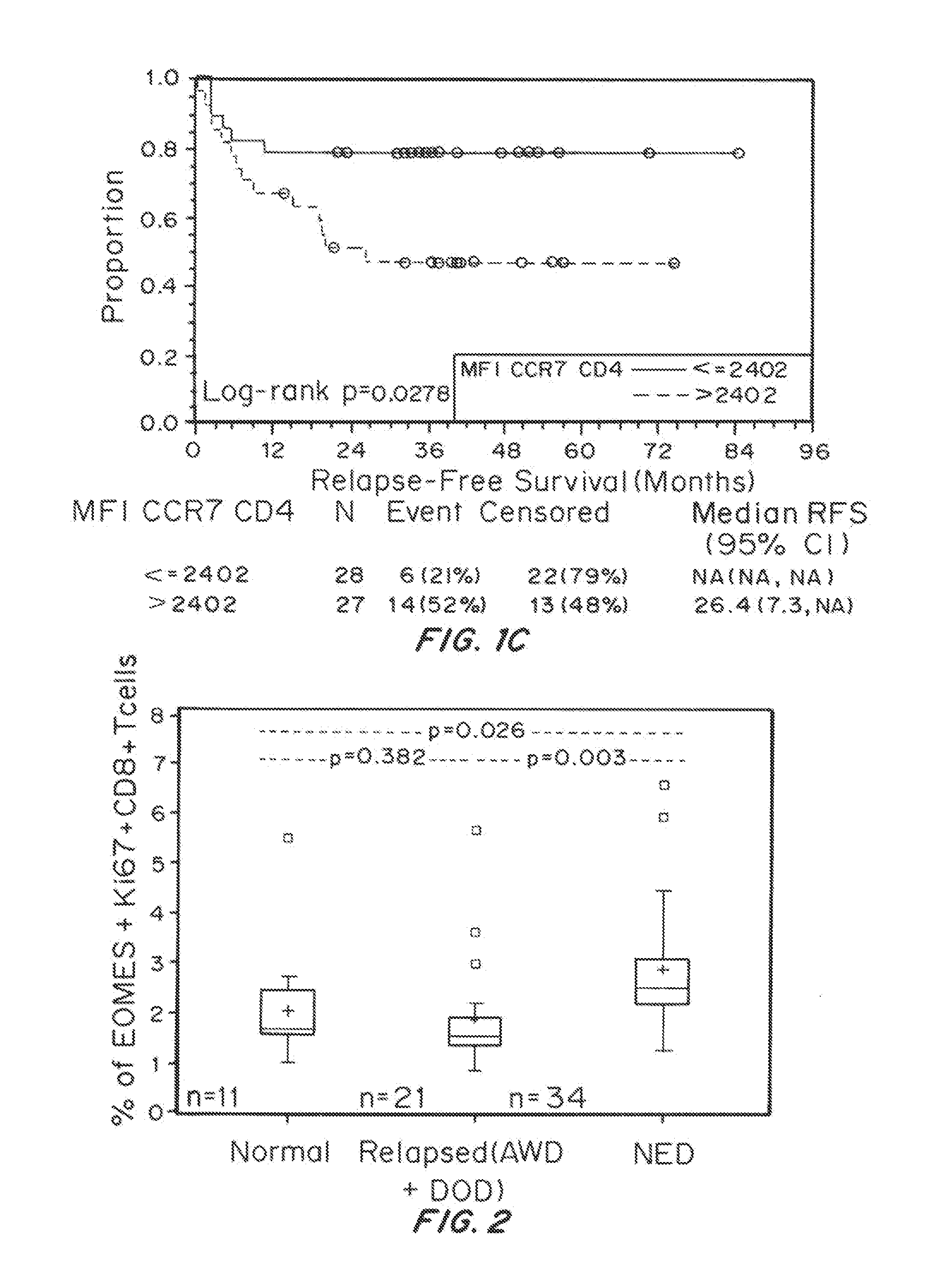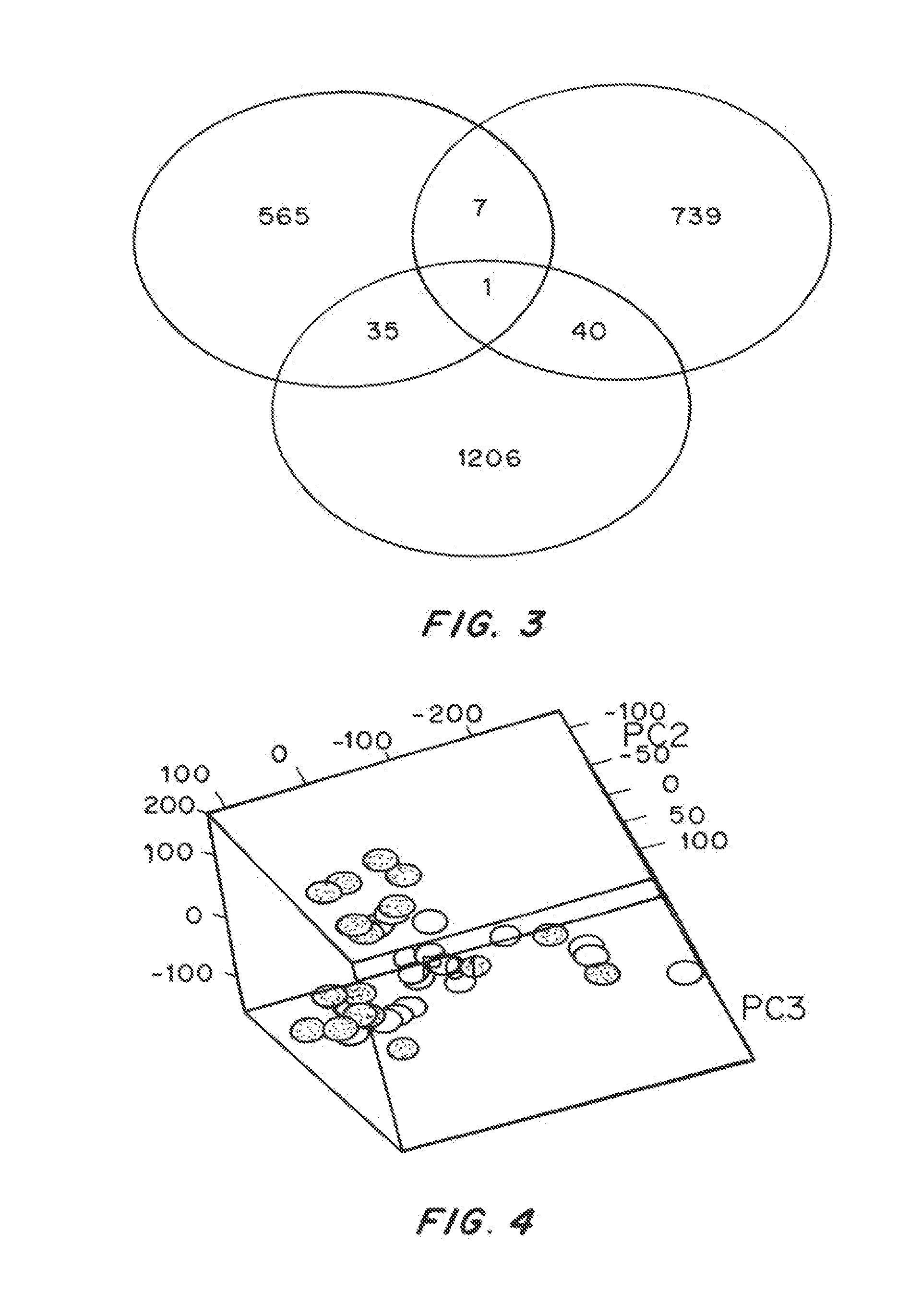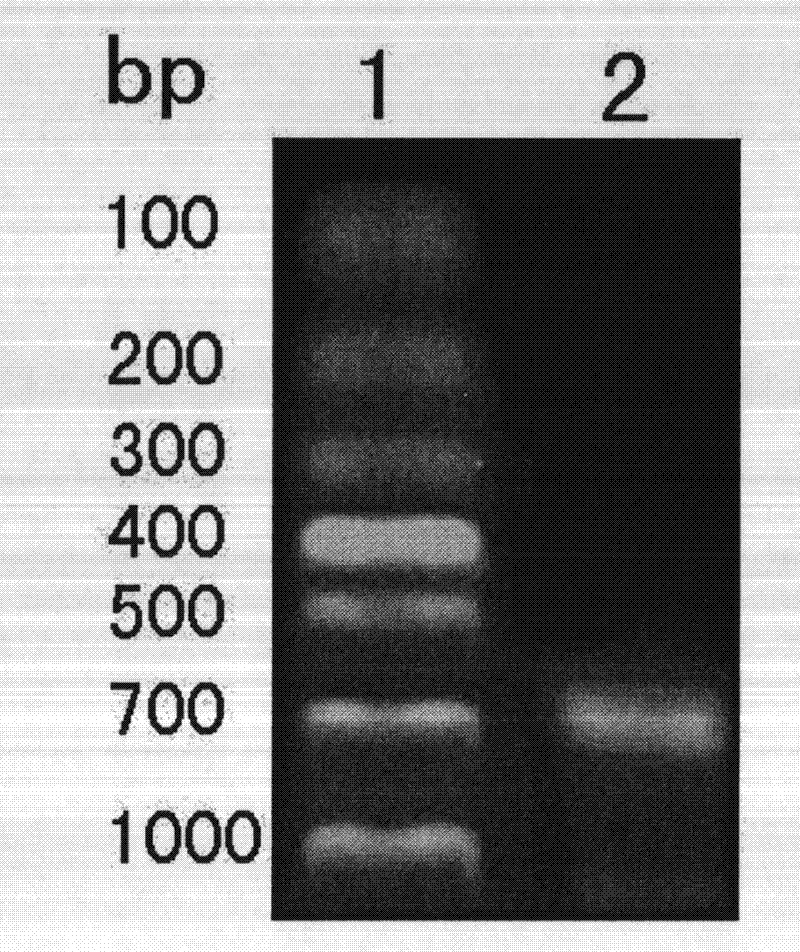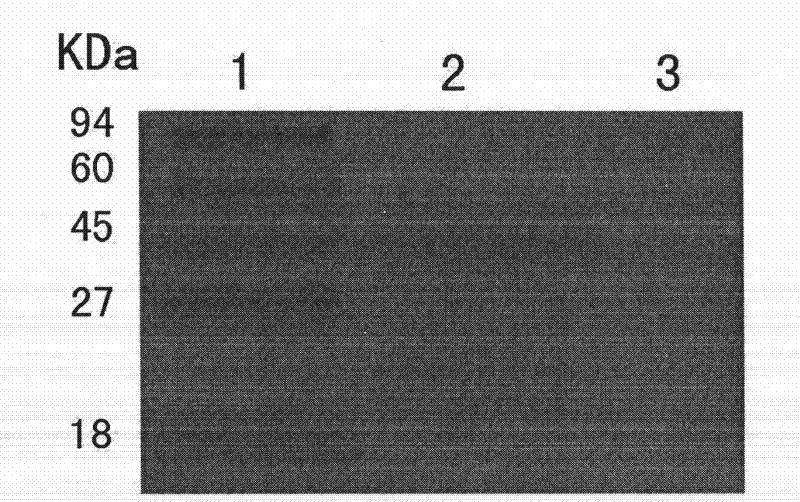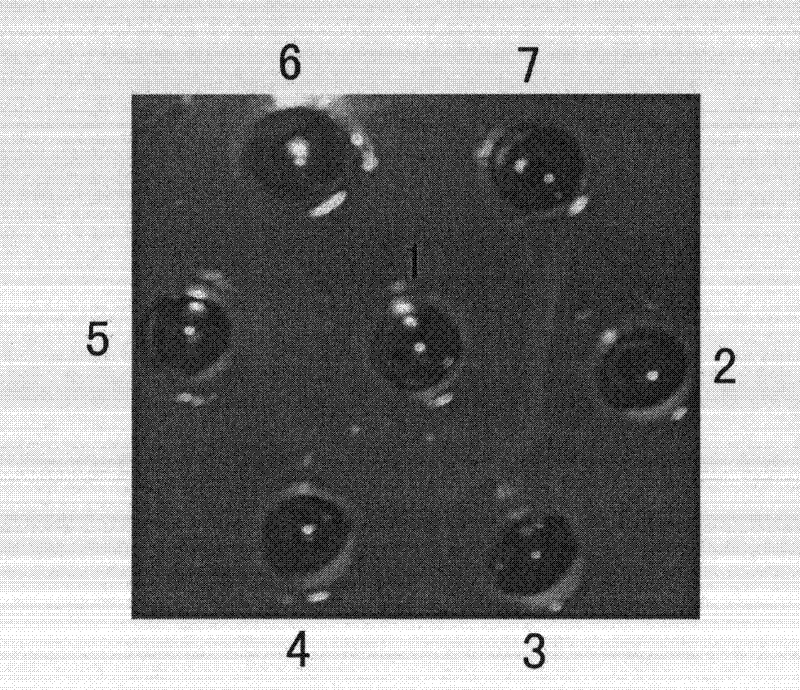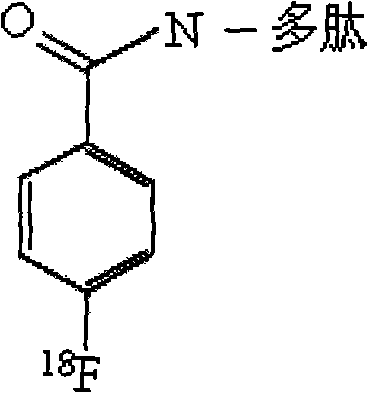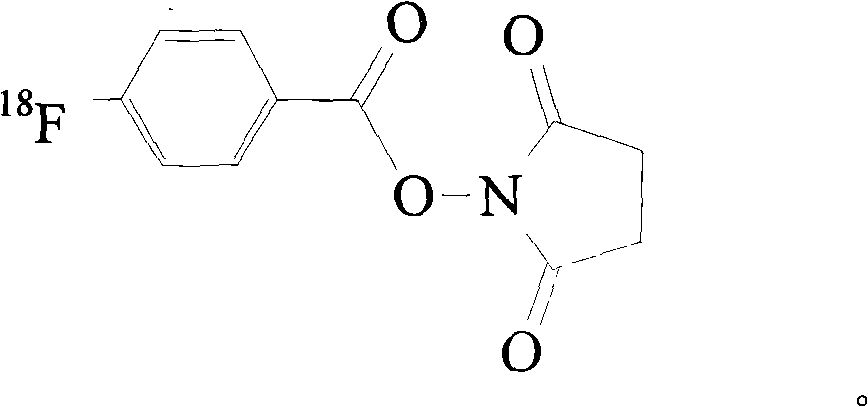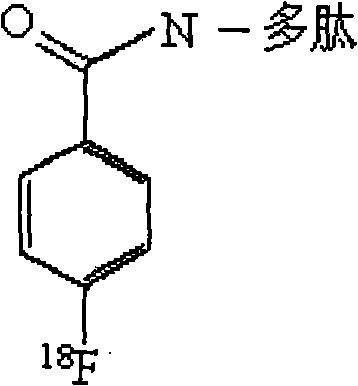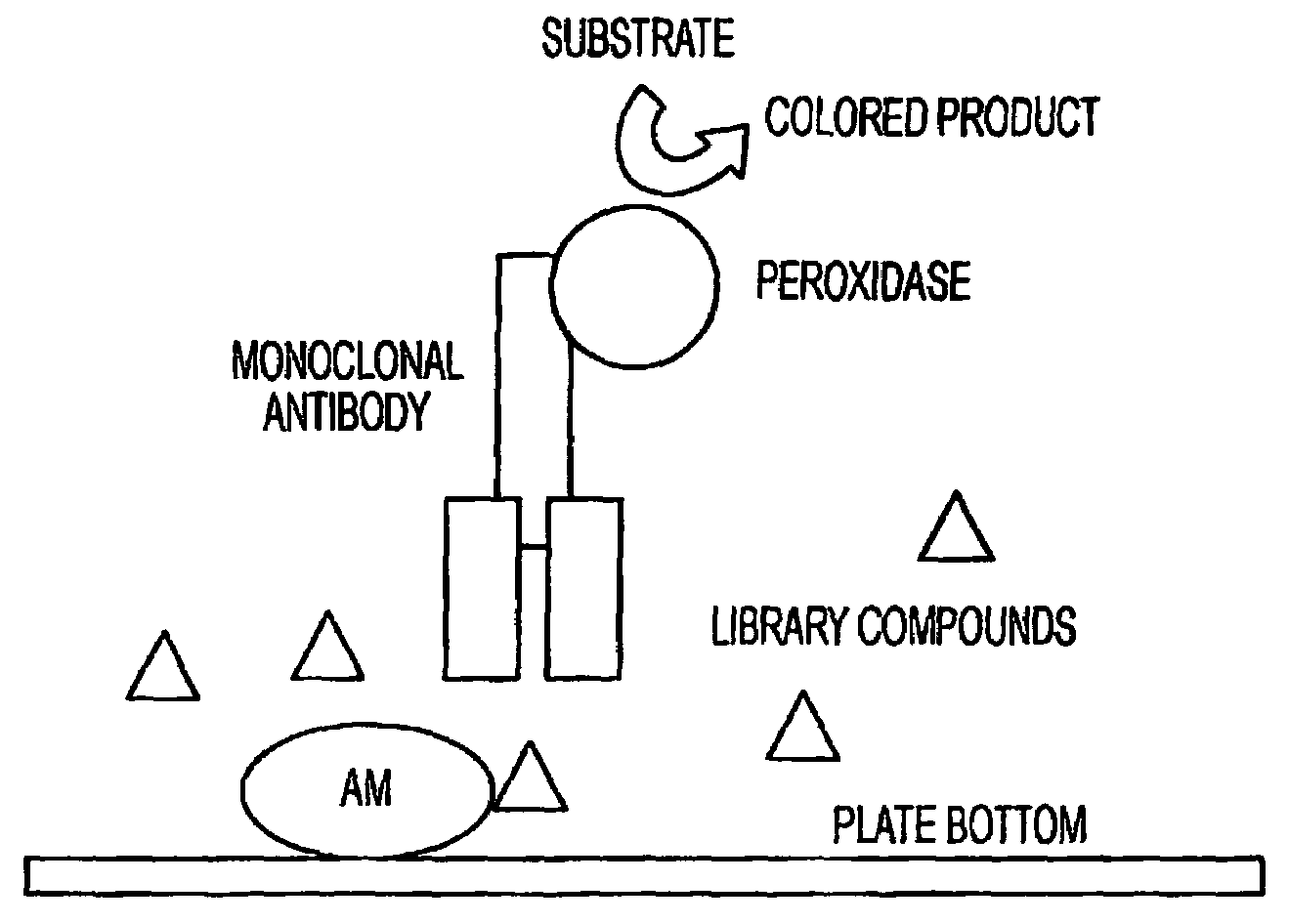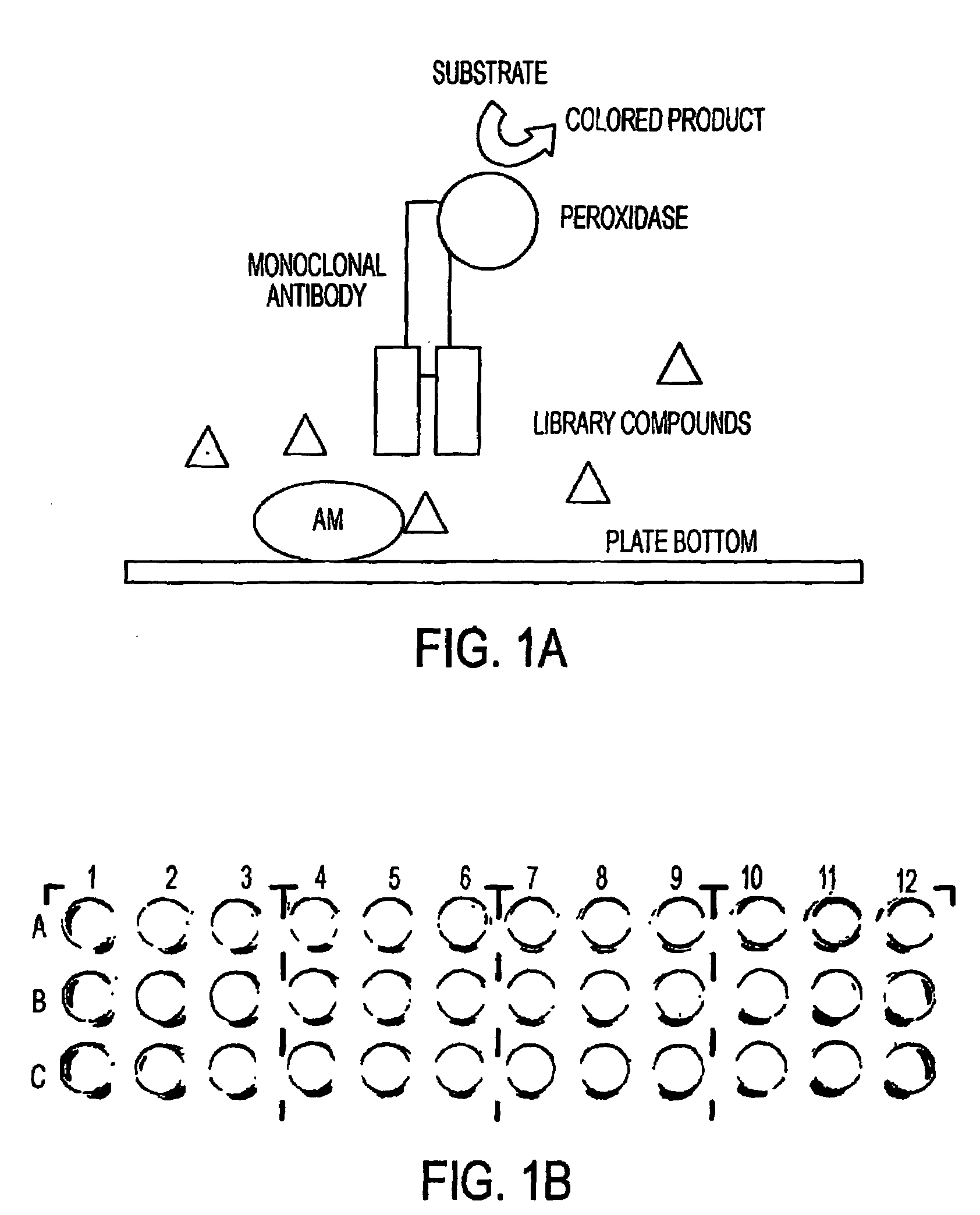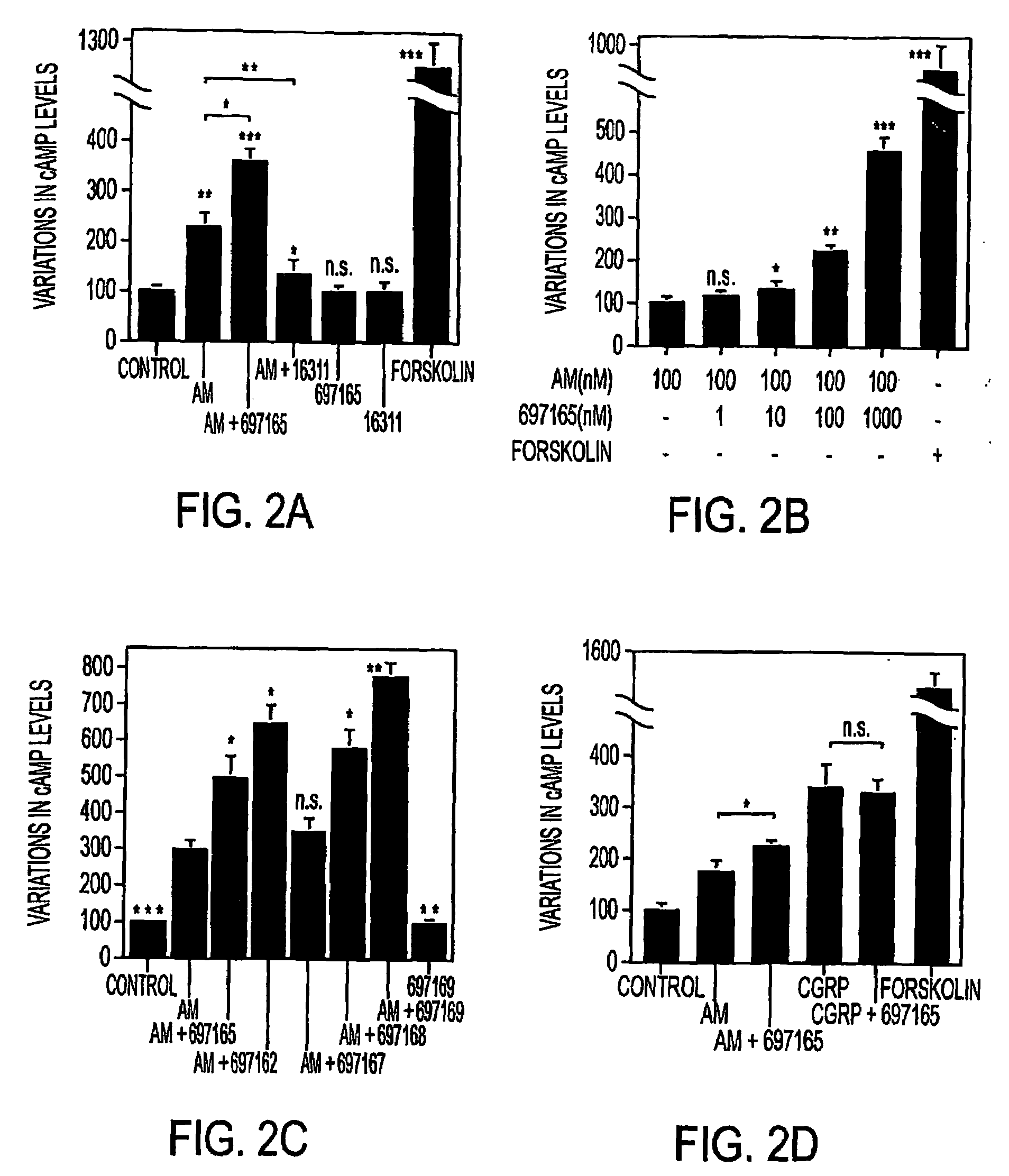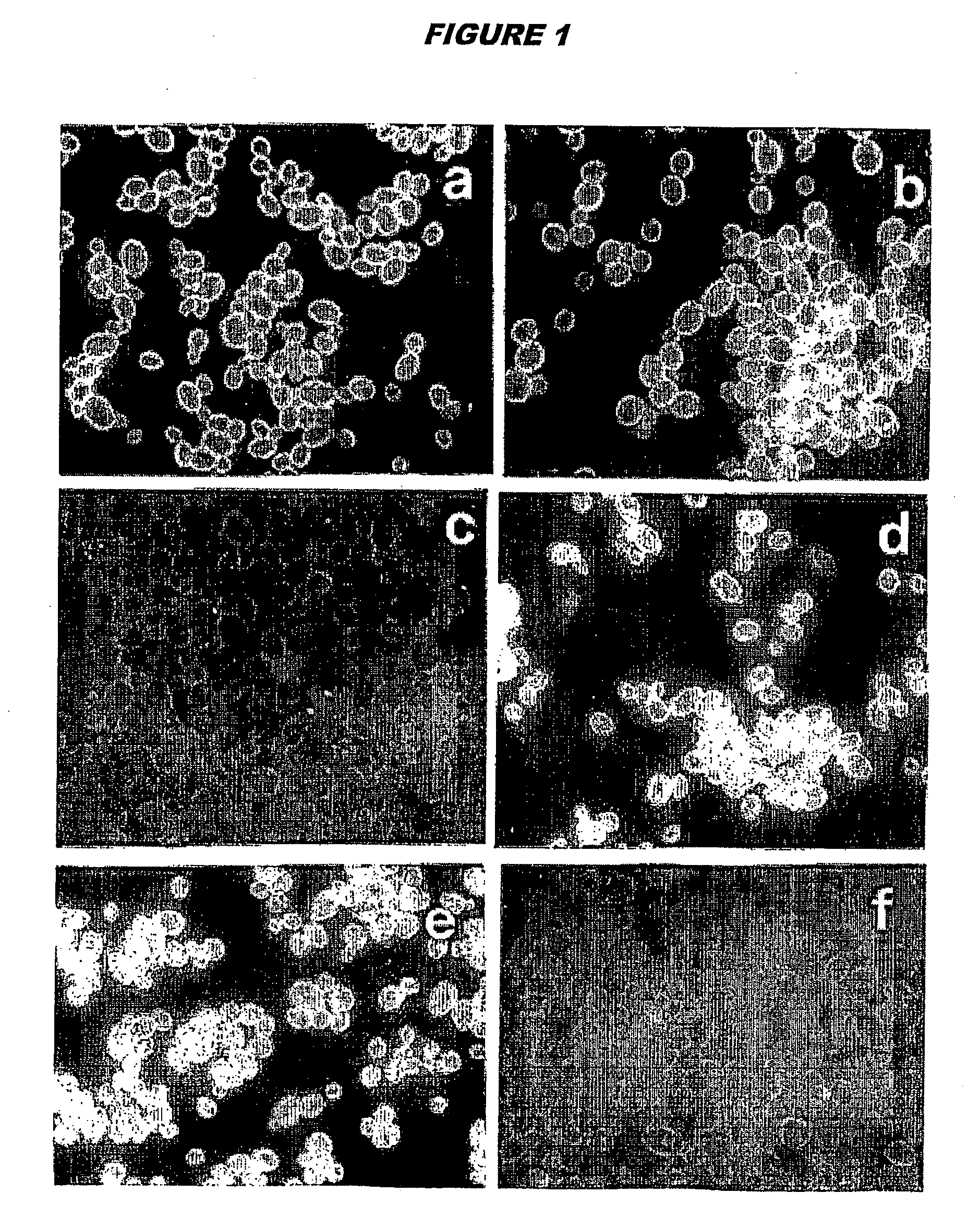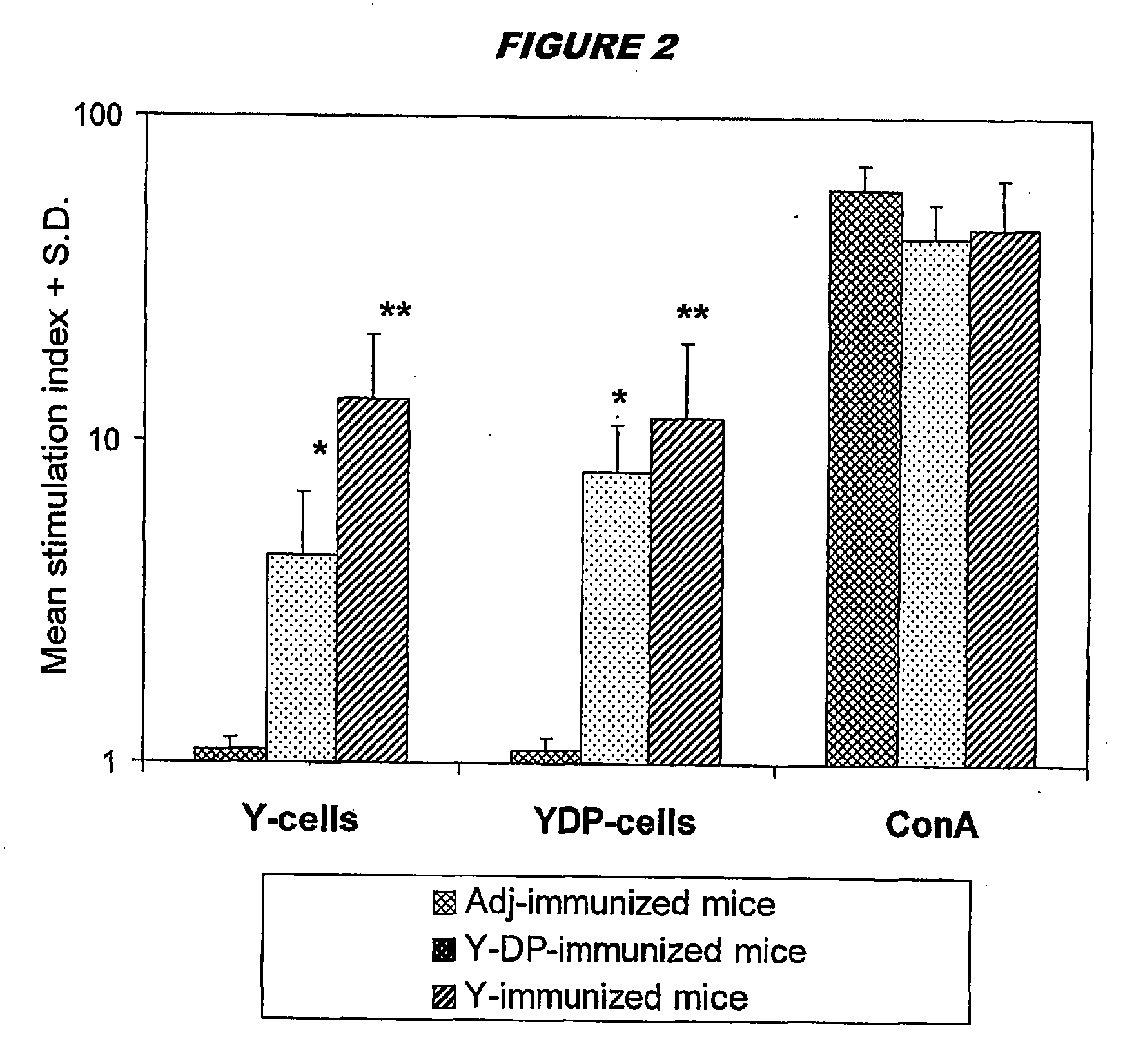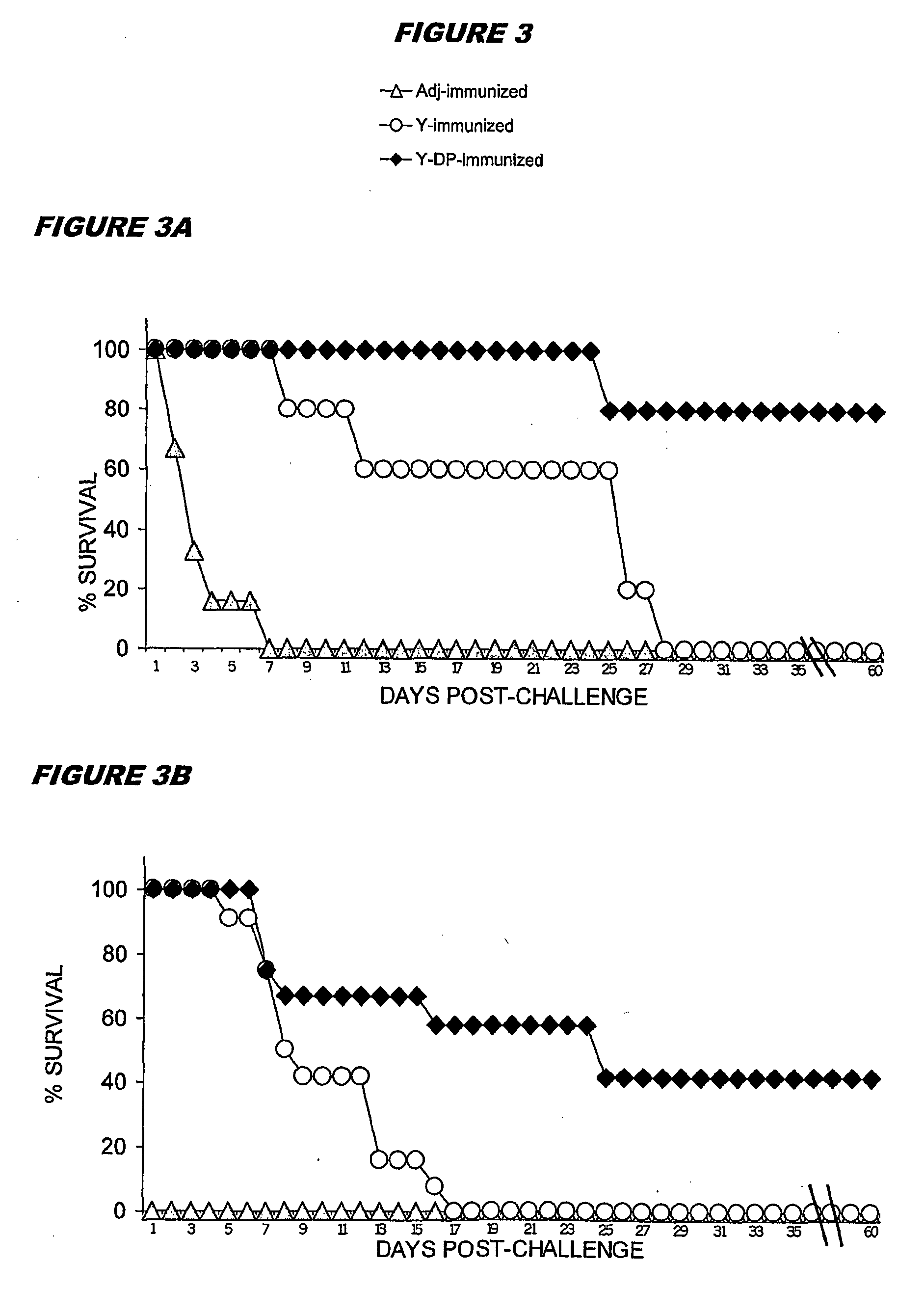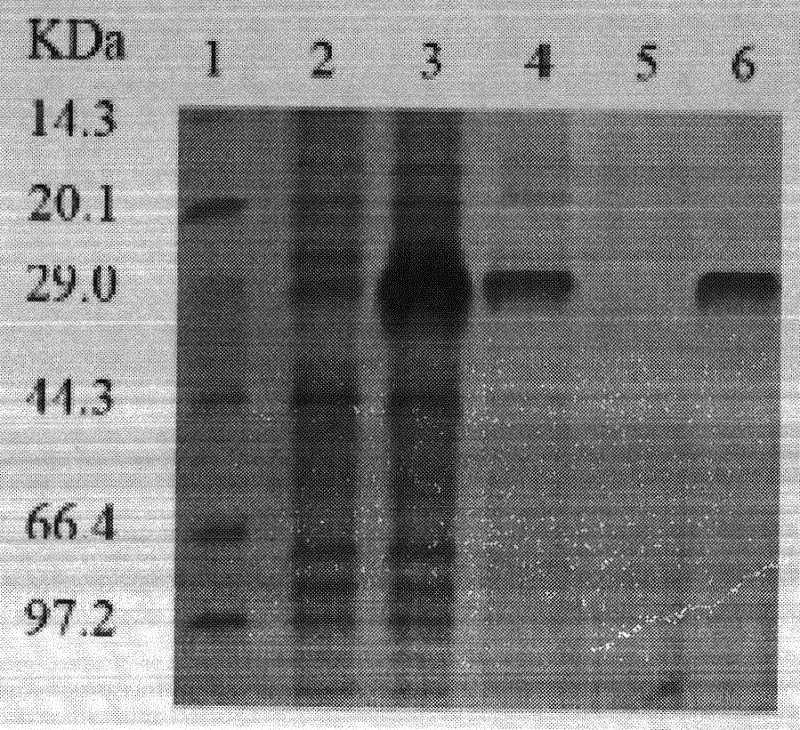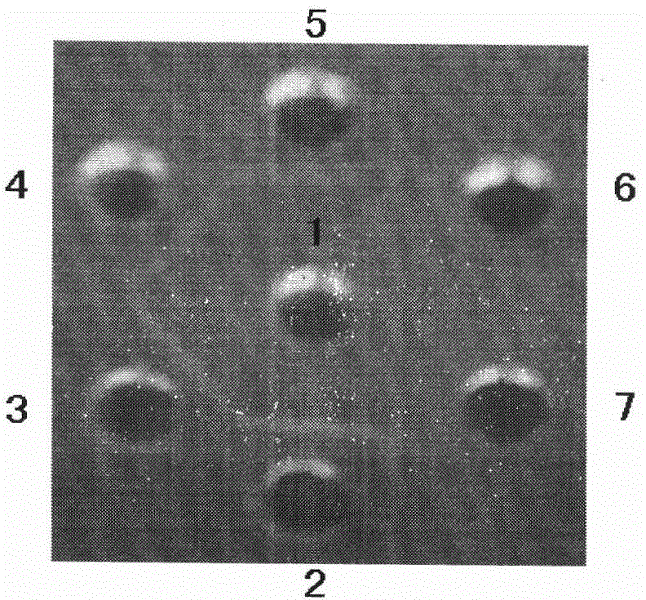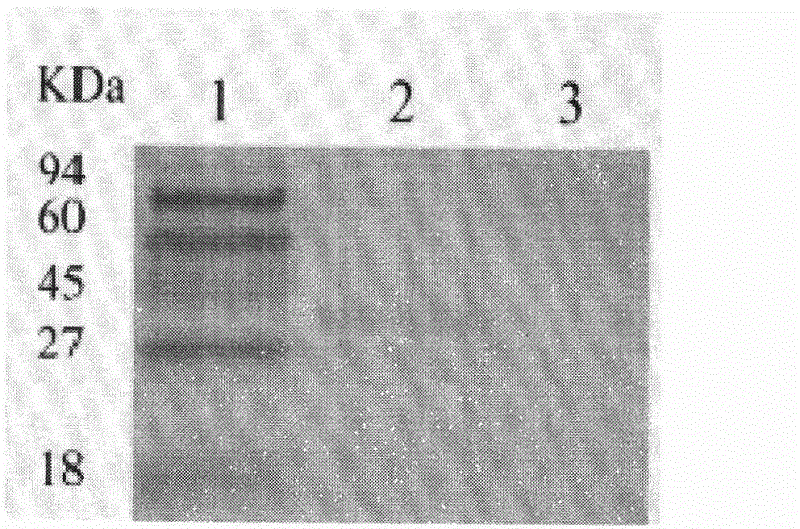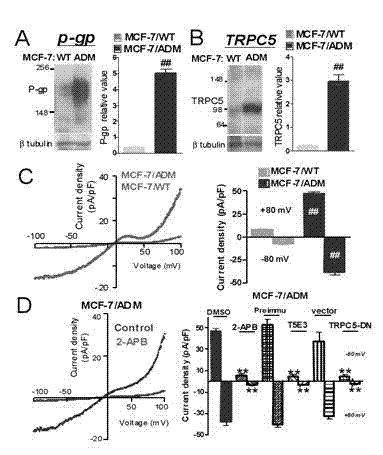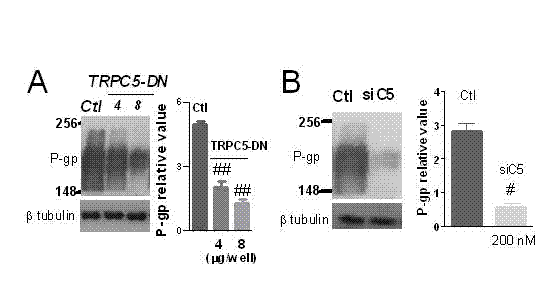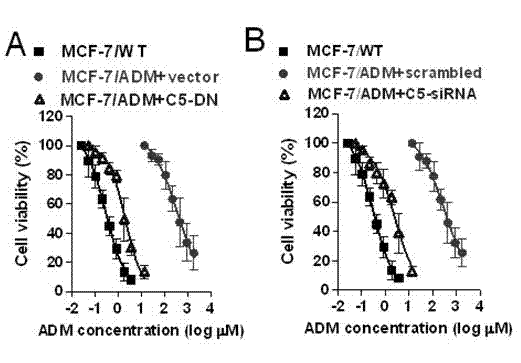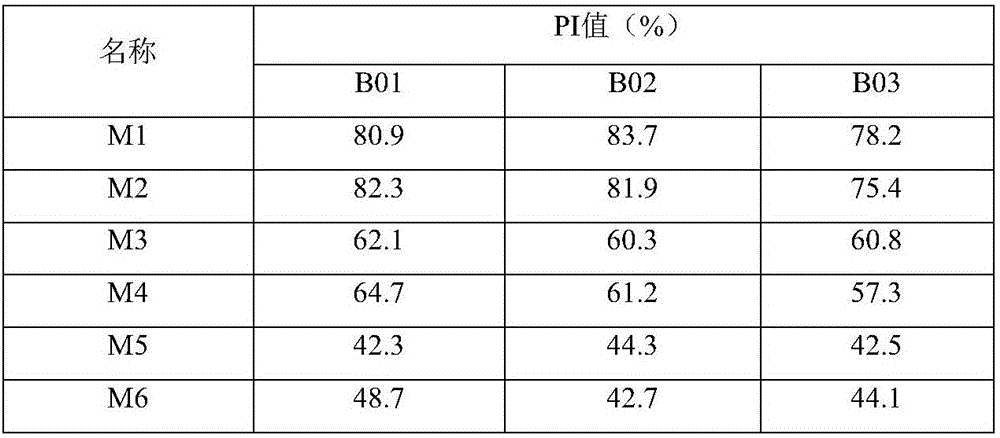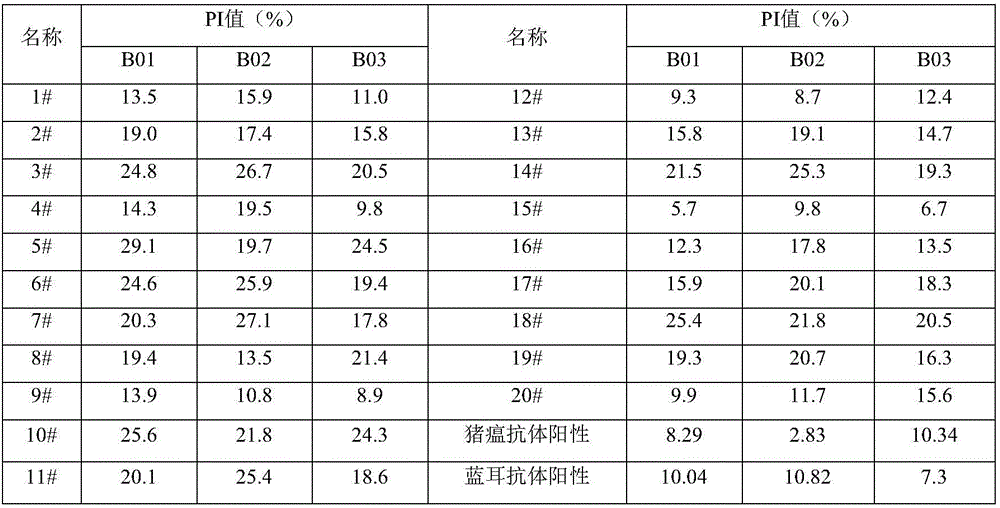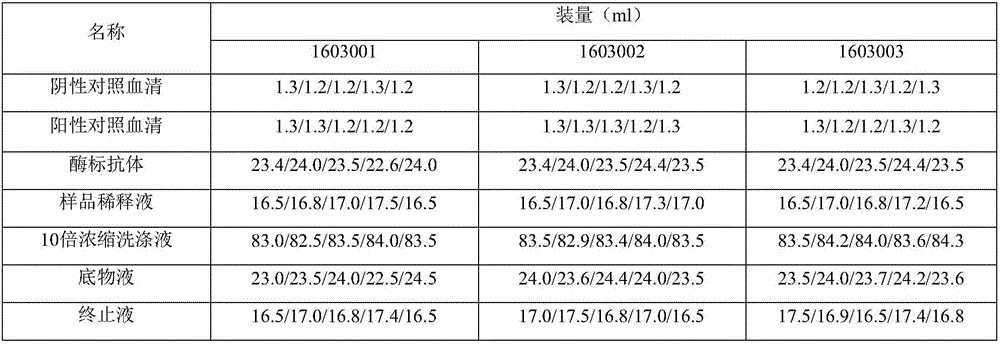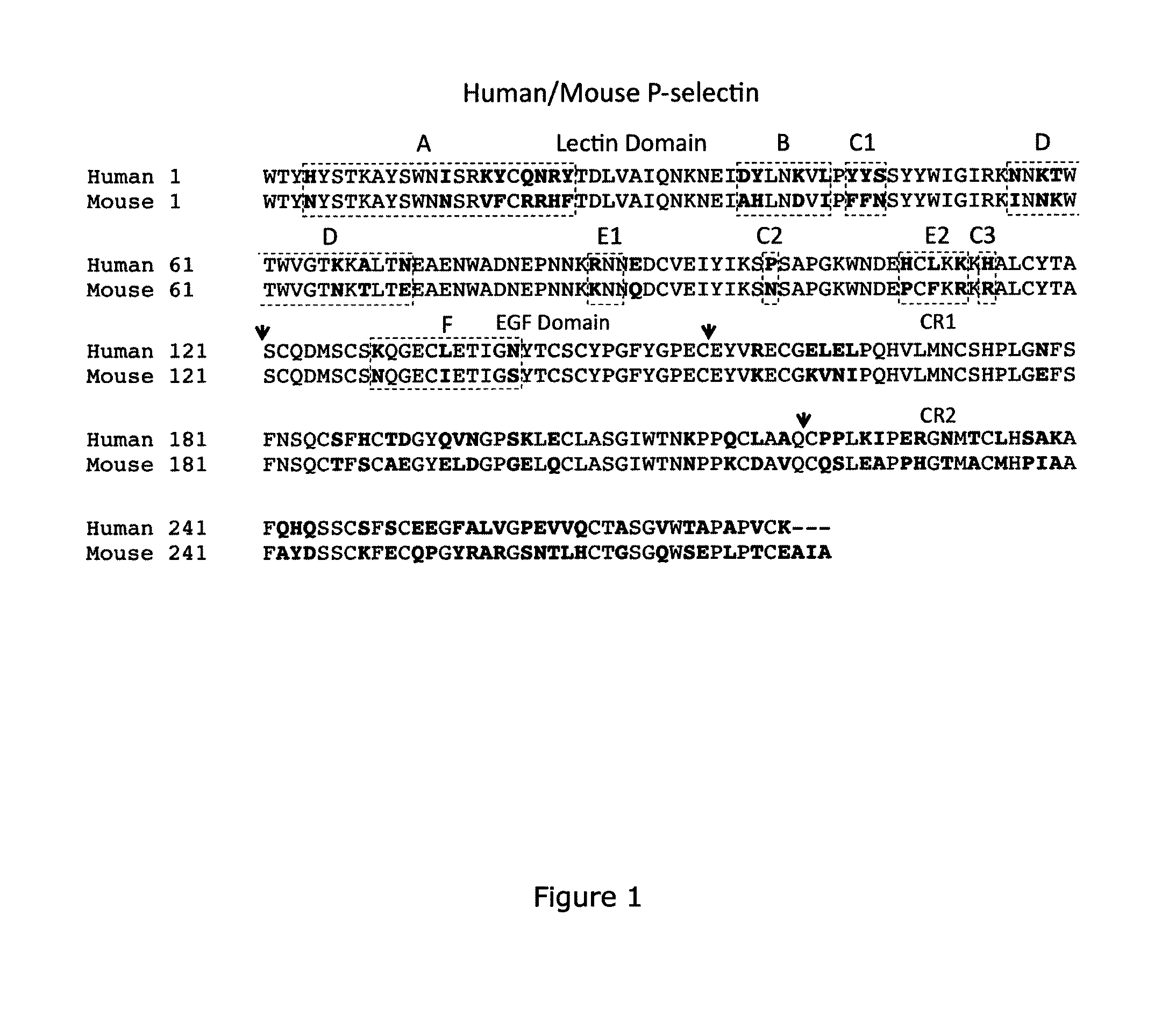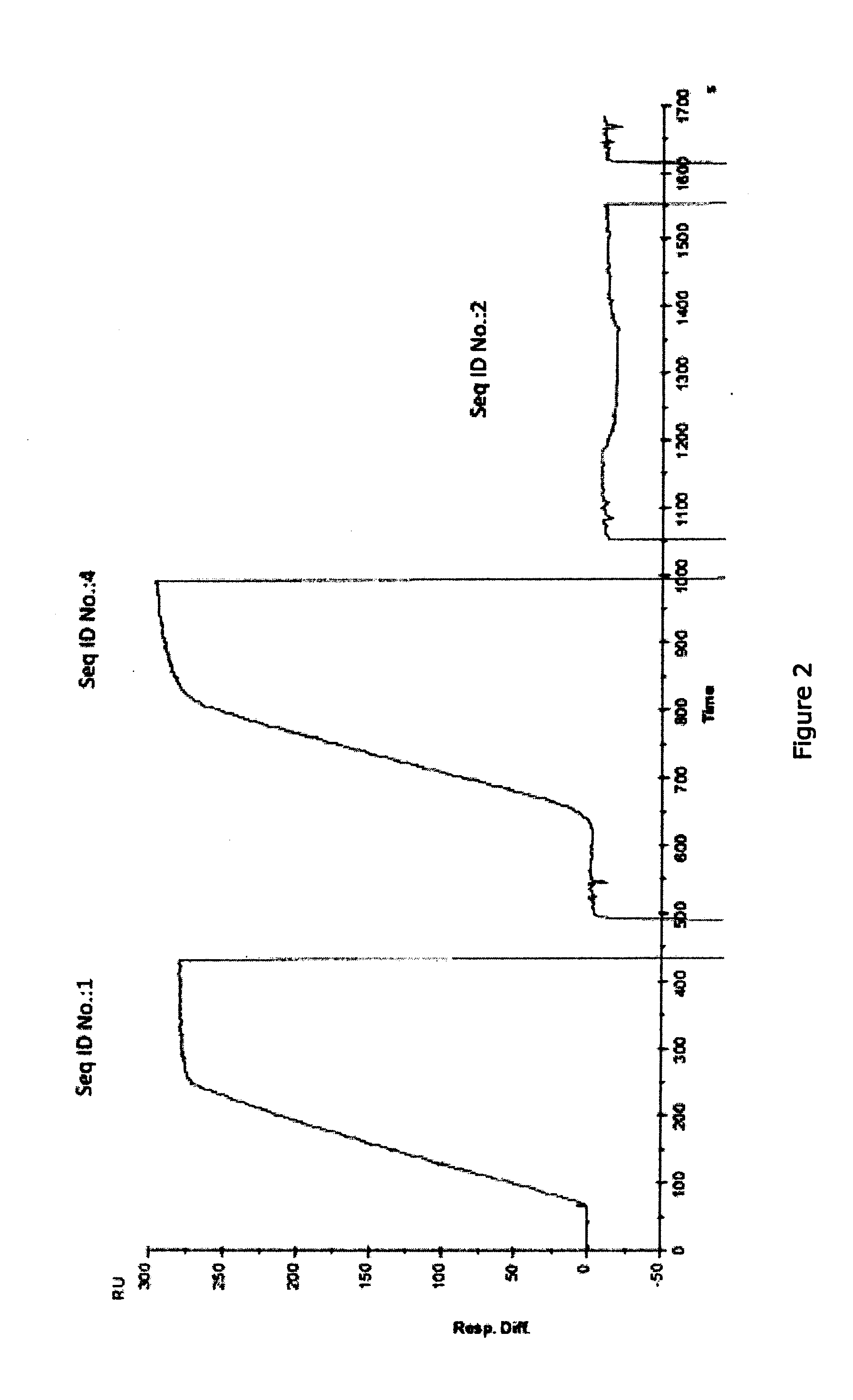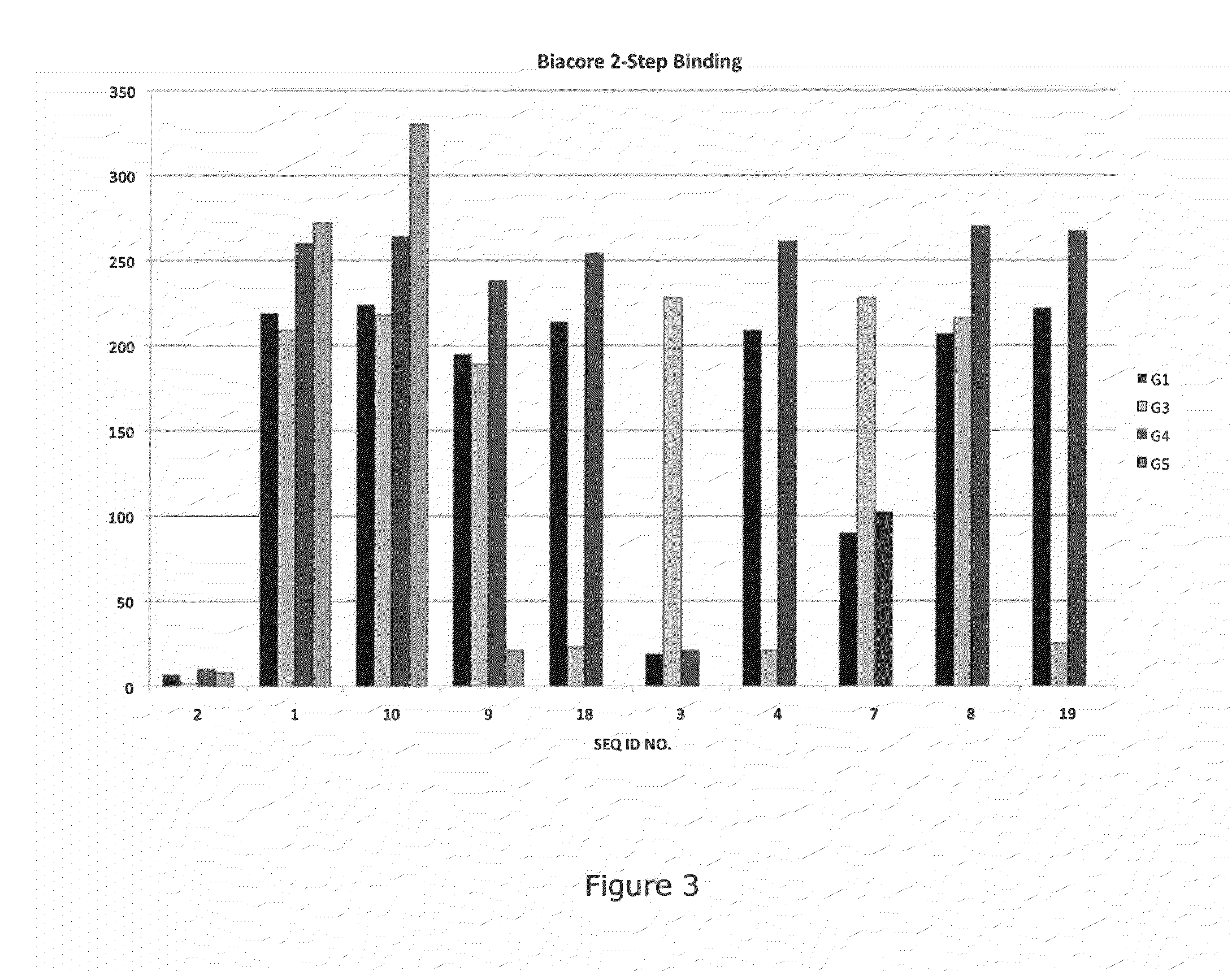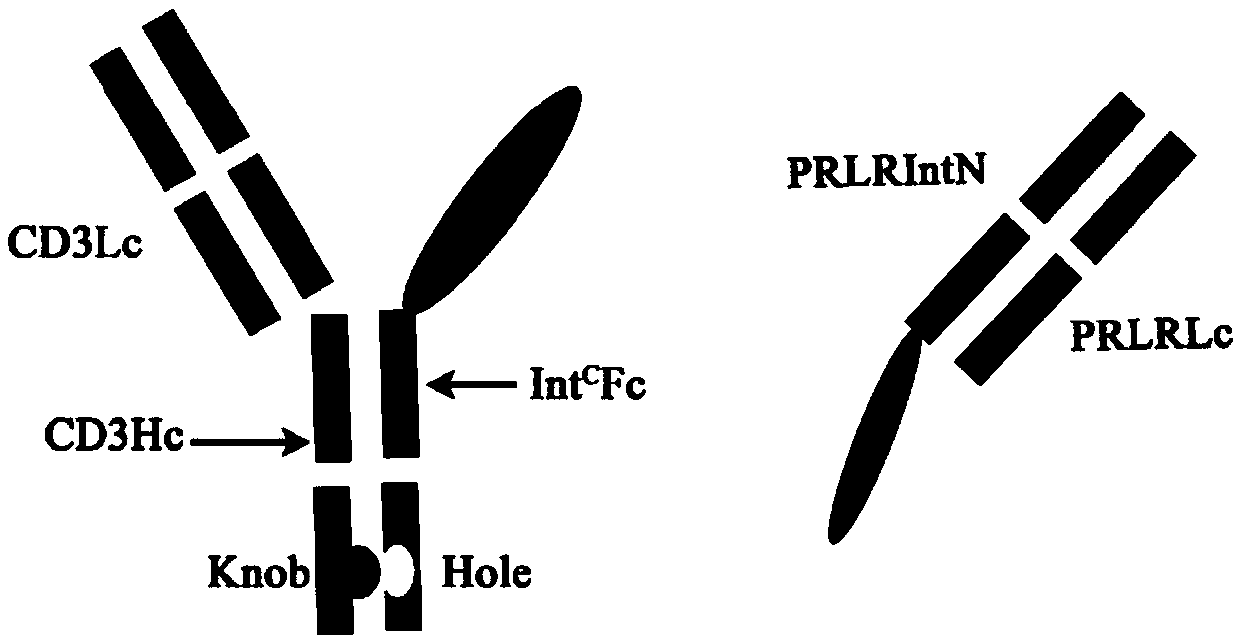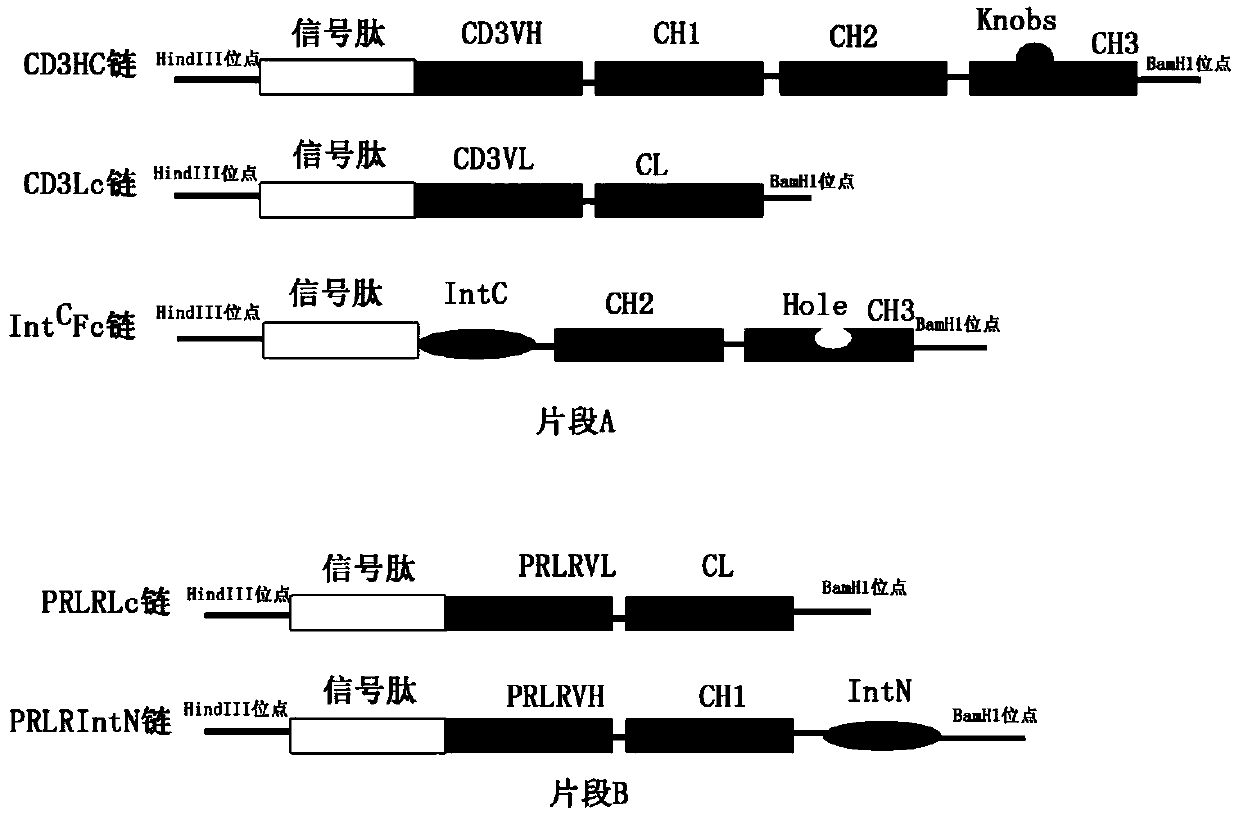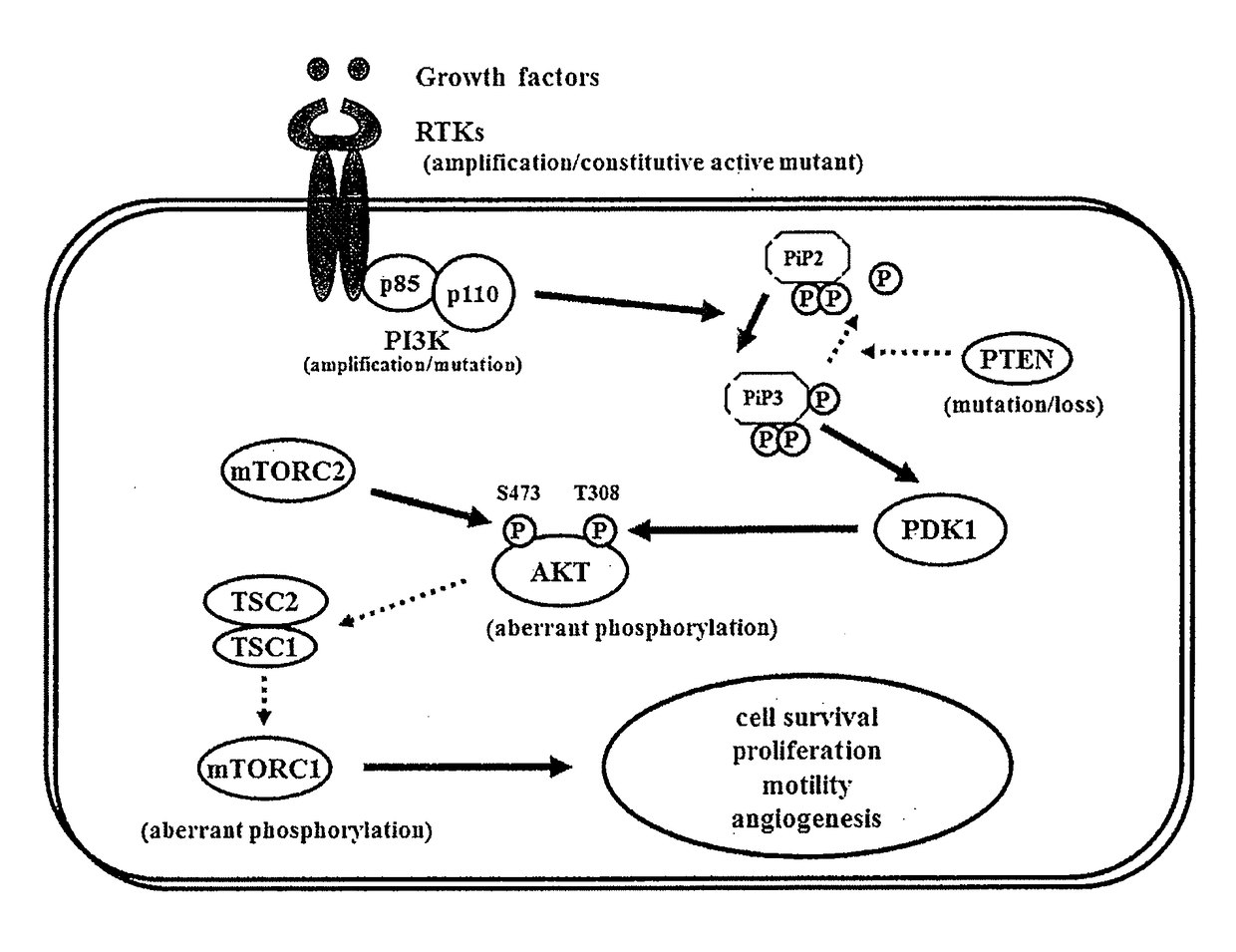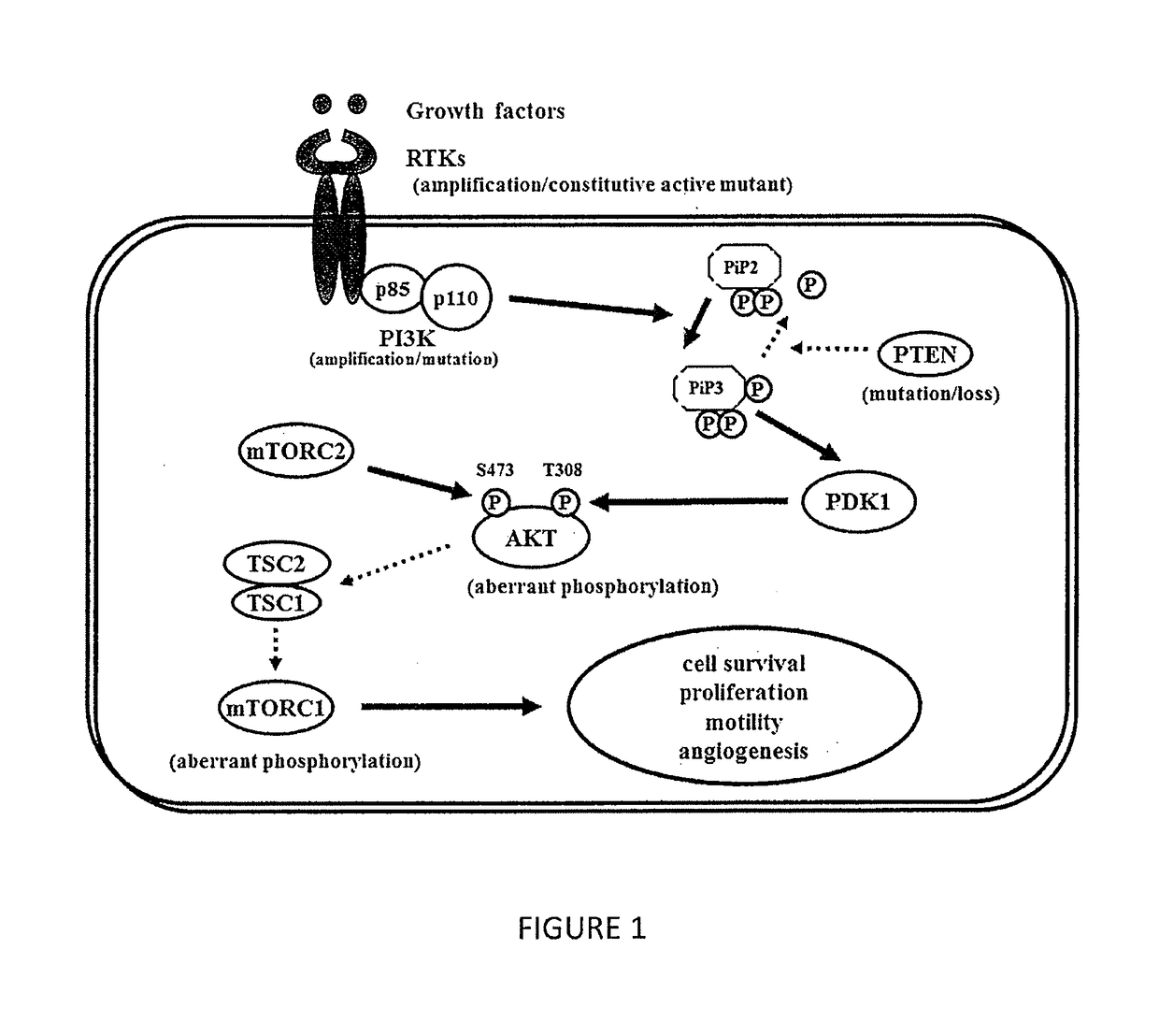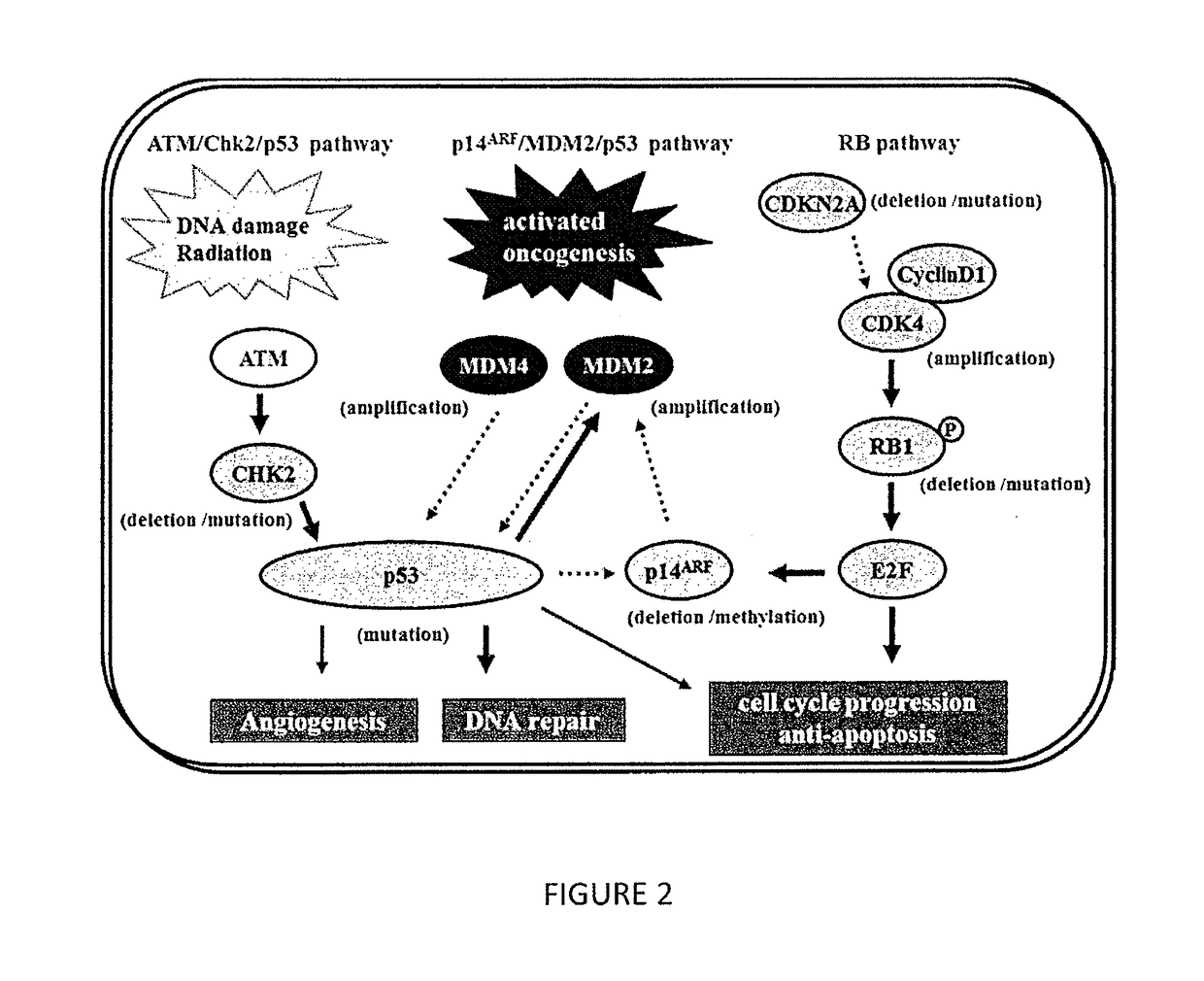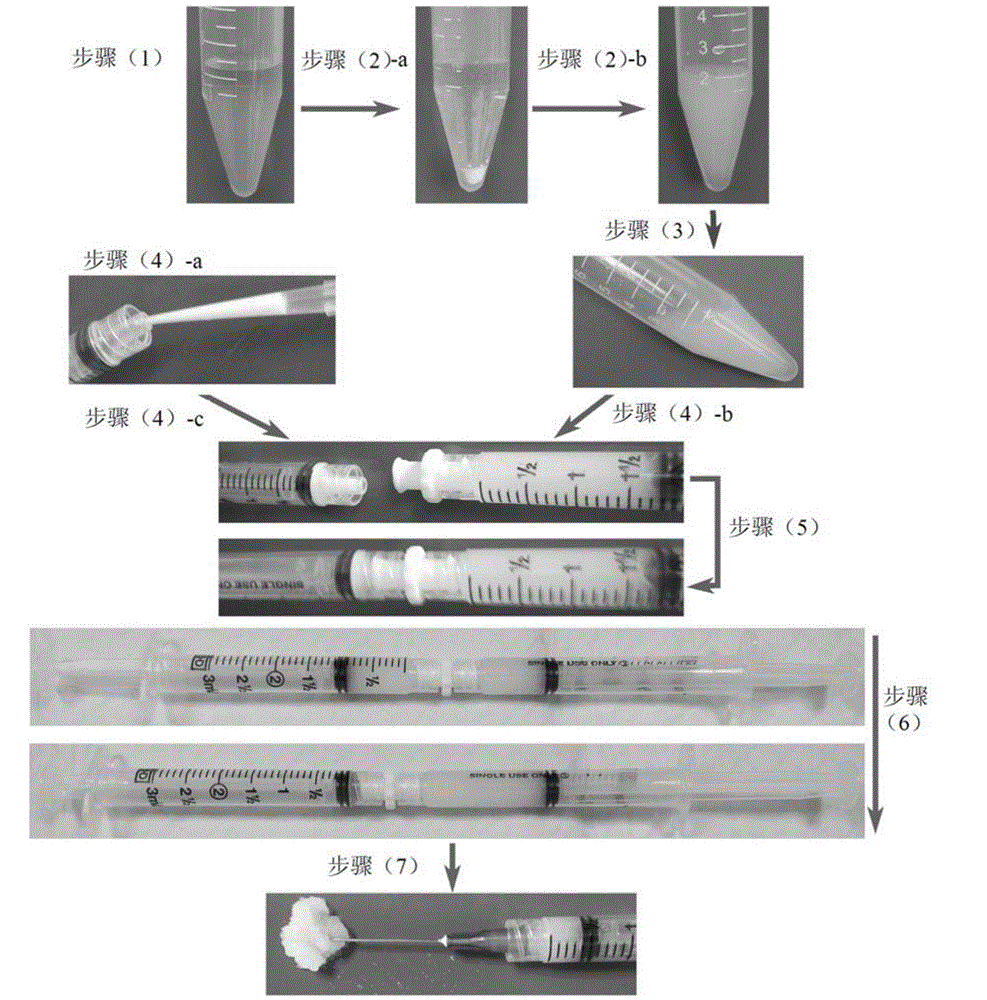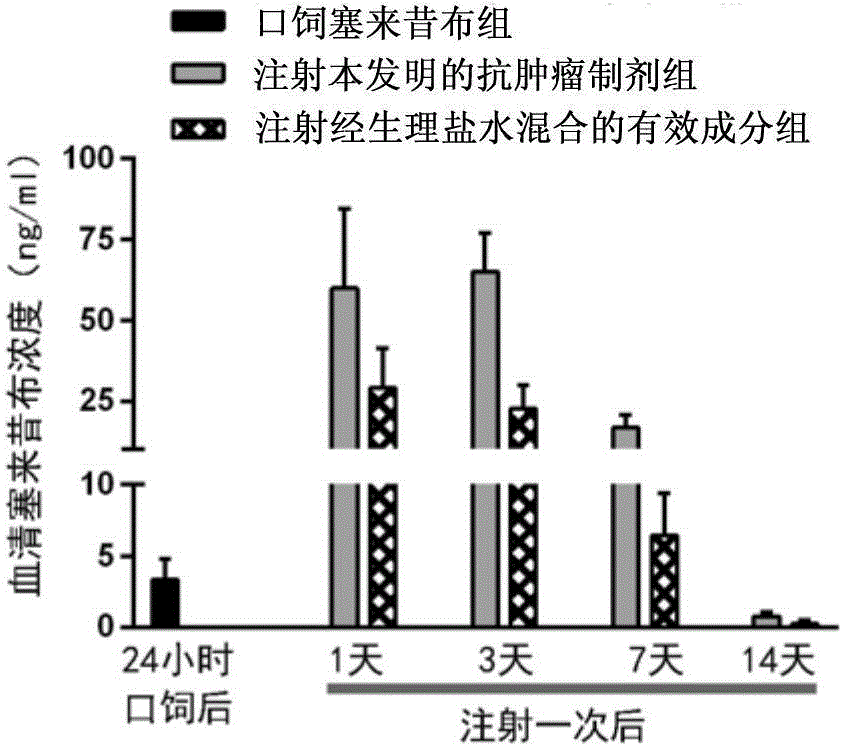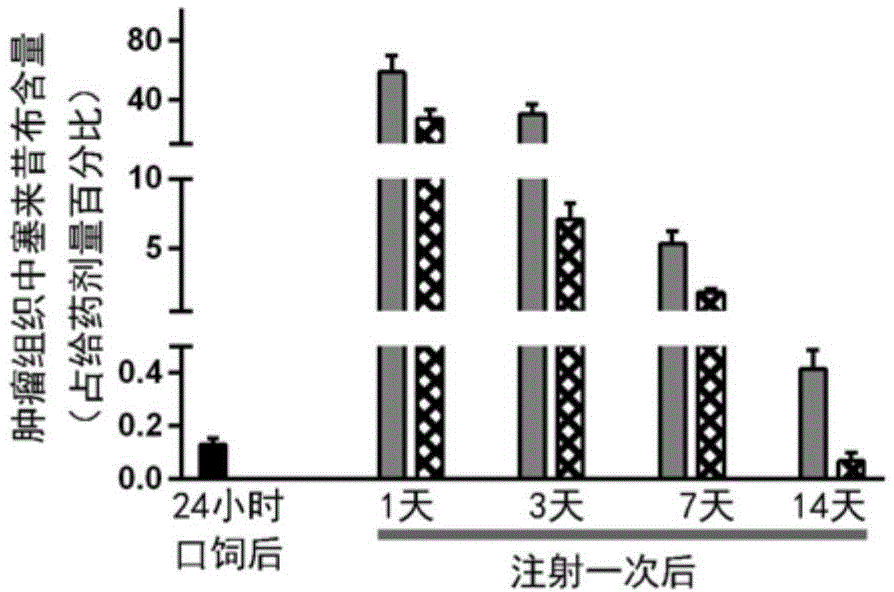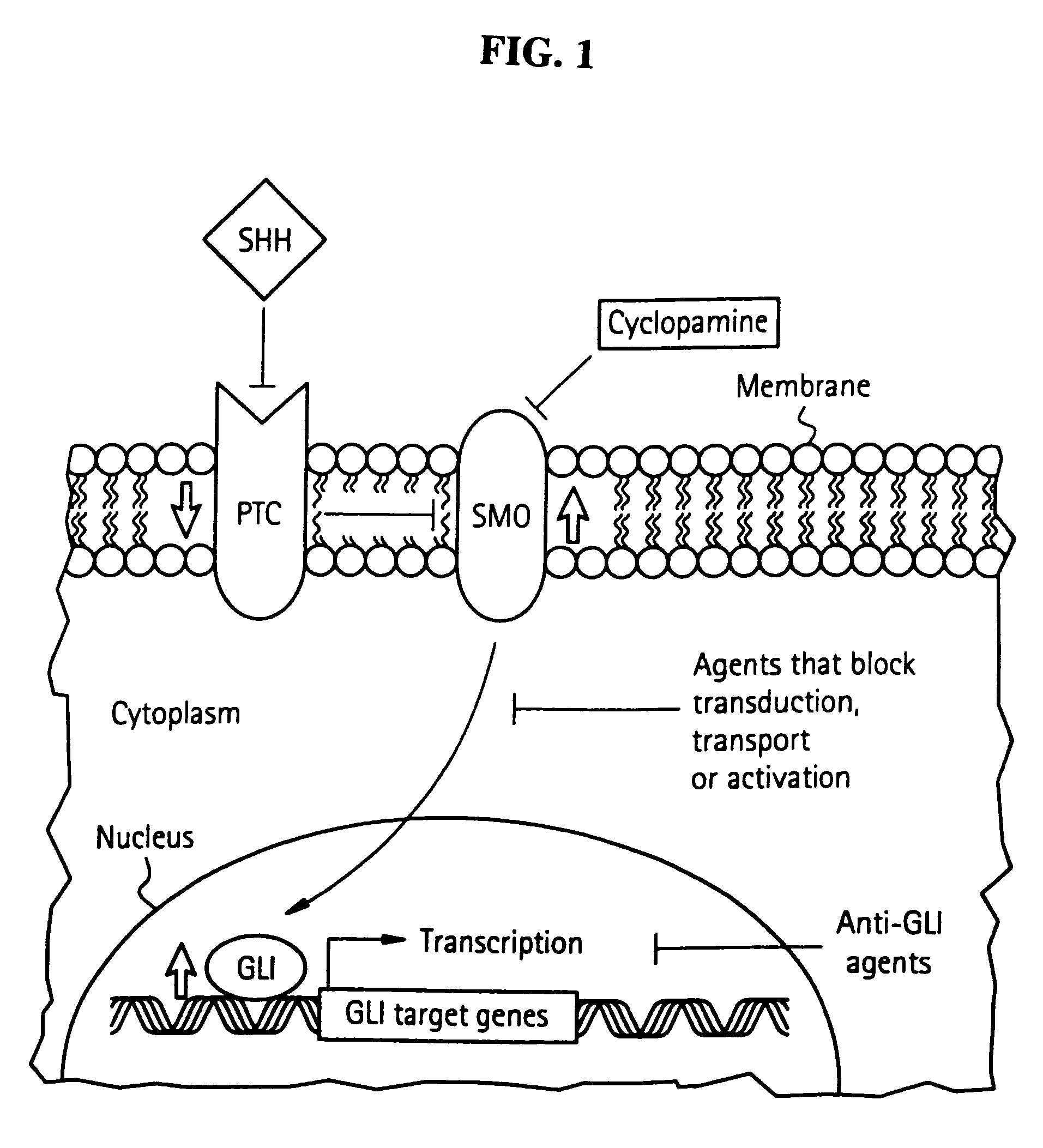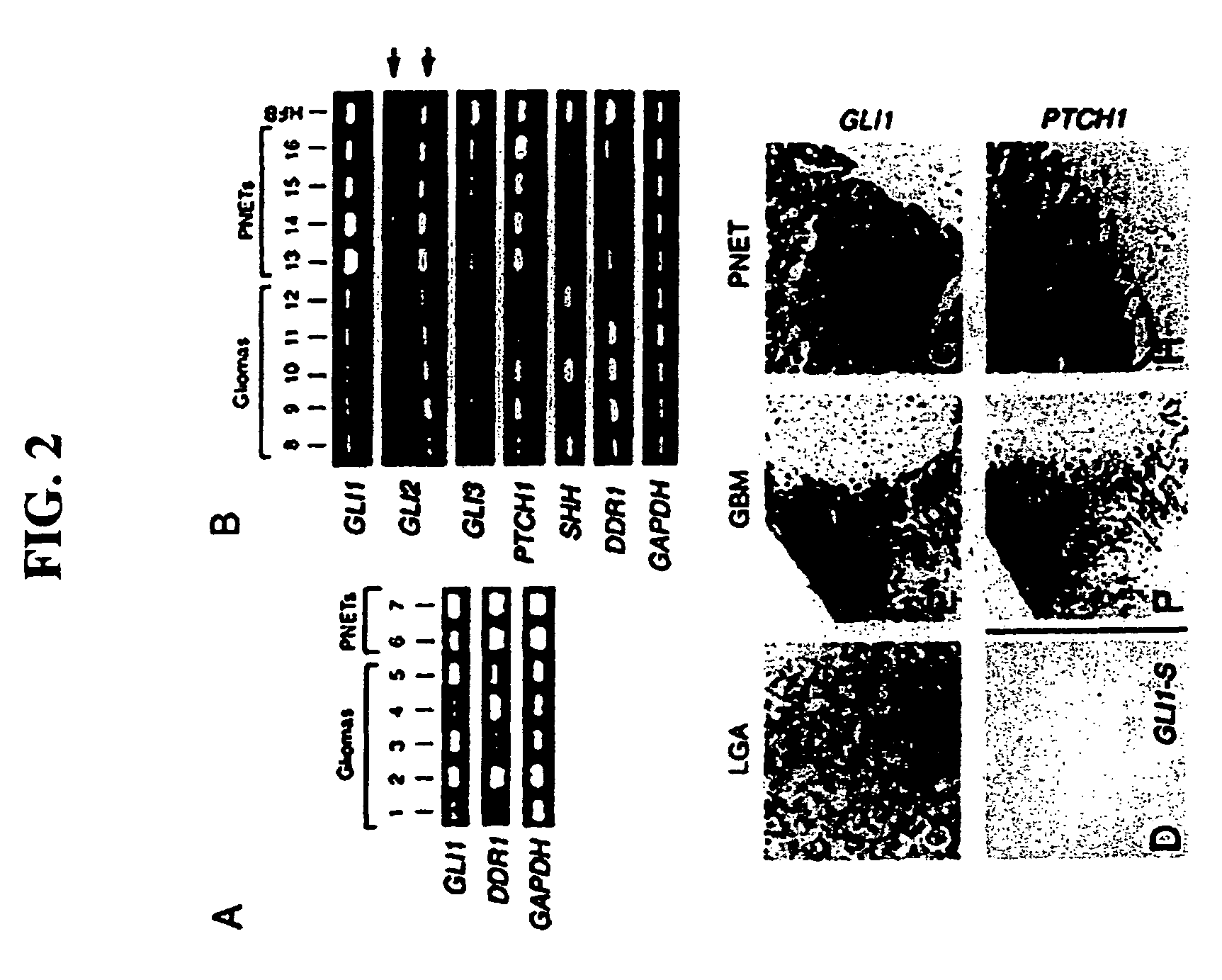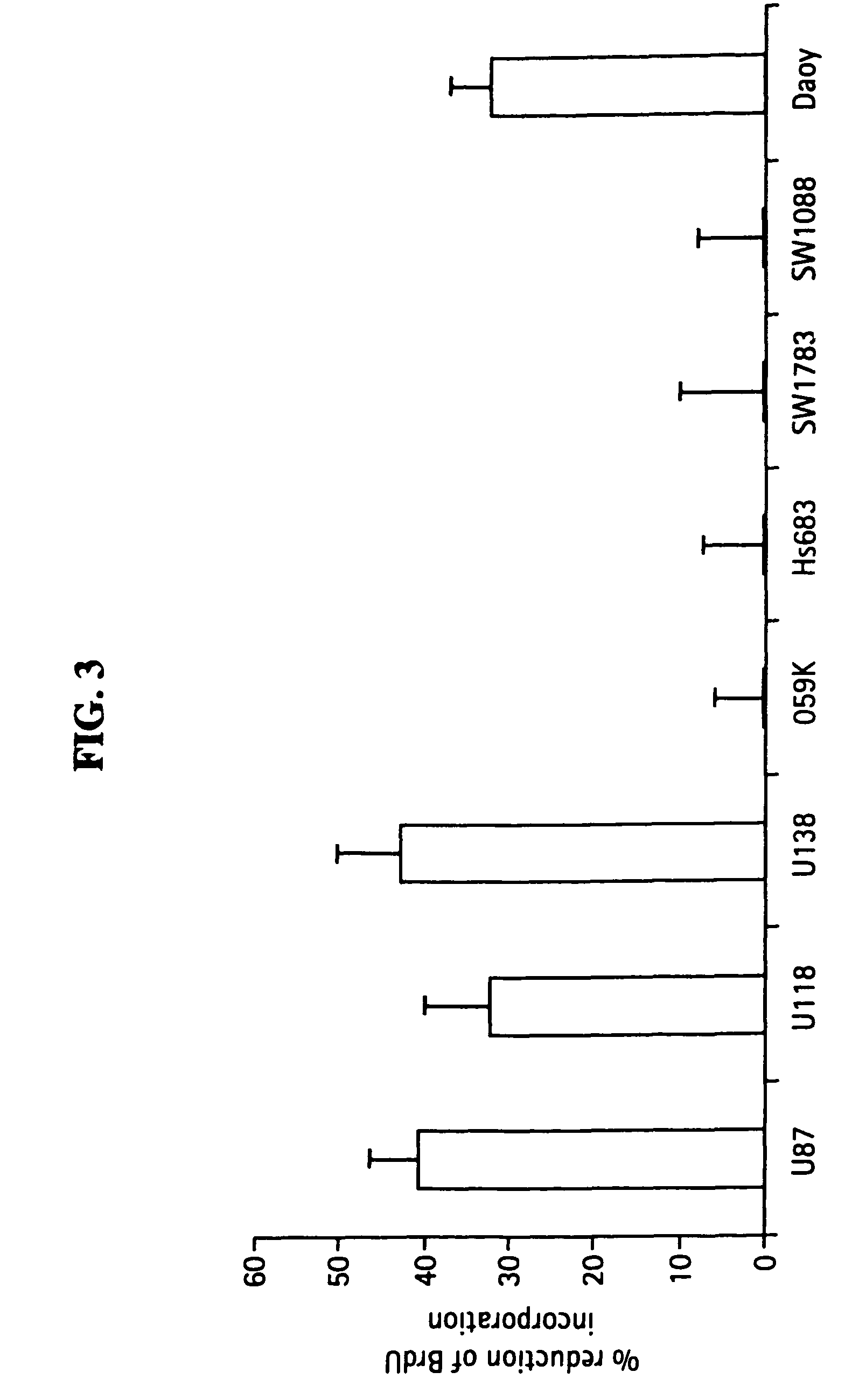Patents
Literature
124 results about "Blocking antibody" patented technology
Efficacy Topic
Property
Owner
Technical Advancement
Application Domain
Technology Topic
Technology Field Word
Patent Country/Region
Patent Type
Patent Status
Application Year
Inventor
A blocking antibody is an antibody that does not have a reaction when combined with an antigen, but prevents other antibodies from combining with that antigen. This function of blocking antibodies has had a variety of clinical and experimental uses.
Novel Class of Monospecific and Bispecific Humanized Antibodies that Target the Insulin-like Growth Factor Type I Receptor (IGF-1R)
InactiveUS20100226884A1Organic active ingredientsPeptide/protein ingredientsDiseaseAntiendomysial antibodies
The present invention provides compositions and methods of use of anti-IGF-1R antibodies or antibody fragments. Preferably the antibodies bind to IGF-1R but not IR; are not agonists for IGF-1R; do not block binding of IGF-1 or IGF-2 to isolated IGF-1R, but effectively neutralize activation of IGF-1R by IGF-1 in intact cells; and block binding of an R1 antibody to IGF-1R. The antibodies may be murine, chimeric, humanized or human R1 antibodies comprising the heavy chain CDR sequences DYYMY (SEQ ID NO:1), YITNYGGSTYYPDTVKG (SEQ ID NO:2) and QSNYDYDGWFAY (SEQ ID NO:3) and the light chain CDR sequences KASQEVGTAVA (SEQ ID NO:4), WASTRHT (SEQ ID NO:5) and QQYSNYPLT (SEQ ID NO:6). Preferably the antibodies bind to an epitope of IGF-1R comprising the first half of the cysteine-rich domain of IGF-1R (residues 151-222). The anti-IGF-1R antibodies may be used for diagnosis or therapy of various diseases such as cancer.
Owner:IMMUNOMEDICS INC
Prospective identification and characterization of breast cancer stem cells
InactiveUS20050089518A1Capacity loseOrganic active ingredientsPeptide/protein ingredientsAbnormal tissue growthSurface marker
Human breast tumors contain hetrogeneous cancer cells. using an animal xenograft model in which human breast cancer cells were grown in immunocompromised mice we found that only a small minority of breast cancer cells had capacity to form new tumors. The ability to form new tumors was not a slochastic property, rather certain populations of cancer cells were depleted for the ability to form new tumors, while other populations were enriched for the ability to form new tumors. Tumorigenic cells could be distinguished from non-tumorigenic cancer cells based on surface marker expression. We prospectively identified and isolated the tumorigenic cells as CD4430CD24− / lowLINEAGE A few as 100 cells from this population were able to form tumors the animal xenograft model, while tens of thousands of cells from non-tumorigenic populations failed to form tumors. The tumorigenic cells could be serially passaged, each time generating new tumors containing and expanded numbers of CD44+CD24 Lineage tumorigenic cells as well as phenotypically mixed populations of non-tumorigenic cancer cells. This is reminiscent of the ability of normal stem cells to self-renew and differentiate. The expression of potential therapeutic targets also differed between the tumorigenic and non-tumorigenic populations. Notch activation promoted the survival of the tumorigenic cells, and a blocking antibody against Notch 4 induced tumorigenic breast cancer cells to undergo apoptosis.
Owner:RGT UNIV OF MICHIGAN
Method for restoration of normal phenotype in cancer cells
InactiveUS6123941AReverse malignant behaviorRapid assessmentPeptide/protein ingredientsCulture processMalignant phenotypeHuman Mammary Epithelium
A method for reversing expression of malignant phenotype in cancer cells is described. The method comprises applying beta 1 integrin function-blocking antibody to the cells. The method can be used to assess the progress of cancer therapy. Human breast epithelial cells were shown to be particularly responsive.
Owner:RGT UNIV OF CALIFORNIA
Methods for improved targeting of antibody, antibody fragments, hormones and other targeting agents, and conjugates thereof
InactiveUSRE38008E1Improve localizationReduce productionIn-vivo radioactive preparationsPeptide/protein ingredientsAntibody fragmentsEphA Receptors
Methods for improved targeting of antibody, antibody fragments, peptides hormones, steroid hormones and conjugates thereof are disclosed. Enhanced delivery to target cells of antibodies or fragments thereof or other receptor-mediated delivery system, such as peptide, specific for a population of cells of a mammal comprises steps of administering to said mammal an adequate dosage of blocking antibodies or fragments thereof or other receptor-mediated delivery system, such as peptide, and administering to said mammal an effective dosage of said antibodies or fragments thereof or other receptor-mediated delivery system, such as peptide, specific for said population of cells. In the preferred embodiment, the specific antibodies are monoclonal antibodies directed toward tumor-associated antigen in man.
Owner:IDEC PHARM CORP
Glucan-based vaccines
InactiveUS20050208079A1Low protective efficacyImprove protectionAntibacterial agentsOrganic active ingredientsMicroorganismProteinase activity
Anti-glucan antibodies have been found to be protective against systemic fungal infection with C. albicans, but the protective efficacy can be inhibited by blocking antibodies. The invention provides an immunogenic composition comprising a glucan and a pharmaceutically acceptable carrier, characterised in that, when administered to a mammalian recipient, the composition elicits protective anti-glucan antibodies but does not elicit antibodies which inhibit the protective efficacy of the anti-glucan anti-bodies. The glucan may be presented on the surface of a protease-treated microbial cell or may be presented as a protein-glucan conjugate. The glucan may be substituted by a glucan mimotope, a peptidomimetic of a glucan mimotope, or nucleic acid encoding a mimotope. Anti-glucan-antibodies show broad spectrum microbicidal activity. B-glucans are preferred, particularly those containing one or more B-1,6 linkages
Owner:CASSONE ANTONIO +1
Method and compositions for inhibiting tumorigenesis
InactiveUS20050112707A1Prevent tumorigenic effectEffective treatment regimenPeptide/protein ingredientsNervous system cellsSimple Organic CompoundsProstate cancer
The present invention relates to compounds, small interfering RNAs and compositions and methods of inhibiting tumorigenesis using agents that inhibit the sonic hedgehog and GLI signaling pathway, including agents that inhibit GLI expression, synthesis and / or function. The present invention also relates to particular biomarkers that can be used in the diagnosis and prognosis of cancer. Methods of treating cancer, including glioblastomas, medulloblastomas, basal cell carcinomas, prostate cancer and small cell and non-small cell lung cancer are also provided using small organic compounds, siRNAs and blocking antibodies that inhibit or block the SHH / GLI pathway.
Owner:NEW YORK UNIV MEDICAL CENT
Methods and devices for stimulating an immune response using nanosecond pulsed electric fields
ActiveUS20140358066A1Reduce transferOrganic active ingredientsSurgical needlesNanosecondCalreticulin
Nanosecond pulsed electric field (nsPEF) treatments of a tumor are used to cause the tumor to express calreticulin and stimulate an immune response against the tumor and other tumors in a subject. An immune response biomarker can be measured, and further nsPEF treatments can be performed if needed to stimulate or further stimulate the immune response. Cancers that have metastasized may be treated. The treatment can be combined with CD47-blocking antibodies, doxorubicin, CTLA-4-blocking antibodies, and / or PD-1-blocking antibodies. Electrical characteristics of nsPEF treatments can be based on the size, type, and / or strength of tumors and / or a quantity of tumors in the subject.
Owner:PULSE BIOSCI INC
Methods and devices for stimulating an immune response using nanosecond pulsed electric fields
ActiveUS9101764B2Reduce transferOrganic active ingredientsSurgical needlesAbnormal tissue growthNanosecond
Nanosecond pulsed electric field (nsPEF) treatments of a tumor are used to cause the tumor to express calreticulin and stimulate an immune response against the tumor and other tumors in a subject. An immune response biomarker can be measured, and further nsPEF treatments can be performed if needed to stimulate or further stimulate the immune response. Cancers that have metastasized may be treated. The treatment can be combined with CD47-blocking antibodies, doxorubicin, CTLA-4-blocking antibodies, and / or PD-1-blocking antibodies. Electrical characteristics of nsPEF treatments can be based on the size, type, and / or strength of tumors and / or a quantity of tumors in the subject.
Owner:PULSE BIOSCI INC
Method and compositions for inhibiting tumorigenesis
InactiveUS20050130922A1Prevent tumorigenic effectPromote generationGenetic material ingredientsNervous system cellsSimple Organic CompoundsProstate cancer
The present invention relates to compounds, small interfering RNAs and compositions and methods of inhibiting tumorigenesis and methods of inhibiting tumor cell growth and proliferation using agents that inhibit the hedgehog and Gli signaling pathway, including agents that inhibit GLI synthesis and / or function. The present invention also relates to particular biomarkers that can be used in the diagnosis and prognosis of prostate cancer. Methods of treating cancer, including prostate cancer are also provided using small organic compounds, siRNAs and blocking antibodies that inhibit or block the SHH / GLI pathway.
Owner:ALTABA ARIEL +2
HUMANIZED ANTIBODIES TO iNKT
InactiveUS20130136735A1Suppress immune responseSufficiently suppressAntibacterial agentsAntipyreticBlocking antibodyHumanized antibody
Methods of treatment to suppress an immune response are provided. The method comprises administering to a subject in need of treatment a naked blocking antibody that binds selectively iNKT cells in an amount effective to suppress the subject's iNKT cell function. Compositions comprising, an isolated, humanized antibody that binds selectively iNKT cells are also provided.
Owner:NKT THERAPEUTICS
Anti-p-selectin antibodies and methods of their use and identification
ActiveUS20110293617A1Reduce vasoocclusionImprove the level ofAnimal cellsFungiP-selectinBinding domain
Antibodies are disclosed which bind specifically to P-selectin and which block the binding of PSGL-1 to P-selectin. These anti-P-selectin antibodies may also cause dissociation of preformed P-selectin / PSGL-1 complexes. The disclosure identifies a heretofore unrecognized, near N-terminal, antibody binding domain (a conformational epitope) of P-selectin to which the function-blocking antibodies (which may be chimeric, human or humanized antibodies for example) bind. Antibodies are disclosed which bind to the conformational epitope of P-selectin and which have a dual function in blocking binding of PSGL-1 to P-selectin, and in causing dissociation of preformed P-selectin / PSGL-1 complexes. Such single and dual function anti-P-selectin antibodies and binding fragments thereof may be used in the treatment of a variety of inflammatory and thrombotic disorders and conditions. Screening methods for identifying such antibodies are also disclosed.
Owner:SELEXYS PHARMA CORP +1
Suppression of cross-reactivity and non-specific binding by antibodies using protein A
The structure, formation and use of blocked antibodies, especially those blocked with Protein A, or active fragments of Protein A, are disclosed as well as processes of producing such antibodies. The uses of such blocked antibodies to achieve significant reduction in both specific cross-reaction and non-specific interaction thereby increasing specificity and reactivity with targeted antigenic sites is also described.
Owner:QIAGEN GMBH
Method and compositions for inhibiting tumorigenesis
InactiveUS20120083419A1Prevent proliferationMicrobiological testing/measurementLibrary screeningProstate cancerBlocking antibody
The present invention relates to compounds, small interfering RNAs and compositions and methods of inhibiting tumorigenesis and methods of inhibiting tumor cell growth and proliferation using agents that inhibit the hedgehog and Gli signaling pathway, including agents that inhibit GLI synthesis and / or function. The present invention also relates to particular biomarkers that can be used in the diagnosis and prognosis of prostate cancer. Methods of treating cancer, including prostate cancer are also provided using small organic compounds, siRNAs and blocking antibodies that inhibit or block the SHH / GLI pathway.
Owner:ALTABA ARIEL RUIZ I +2
Methods of treating inflammatory or thrombotic conditions with anti-P-selectin antibodies
Antibodies are disclosed which bind specifically to P-selectin and which block the binding of PSGL-1 to P-selectin. These anti-P-selectin antibodies may also cause dissociation of preformed P-selectin / PSGL-1 complexes. The disclosure identifies a heretofore unrecognized, near N-terminal, antibody binding domain (a conformational epitope) of P-selectin to which the function-blocking antibodies (which may be chimeric, human or humanized antibodies for example) bind. Antibodies are disclosed which bind to the conformational epitope of P-selectin and which have a dual function in blocking binding of PSGL-1 to P-selectin, and in causing dissociation of preformed P-selectin / PSGL-1 complexes. Such single and dual function anti-P-selectin antibodies and binding fragments thereof may be used in the treatment of a variety of inflammatory and thrombotic disorders and conditions. Screening methods for identifying such antibodies are also disclosed.
Owner:SELEXYS PHARMA CORP +1
Suppression of cross-reactivity and non-specific binding by antibodies using protein A
The structure, formation and use of blocked antibodies, especially those blocked with Protein A, or active fragments of Protein A, are disclosed as well as processes of producing such antibodies. The uses of such blocked antibodies to achieve significant reduction in both specific cross-reaction and non-specific interaction thereby increasing specificity and reactivity with targeted antigenic sites is also described.
Owner:QIAGEN GMBH
Anti-p-selectin antibodies and methods of their use and identification
InactiveUS20110212096A1Reduce vasoocciusionImprove the level ofAntipyreticMicroorganismsDiseaseP-selectin
Antibodies are disclosed which bind specifically to P-selectin and which block the binding of PSGL-1 to P-selectin. These anti-P-selectin antibodies may also cause dissociation of preformed P-selectin / PSGL-1 complexes. The disclosure identifies a heretofore unrecognized, near N-terminal, antibody binding domain (a conformational epitope) of P-selectin to which the function-blocking antibodies (which may be chimeric, human or humanized antibodies for example) bind. Antibodies are disclosed which bind to the conformational epitope of P-selectin and which have a dual function in blocking binding of PSGL-1 to P-selectin, and in causing dissociation of preformed P-selectin / PSGL-1 complexes. Such single and dual function anti-P-selectin antibodies and binding fragments thereof may be used in the treatment of a variety of inflammatory and thrombotic disorders and conditions. Screening methods for identifying such antibodies are also disclosed.
Owner:SELEXYS PHARMA CORP +1
Combined medication combination for tumor immnuotherapy
ActiveCN106955354AInhibitory activityEnhance antigen-specific immune responseAntibody ingredientsImmunoglobulinsCD8Acyl coenzyme A
The invention provides a combined medication combination for tumor immunotherapy. The combined medication combination contains an effective dose of an acyl coenzyme A: cholesterol acyltransferase ACAT1 inhibitor and an effective dose of an immune detection point blocking antibody. The invention further provides a combined medication method for the tumor immunotherapy. By inhibiting the acyl coenzyme A: cholesterol acyltransferase ACAT1, the killing activity of CD8 T cells to tumors can be enhanced, and the acyl coenzyme A: cholesterol acyltransferase ACAT1 and the immune detection point blocking antibody can generate a synergic effect in combined medication, so that the inhibition to the tumors can be further enhanced.
Owner:CENT FOR EXCELLENCE IN MOLECULAR CELL SCI CHINESE ACAD OF SCI
Predictive Biomarkers for CTLA-4 Blockade Therapy and for PD-1 Blockade Therapy
Biomarkers are described for predicting the efficacy, risk of relapse, risk of an immune related adverse event (irAE), or combination thereof for a CTLA-4 blockade treatment, such as ipilimumab, in a subject with melanoma. Biomarkers are also described for predicting the efficacy and clinical benefit for a PD-1 blockade treatment, such as a PD-1 blocking antibody, in a subject with melanoma.
Owner:H LEE MOFFITT CANCER CENT & RES INST INC
Indirect blocking ELISA (Enzyme-Linked Immuno Sorbent Assay) detection kit of antibody of porcine torque teno virus type II
ActiveCN102590503AQuick Detection ToolAccurate Detection ToolMaterial analysisSorbentTorque teno virus
The invention discloses an indirect blocking ELISA (Enzyme-Linked Immuno Sorbent Assay) detection kit of an antibody of porcine torque teno virus type II, which comprises an antibody detecting board, an enzyme conjugate working solution, a sample diluent, a coloration solution A, a coloration solution B, a termination solution, a blocking antibody and a washing buffer solution, wherein the blocking antibody is a polyclonal antibody which is obtained in rabbits after purified TTV2 (Torque Teno Virus type II) -ORF1 (Open Reading Frame1) gene antigen epitope area protein immunizes the rabbits. The kit has the beneficial effects of strong specificity and simpleness in operation, is suitable for large-scale clinical popularization and application, and has a good market prospect.
Owner:SICHUAN AGRI UNIV
Targeted Claudin-4 developer without influence on permeability between epithelial cells
InactiveCN101574532APermeability does not affectImprove permeabilityRadioactive preparation carriersAbnormal tissue growthApoptosis
The invention discloses a targeted Claudin-4 developer without influences on permeability between epithelial cells for positron emission computed tomography, which is a F marked polypeptide consisting of 16 amino acid residues. With shortened peptide chain, the polypeptide developer of the invention have importance biological properties of avoiding influence on the permeability between the epithelial cells, increasing the basement membrane permeability of the epithelial cells, reducing antigenicity and the like. The properties enable the developer to detect tumor lesion under the condition of constant tumor tissue microenvironments (such as blood flow, oxygenation, bioactive molecule distribution, pH value and cell apoptosis body removal) and to reduce interference from repeatedly used and inducible blocking antibodies at the same time.
Owner:SHANDONG TUMOR HOSPITAL
Non Peptide Agonists and Antagonists of Adrenomedullin and Gastric Releasing Peptide
This invention relates, e.g., to methods for inhibiting or stimulating an activity of an adrenomedullin (AM) or gastrin releasing peptide (GRP) peptide hormone, comprising contacting the peptide with a small molecule, non-peptide, modulatory agent of the invention. Complexes of these modulatory agents with other components, such as the peptides or blocking antibodies specific for the peptides, are also described, as are pharmaceutical compositions comprising the modulatory agents, and methods for using the modulatory agents to diagnose or treat patients.
Owner:US DEPT OF HEALTH & HUMAN SERVICES +1
Glucan-based vaccines
Anti-glucan antibodies have been found to be protective against systemic fungal infection with C. albicans, but the protective efficacy can be inhibited by blocking antibodies. The invention provides an immunogenic composition comprising a glucan and a pharmaceutically acceptable carrier, characterised in that, when administered to a mammalian recipient, the composition elicits protective anti-glucan antibodies but does not elicit antibodies which inhibit the protective efficacy of the anti-glucan antibodies. The glucan may be presented on the surface of a protease-treated microbial cell or may be presented as a protein-glucan conjugate. The glucan may be substituted by a glucan mimotope, a peptidomimetic of a glucan mimotope, or nucleic acid encoding a mimotope. Anti-glucan-antibodies show broad spectrum microbicidal activity. β-glucans are preferred, particularly those containing one or more β-1,6 linkages
Owner:CASSONE ANTONIO +1
Pig cytomegalovirus antibody indirect blocking enzyme-linked immuno sorbent assay (ELISA) detection kit and detection method thereof
The invention discloses a pig cytomegalovirus antibody indirect blocking enzyme-linked immuno sorbent assay (ELISA) detection kit, wherein an antibody detection board, enzyme combination working solution, a blocking antibody, sample diluent, cleaning solution, developing solution A, developing solution B and stop solution are arranged in the kit. A detection board of the kit is a detachable 96-hole elisa plate wrapped by pig cytomegalovirus g B dominant antigen epitope area protein recombinant antigens, enzyme combination working solution is goat anti-rabbit antibody marked by horse radish peroxidase, and the blocking antibody is a rabbit anti-pig cytomegalovirus g B dominant antigen epitope area protein polyclonal antibody. The pig cytomegalovirus antibody indirect blocking ELISA detection kit has the advantages of being strong in specificity, high in sensitivity, easy to operate and suitable for clinical large-scale popularization and application and has wide market prospect.
Owner:SICHUAN AGRI UNIV
Application of TRPC5 as drug target in reversing multi-drug resistance
ActiveCN102824637ASignificant reversalGenetic material ingredientsBoron compound active ingredientsIn vivoDrug target
The invention provides a novel purpose of TRPC5, which is an application of TRPC5 as drug target in reversing multi-drug resistance. The drug is an inhibitor for TRPC5, which comprises a pharmacology antagonist 2-APB of TRPC5, a blocking antibody T5E3 of TRPC5, a dominant inhibition plasmid pCDNA6-TRPC5-DN and Lenti-TRPC5-DN of TRPC5 and SiRNAsiC5 of TRPC5, and the multidrug resistance is generated by P-gp mediation. The invention has the key points that the TRPC5 is closely related to a P-gp protein expression of multidrug resistance generated by mediated tumor, and a TRPC5 inhibitor has obvious reversing effect on multidrug resistance of in vitro and in vivo tumor cells, accordingly, the application of TRPC5 as drug target in reversing multi-drug resistance provides the novel target for antineoplastic multidrug resistance medicine, and provides a novel clue for reversing the tumor multidrug resistance.
Owner:JIANGNAN UNIV
Blocking ELISA antibody detection kit for porcinecircovirus type 2 and preparation method of blocking ELISA antibody detection kit
InactiveCN106841609ANo immune cross-reactivityReduce non-specific reactionsBiological material analysisProkaryotic expressionMonoclonal antibody
The invention relates to a blocking ELISA antibody detection kit for porcinecircovirus type 2 and a preparation method of the blocking ELISA antibody detection kit. The blocking ELISA antibody detection kit for the porcinecircovirus type 2 comprises a coated plate, a PVC2 enzyme labelled antibody, sample diluent, a concentrated washing solution (10*), a positive serum contrast, a negative serum contrast, TMB substrate diluent and a stop solution, wherein the coated plate is prepared from a purified porcine circovirus type 2 nucleocapsid protein CapC protein serving as a non-antigen, and the PVC2 enzyme labelled antibody is prepared from monoclonal antibody hybridoma which is labeled with horse radish peroxidase and secretes PCV2. According to the preparation method, the CapC protein is expressed by virtue of a prokaryotic expression system, and the blocking ELISA is established by taking a monoclonal antibody of PCV2 as the enzyme labelled antibody; and the blocking ELISA antibody detection kit has the characteristics of high specificity and sensitivity and can be applied to the detection of PCV2 antibodies of a porcine serum sample.
Owner:JIANGSU NANNONG HI TECH +1
Anti-p-selectin antibodies and methods of their use and identification
Antibodies are disclosed which bind specifically to P-selectin and which block the binding of PSGL-1 to P-selectin. These anti-P-selectin antibodies may also cause dissociation of preformed P-selectin / PSGL-1 complexes. The disclosure identifies a heretofore unrecognized, near N-terminal, antibody binding domain (a conformational epitope) of P-selectin to which the function-blocking antibodies (which may be chimeric, human or humanized antibodies for example) bind. Antibodies are disclosed which bind to the conformational epitope of P-selectin and which have a dual function in blocking binding of PSGL-1 to P-selectin, and in causing dissociation of preformed P-selectin / PSGL-1 complexes. Such single and dual function anti-P-selectin antibodies and binding fragments thereof may be used in the treatment of a variety of inflammatory and thrombotic disorders and conditions. Screening methods for identifying such antibodies are also disclosed.
Owner:SELEXYS PHARMA +1
CD 3 and PRLR bispecific antibody and construction and application thereof
ActiveCN109627340AIncreased maximum cell killing rateAvoid damageHybrid immunoglobulinsAntibody ingredientsEukaryotic plasmidsSpecific antibody
The invention discloses a CD 3 and PRLR duplex-specific antibody and construction and application thereof. A construction method of the CD 3 and PRLR duplex-specific antibody comprises the steps thatheavy and light chain plasmids pM-CD3Hc, pM-CD3Lc and pM-IntCRc of a target CD 3 antibody fusion protein IntC are constructed, subjected to transient cotransfection to be transferred into a cell and subjected to affinity purification, and thus a fragment A antibody is obtained; heavy and light chain plasmids pM-PRLRIntN and pM-PRLRLc of a target PRLR antibody fusion protein IntN are constructed, subjected to transient cotransfection to be transferred into the cell and subjected to affinity purification, and thus a fragment B antibody is obtained; the fragment A antibody and the fragment B antibody are subjected to external trans-splicing, and thus the CD 3 and PRLR duplex-specific antibody is obtained. The CD 3 and PRLR duplex-specific antibody provides a new target therapy strategy for current breast cancer HER 2 and ER target treatment; compared with a PRLR blocking antibody, the PRLR-DbsAb has a more obvious inhibiting effect on tumours.
Owner:SHANGHAI JIAO TONG UNIV +1
Methods and compositions for reducing growth, migration and invasiveness of brain cancer stem cells and improving survival of patients with brain tumors
ActiveUS20170368158A1Reduce tumor growthPromote migrationNervous disorderPeptide/protein ingredientsTumor therapyBrain stem tumor
The described invention relates to a pharmaceutical composition comprising a therapeutically effect amount of a therapeutic agent, wherein the therapeutic agent is effective (1) to reduce tumor growth, migration, invasion or a combination and (2) improve subject survival relative to a control. The described invention also relates to a method of treating a subject with a tumor, the method comprising: (1) providing a pharmaceutical composition; and (2) administering the pharmaceutical composition, wherein the composition comprises a therapeutically effective amount of a therapeutic agent which is effective to reduce tumor growth, migration, invasion or a combination. The method may further comprise preparing therapeutic agent and preparing the pharmaceutical composition. The therapeutic agents include but are not limited to Wnt5a derivative peptides or Wnt5a antagonists or Wnt5a blocking antibody. The tumor comprises a population of cancer stem cells.
Owner:HYPERSTEM
Antitumor preparation and preparation method for same
ActiveCN105983097AImprove in vivo stabilityGood sustained release effectOrganic active ingredientsAerosol deliveryActive componentBlocking antibody
The invention provides an antitumor preparation and a preparation method for the same. The antitumor preparation is an injection and is in the form of a hydrogel which is formed from an alginate water solution in which active components including a PD-1 blocking antibody and celecoxib are dispersed. The antitumor preparation has excellent in-vivo stability and prolonged sustained-release effect, has significantly improved inhibition effects on growth and migration of tumor cells, and has enlarged anti-tumor spectrum.
Owner:XIEHE HOSPITAL ATTACHED TO TONGJI MEDICAL COLLEGE HUAZHONG SCI & TECH UNIV
Method and compositions for inhibiting tumorigenesis
InactiveUS7741298B2Prevent tumorigenic effectEffectiveBiocidePeptide/protein ingredientsSimple Organic CompoundsProstate cancer
The present invention relates to compounds, small interfering RNAs and compositions and methods of inhibiting tumorigenesis using agents that inhibit the sonic hedgehog and GLI signaling pathway, including agents that inhibit GLI expression, synthesis and / or function. The present invention also relates to particular biomarkers that can be used in the diagnosis and prognosis of cancer. Methods of treating cancer, including glioblastomas, medulloblastomas, basal cell carcinomas, prostate cancer and small cell and non-small cell lung cancer are also provided using small organic compounds, siRNAs and blocking antibodies that inhibit or block the SHH / GLI pathway.
Owner:NEW YORK UNIV MEDICAL CENT
Features
- R&D
- Intellectual Property
- Life Sciences
- Materials
- Tech Scout
Why Patsnap Eureka
- Unparalleled Data Quality
- Higher Quality Content
- 60% Fewer Hallucinations
Social media
Patsnap Eureka Blog
Learn More Browse by: Latest US Patents, China's latest patents, Technical Efficacy Thesaurus, Application Domain, Technology Topic, Popular Technical Reports.
© 2025 PatSnap. All rights reserved.Legal|Privacy policy|Modern Slavery Act Transparency Statement|Sitemap|About US| Contact US: help@patsnap.com
